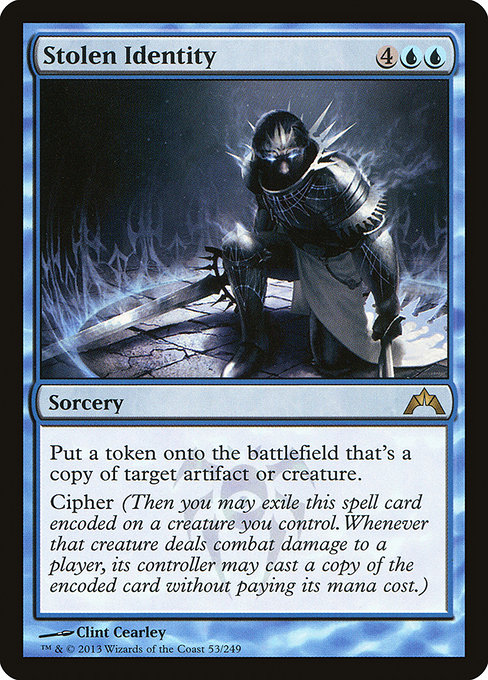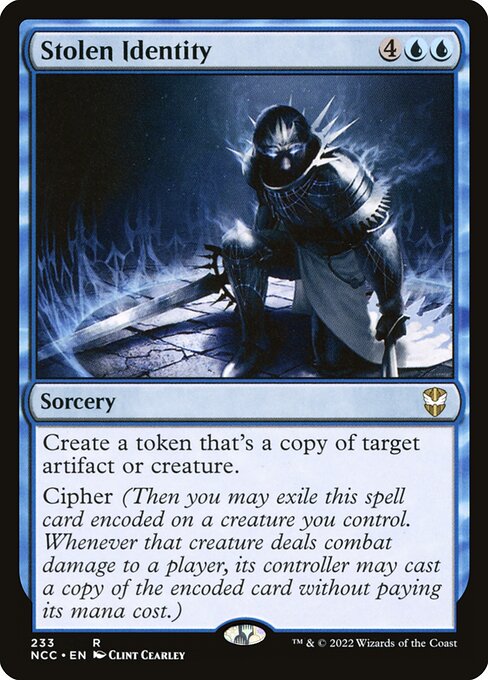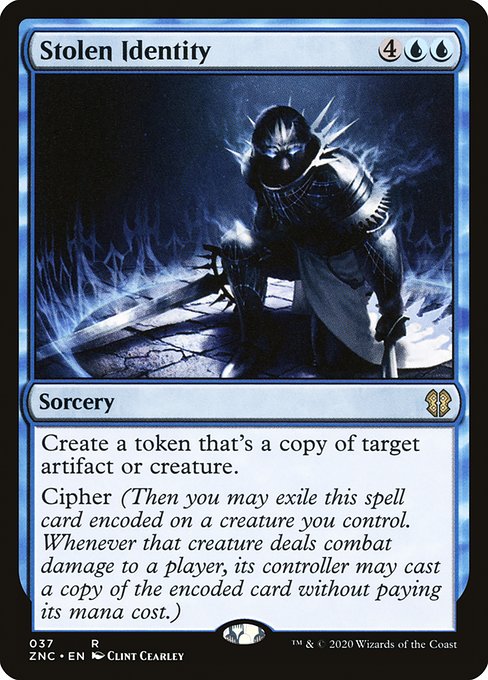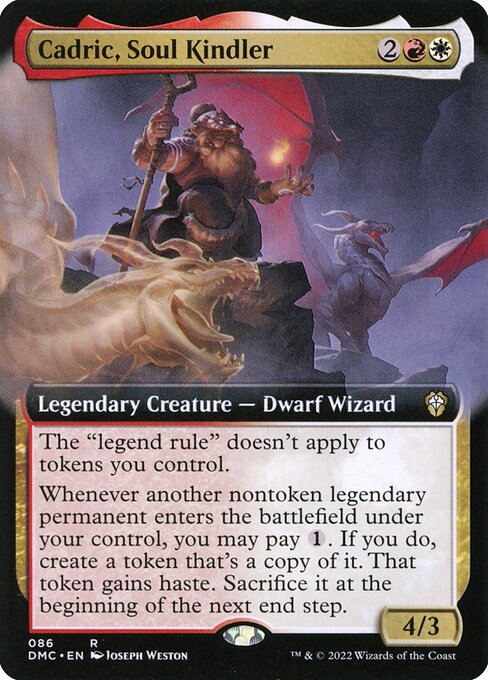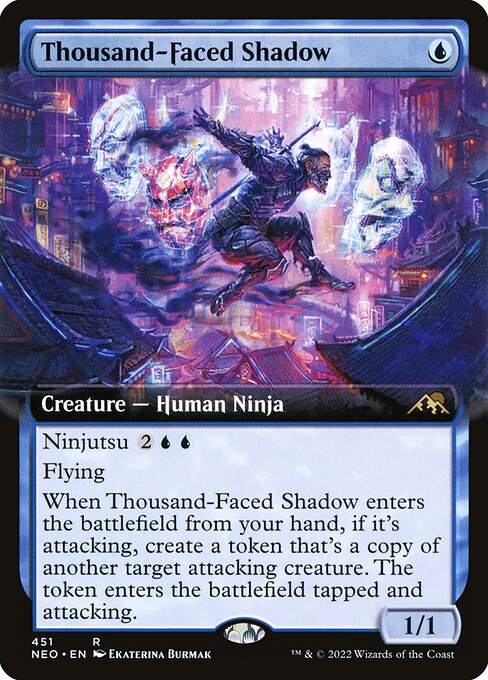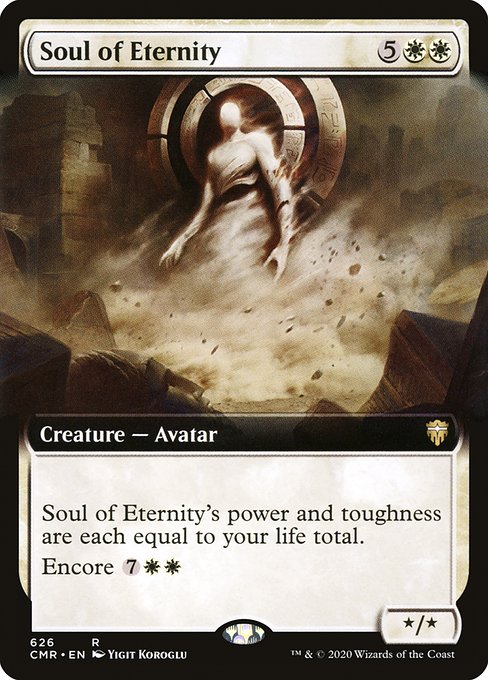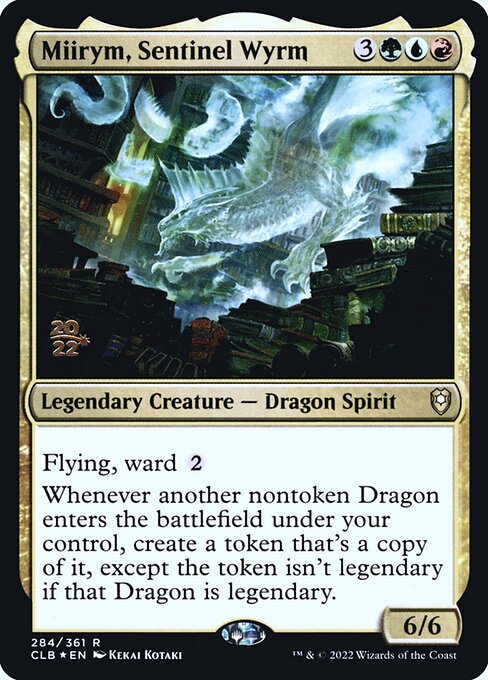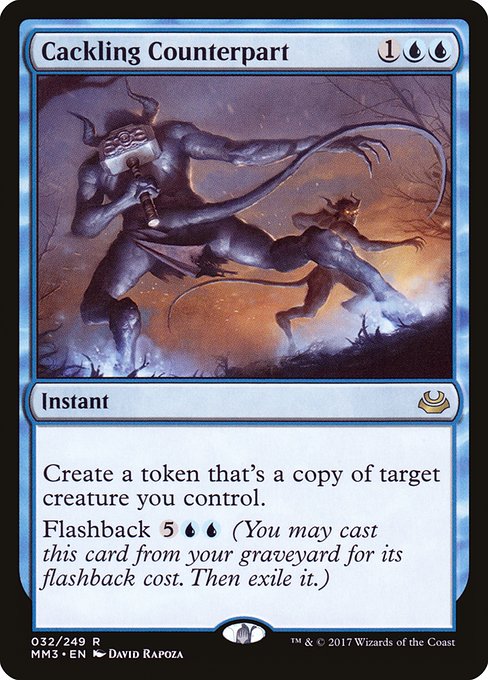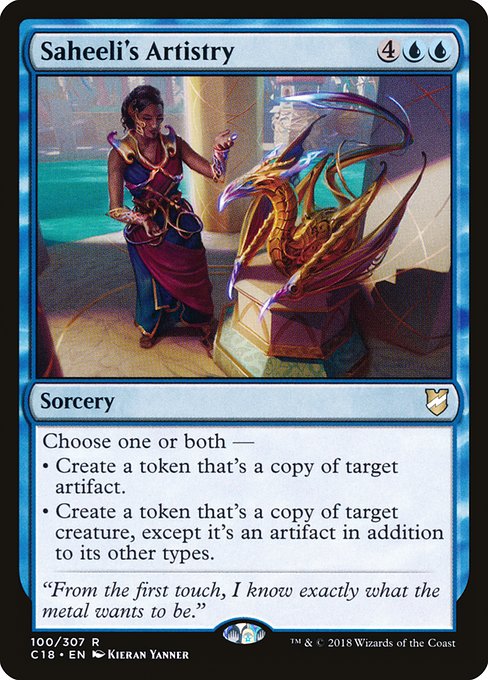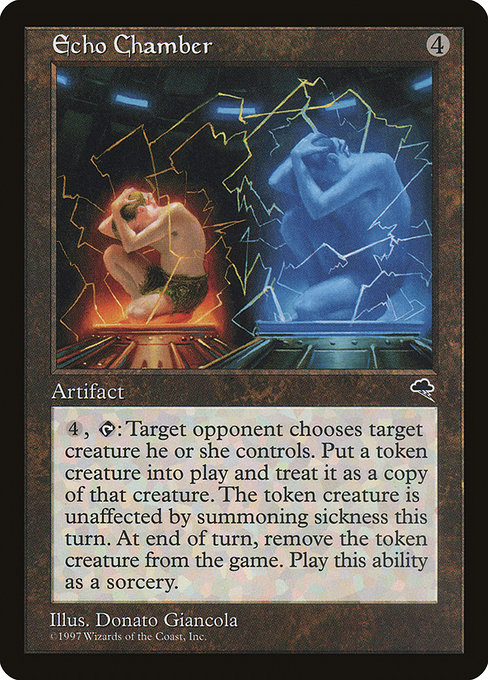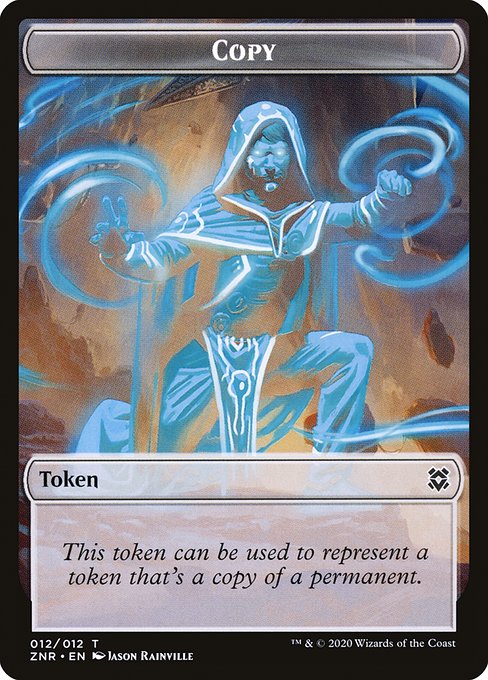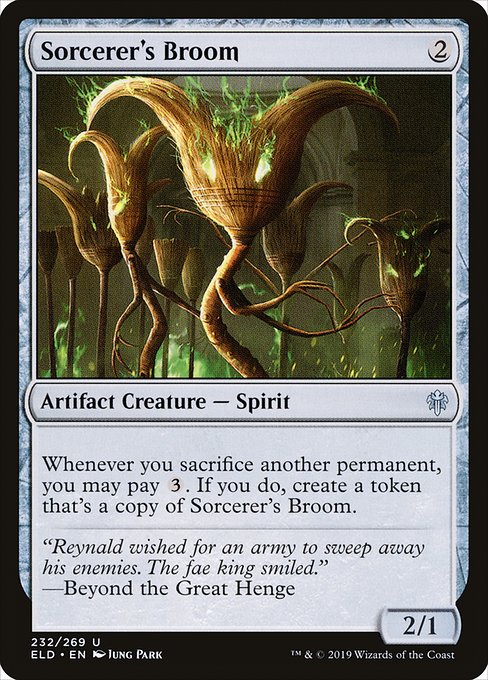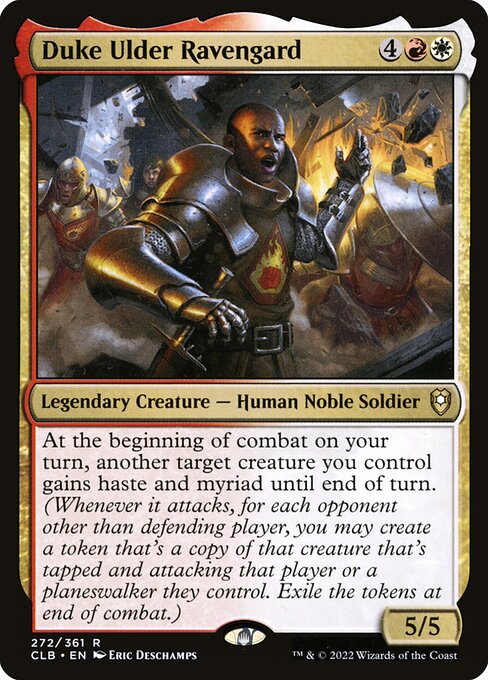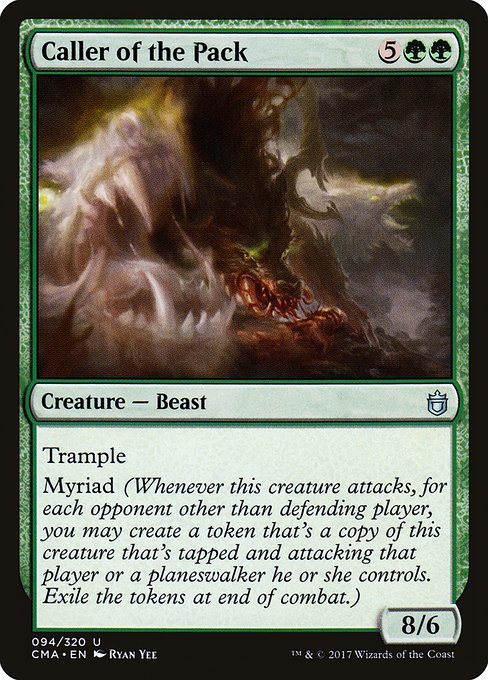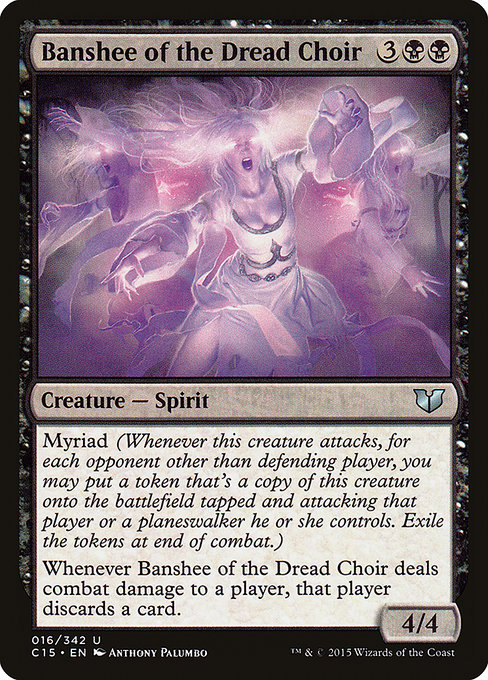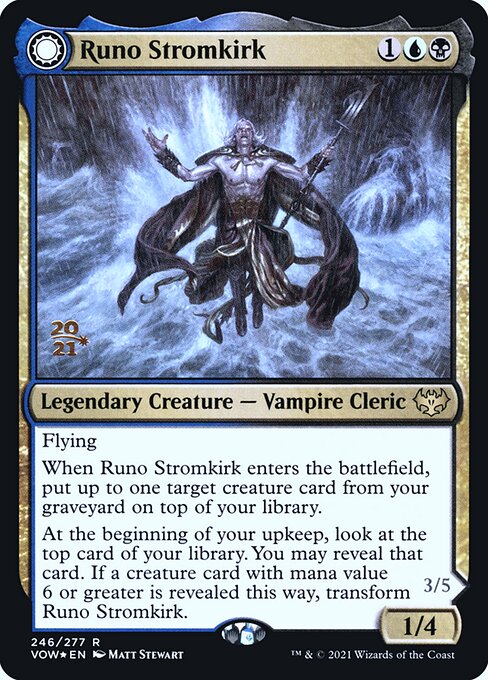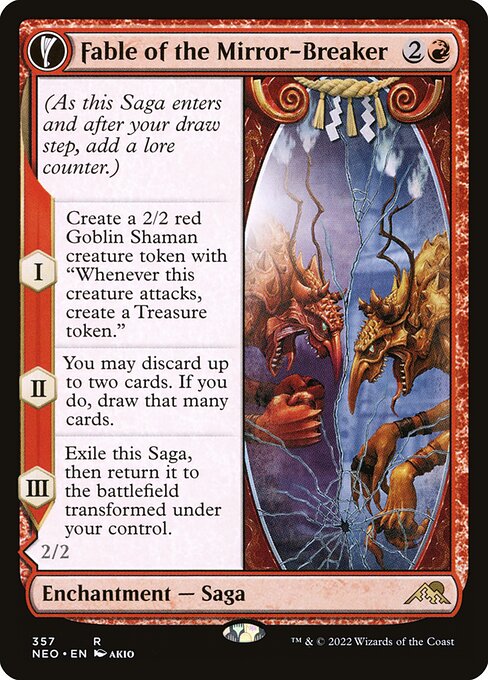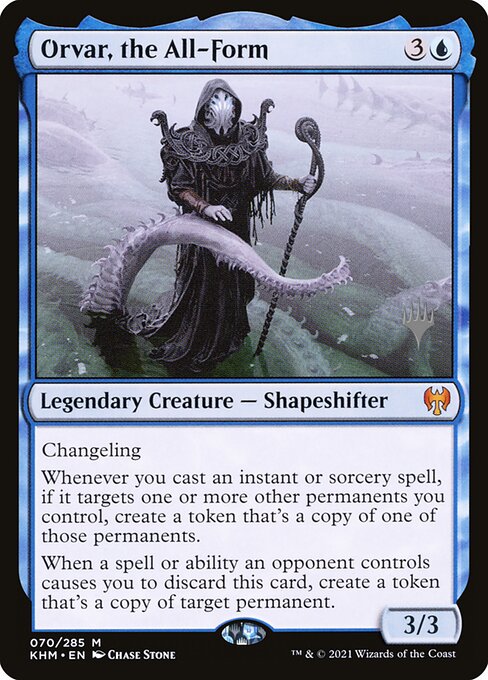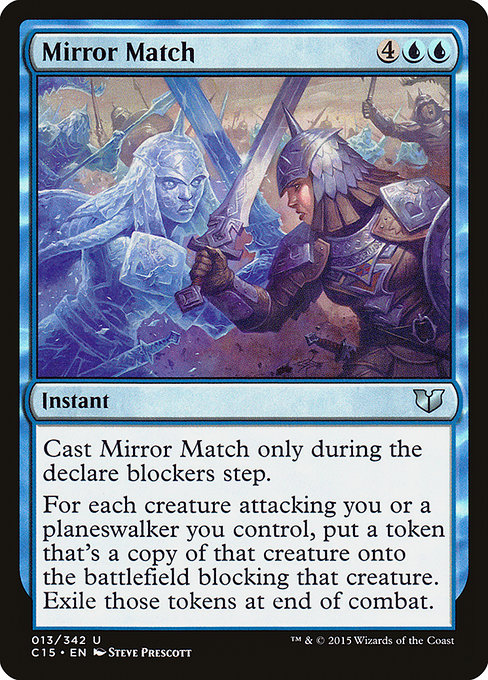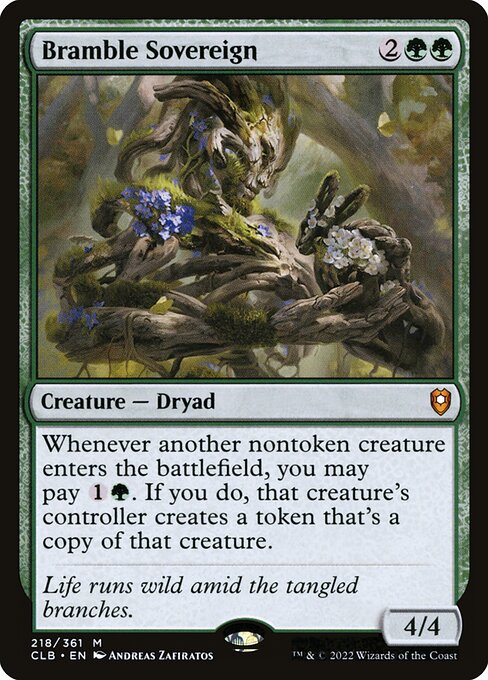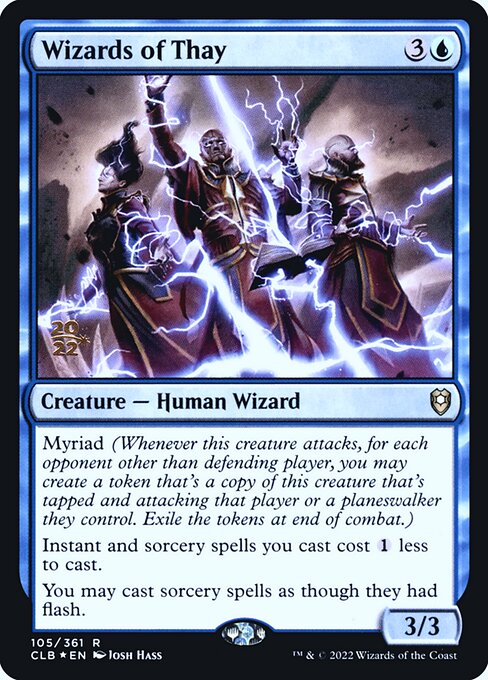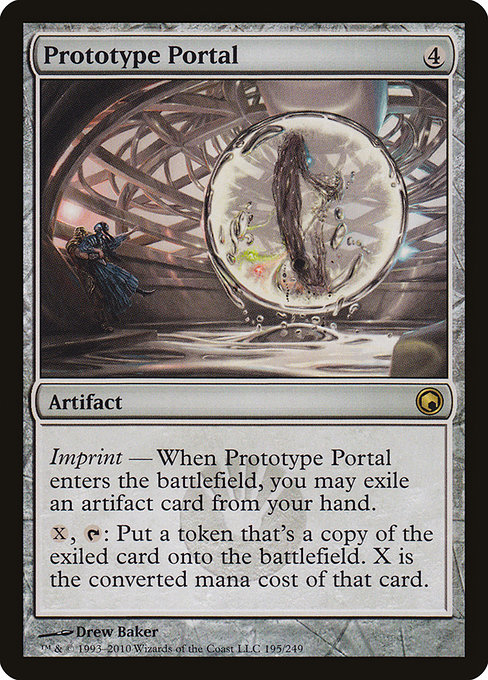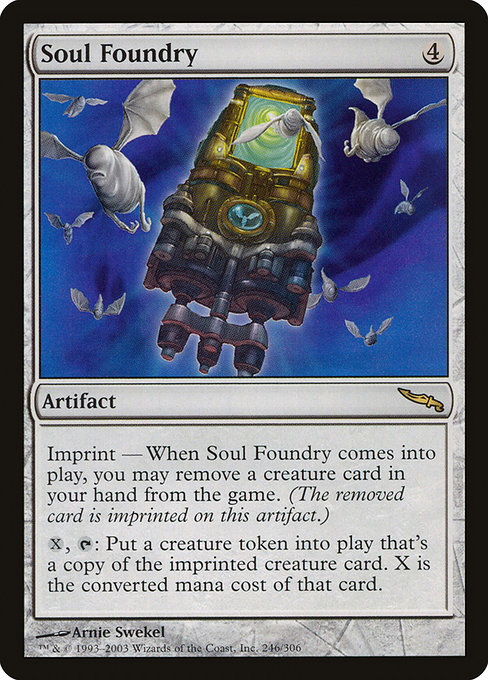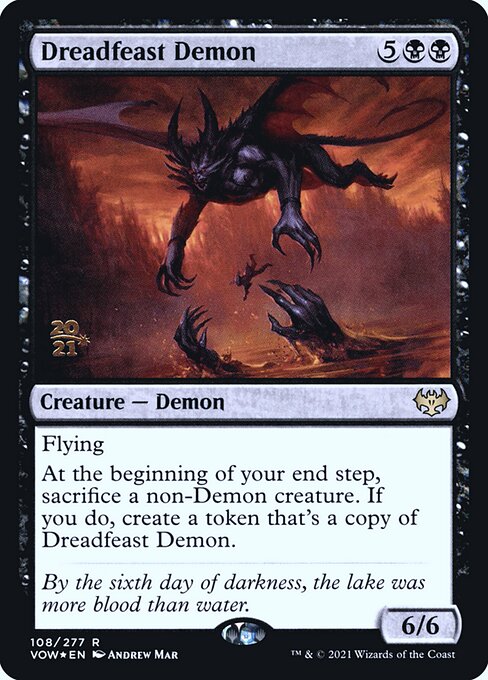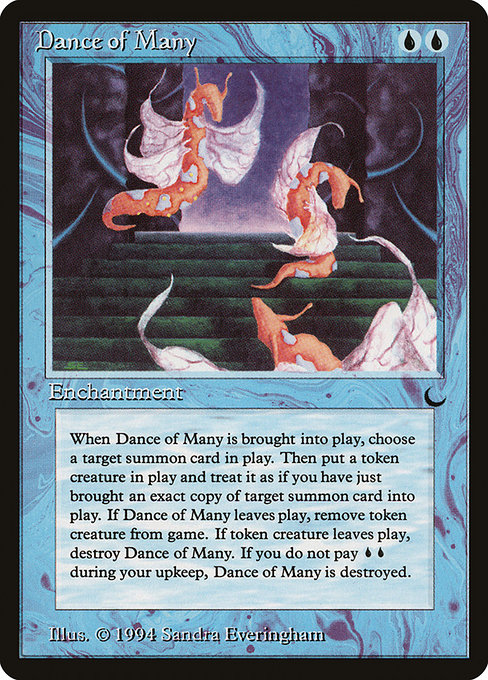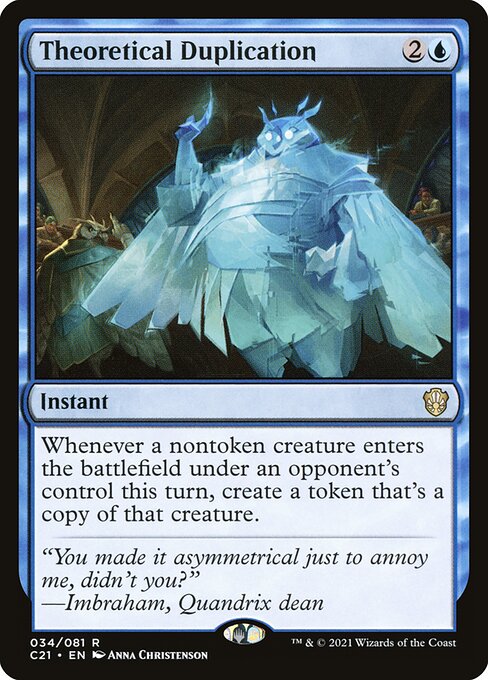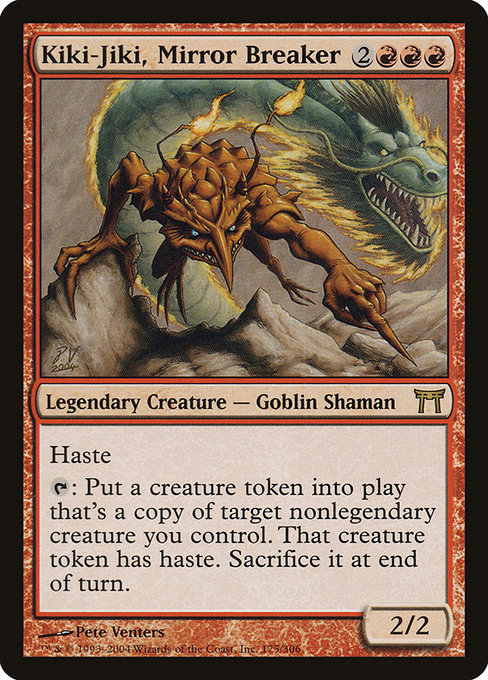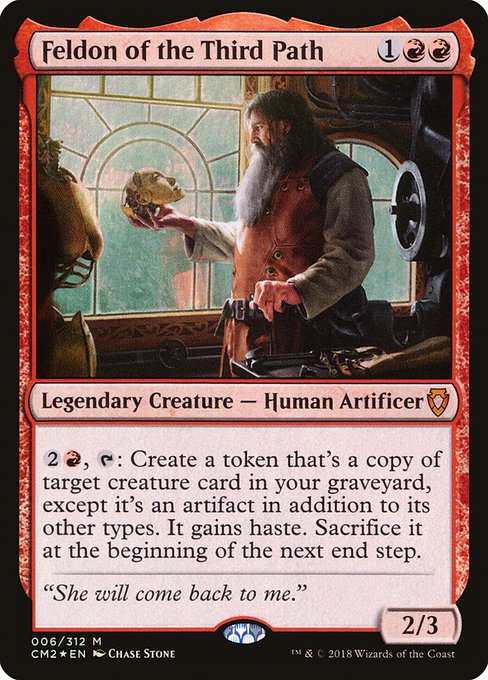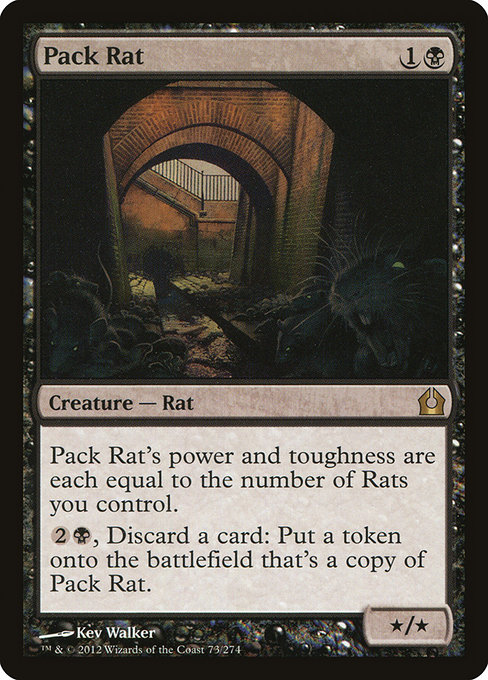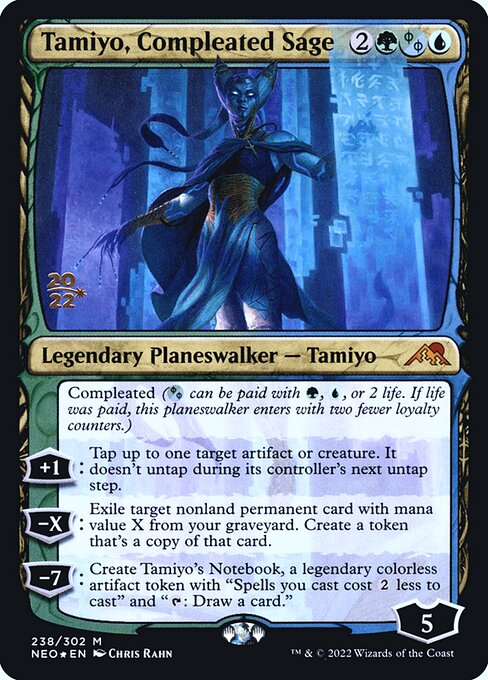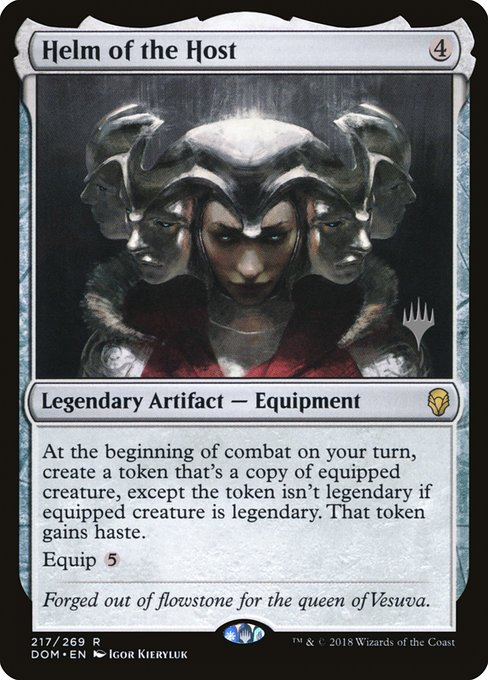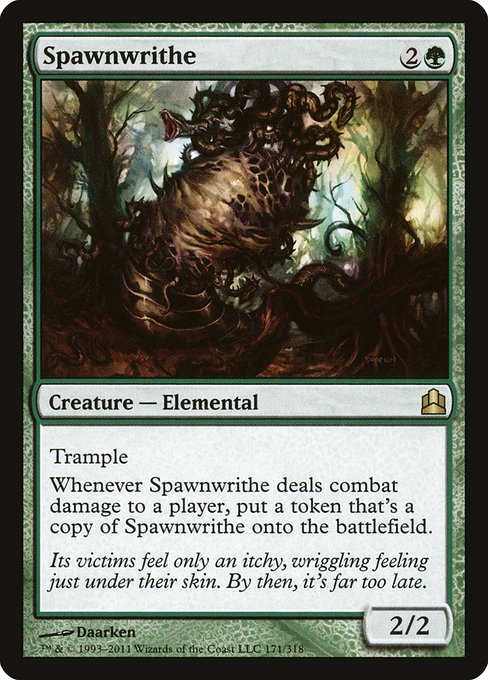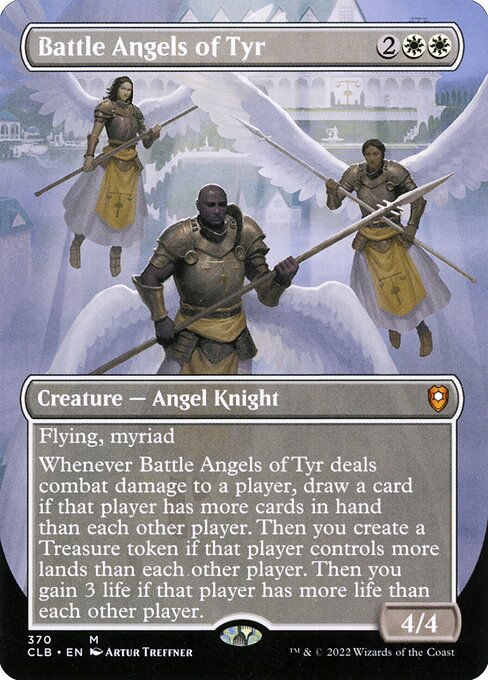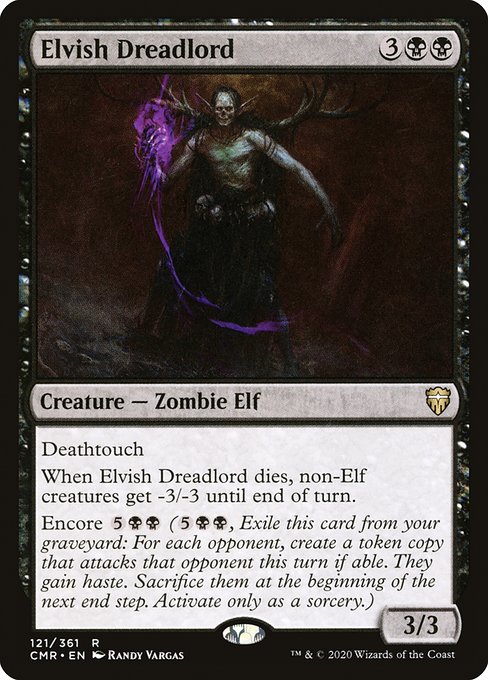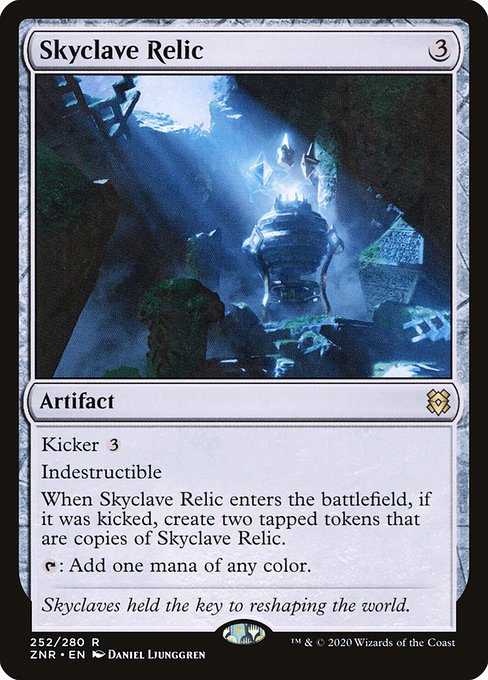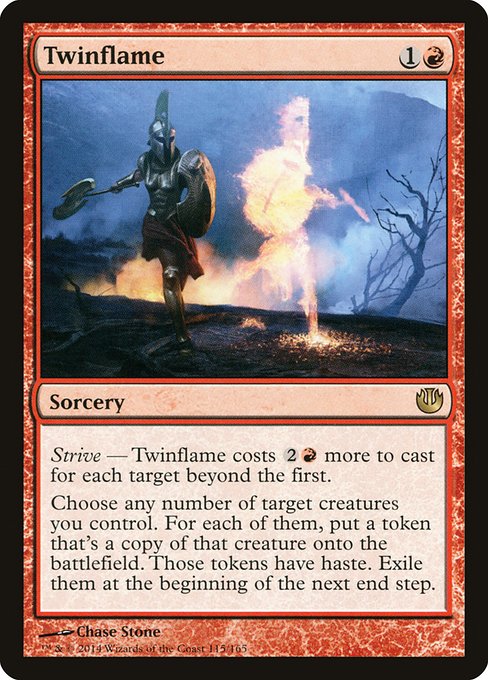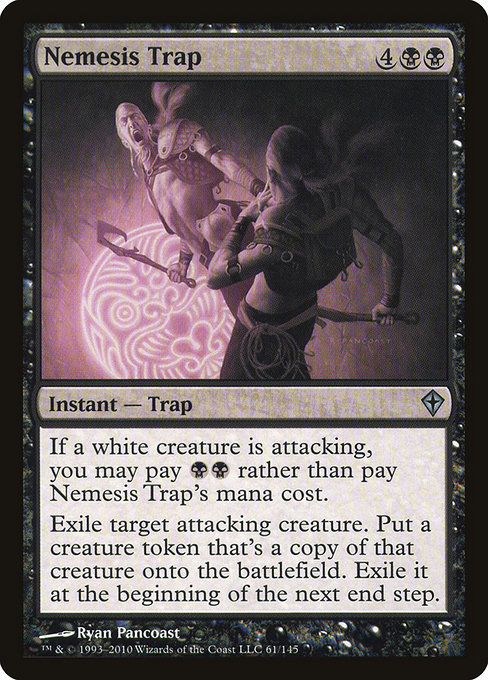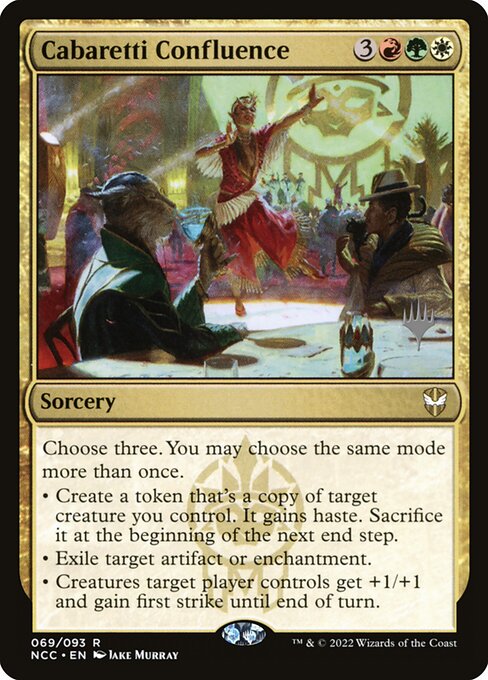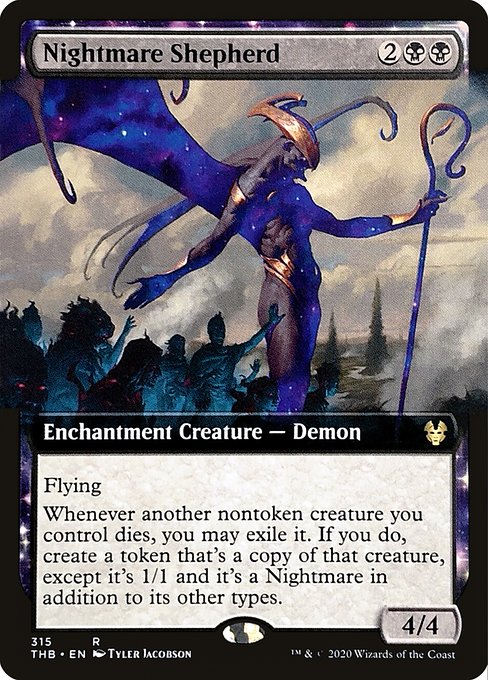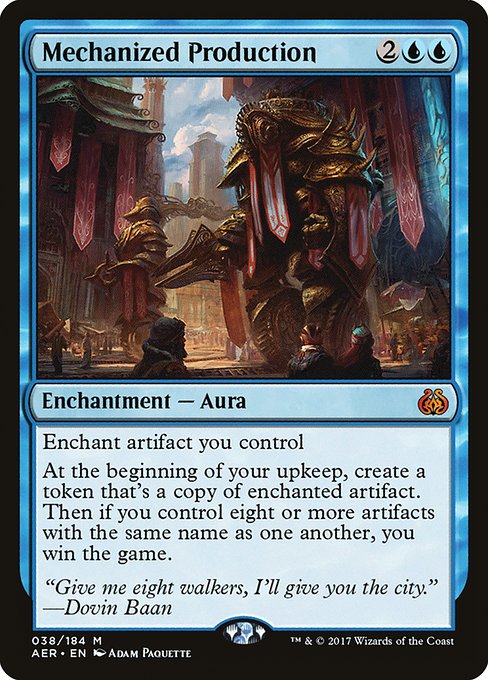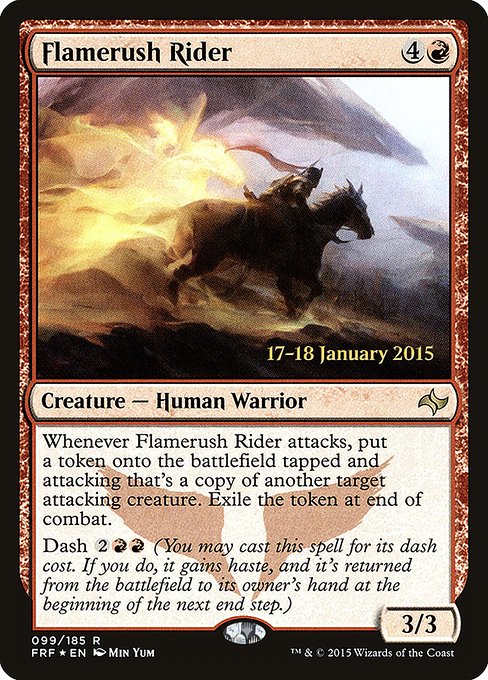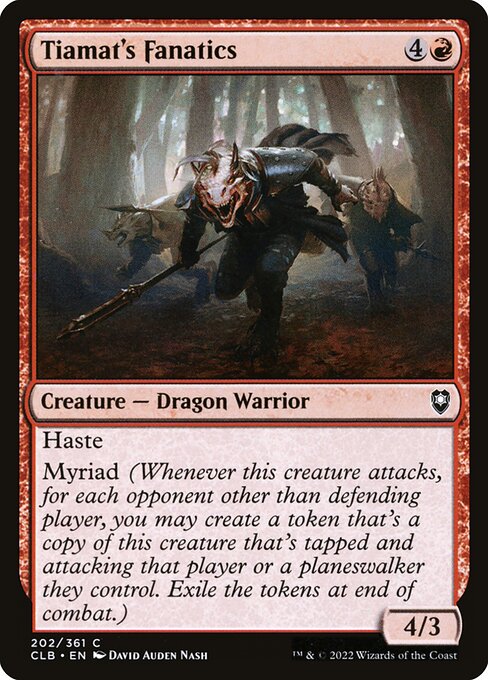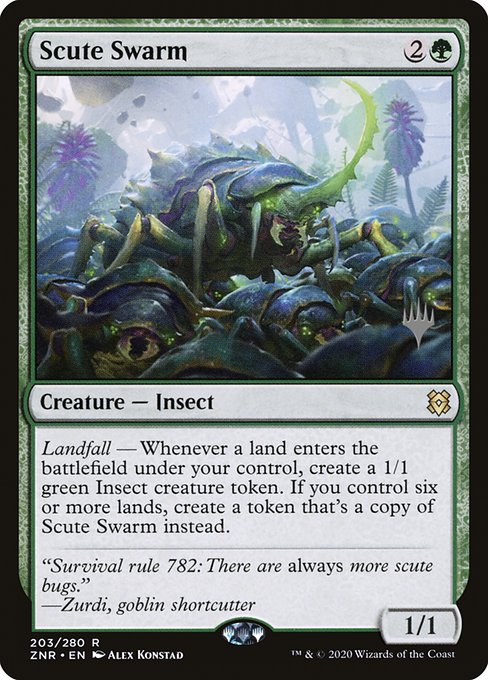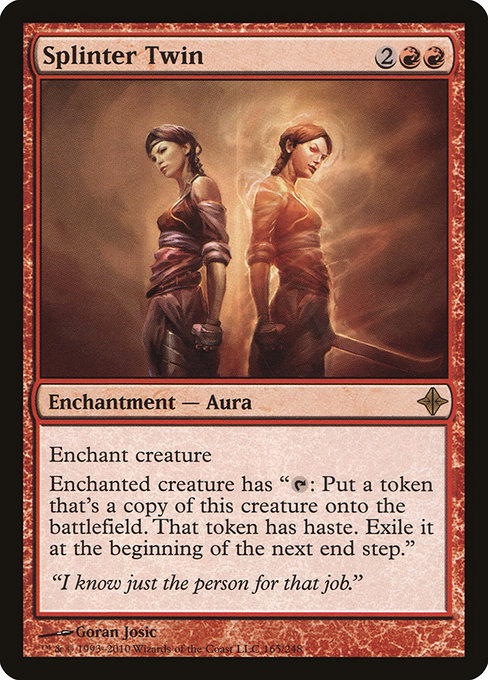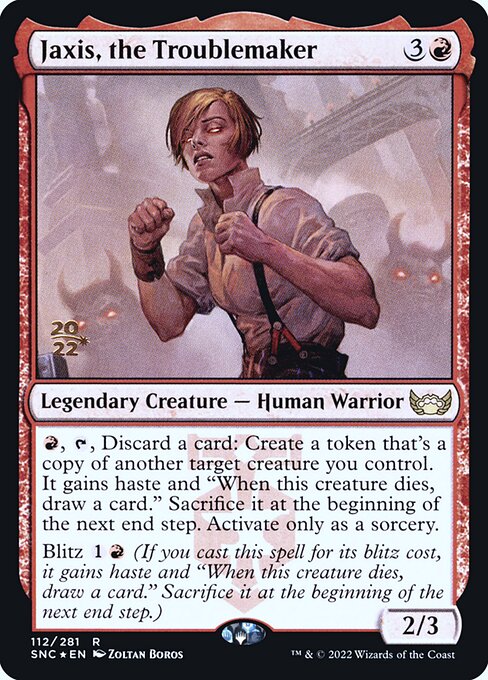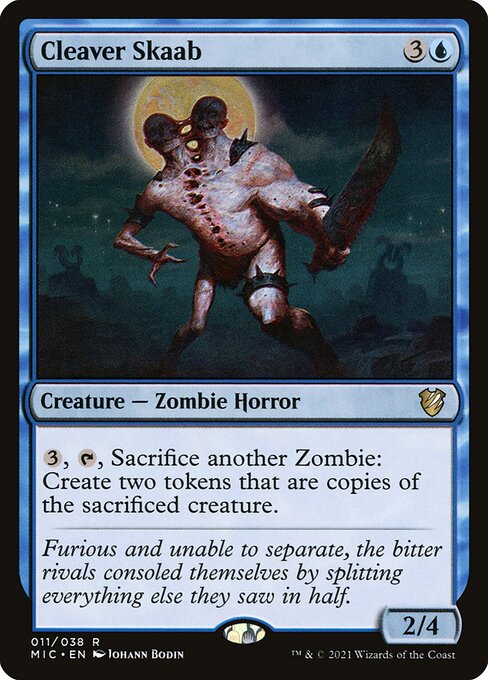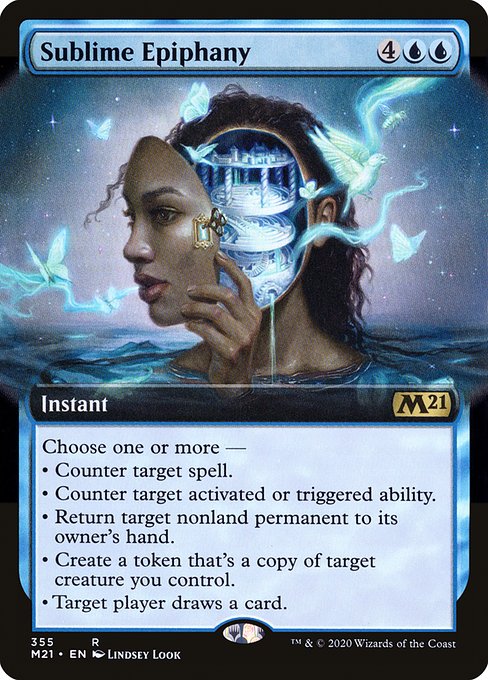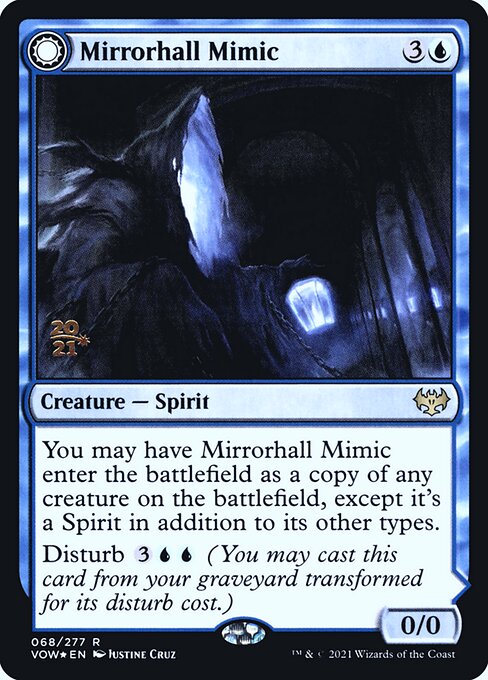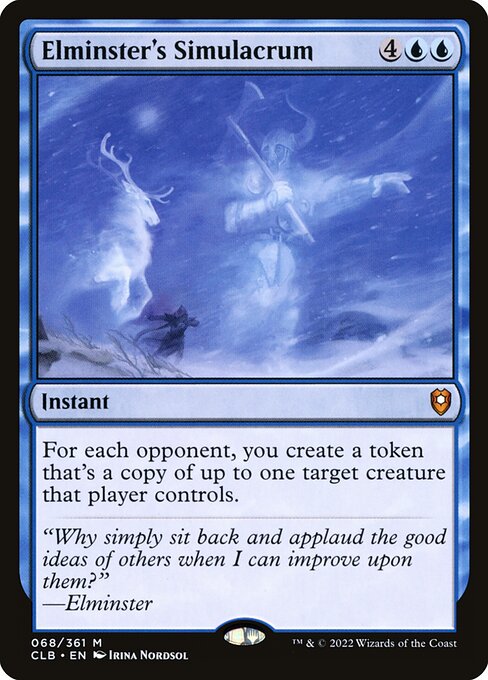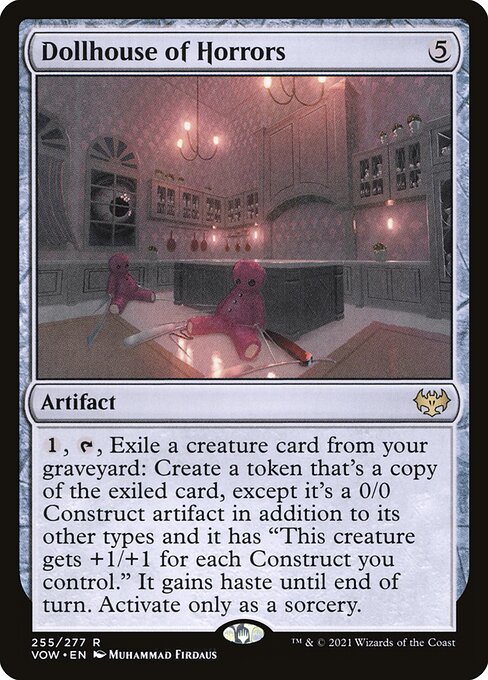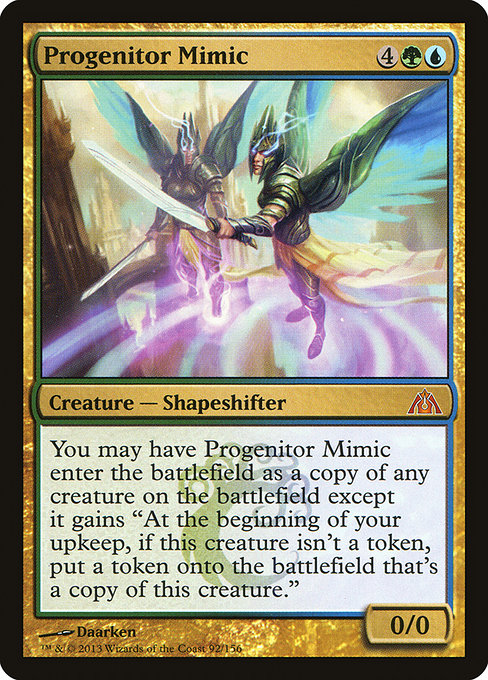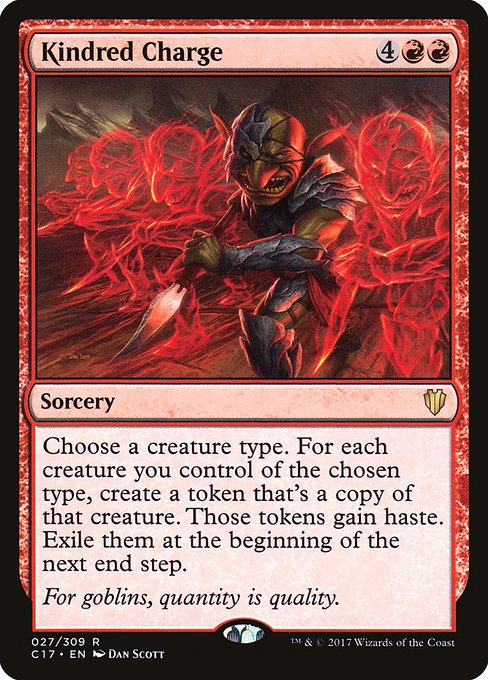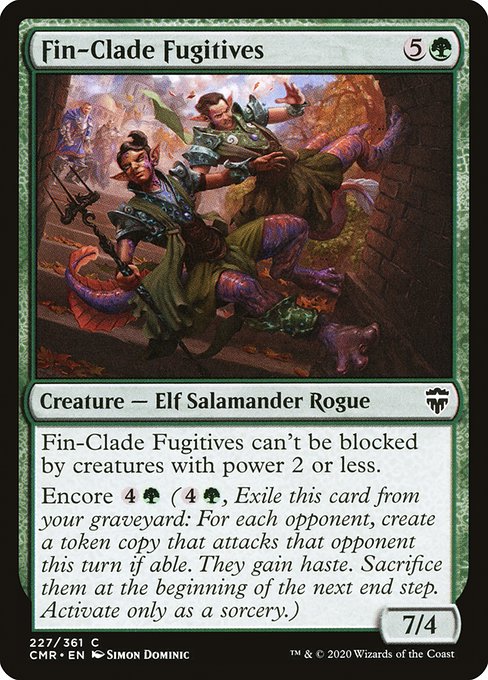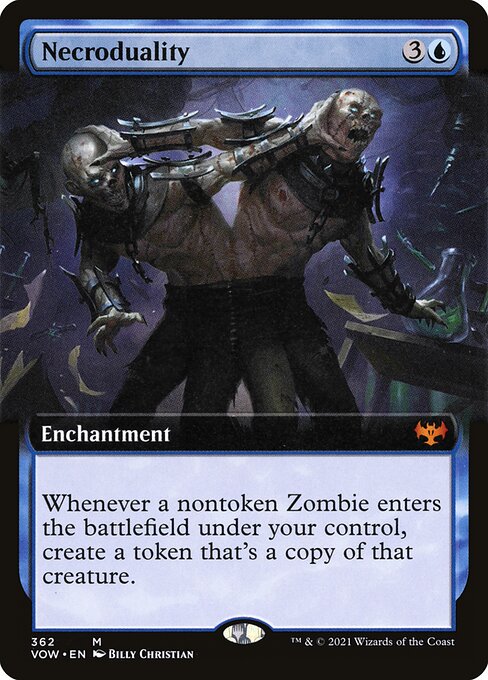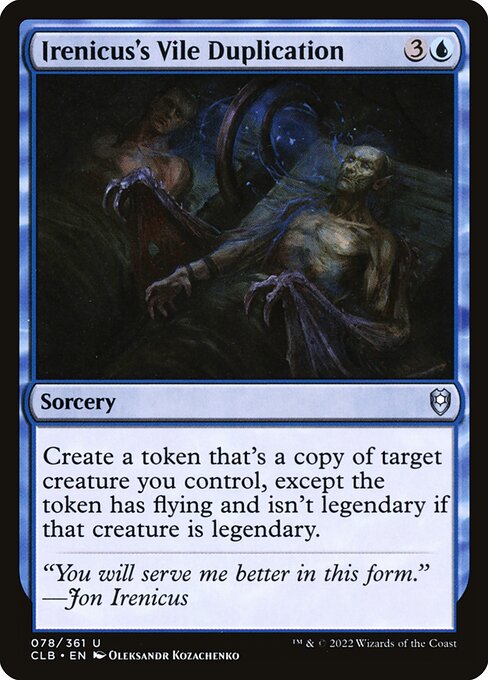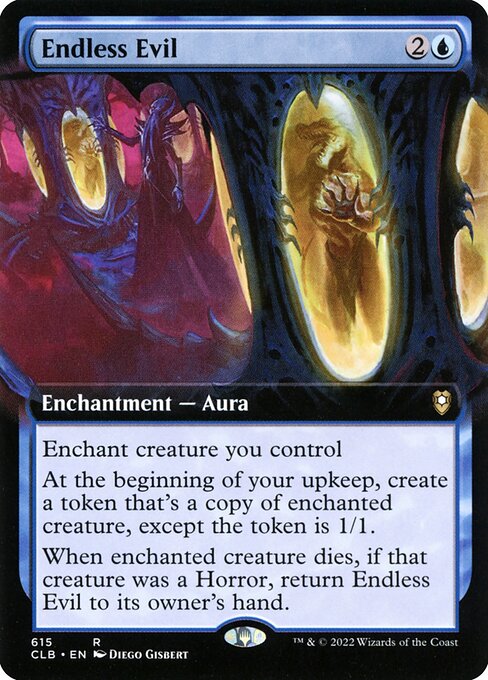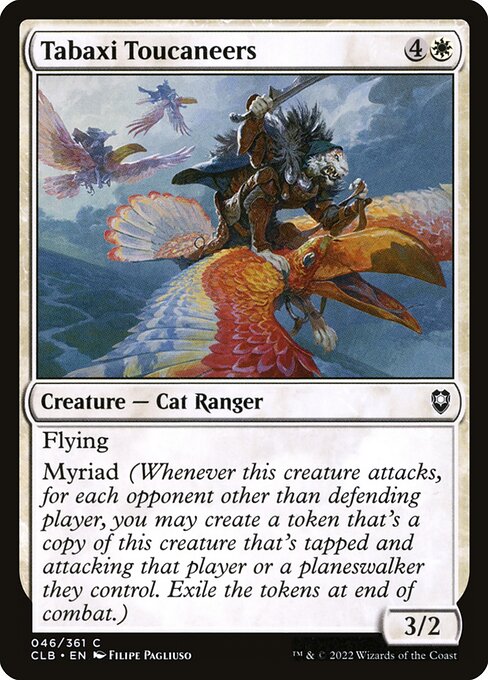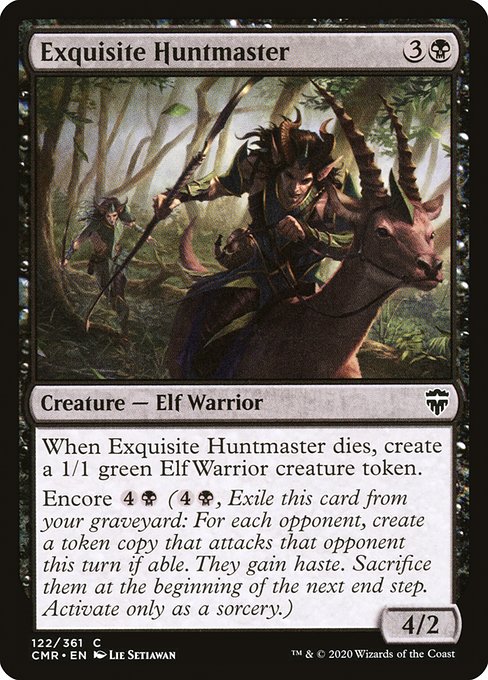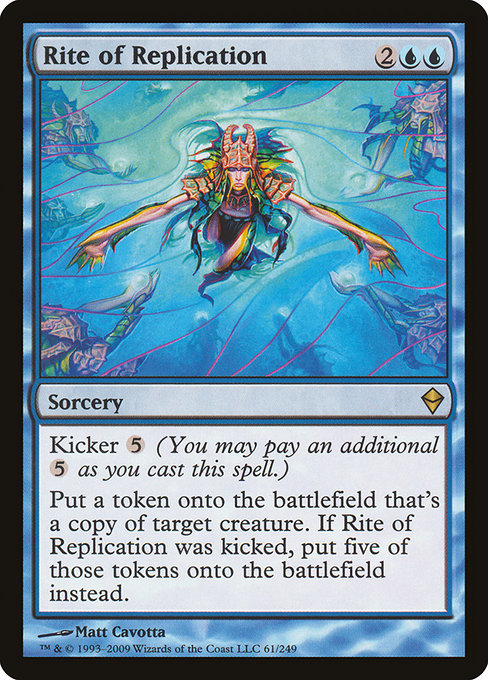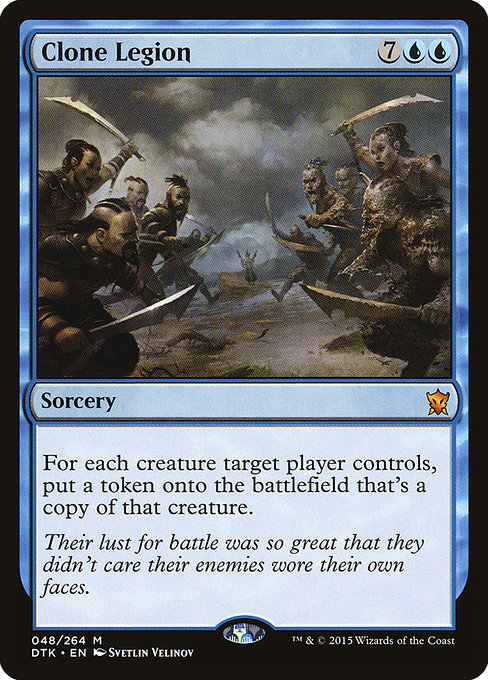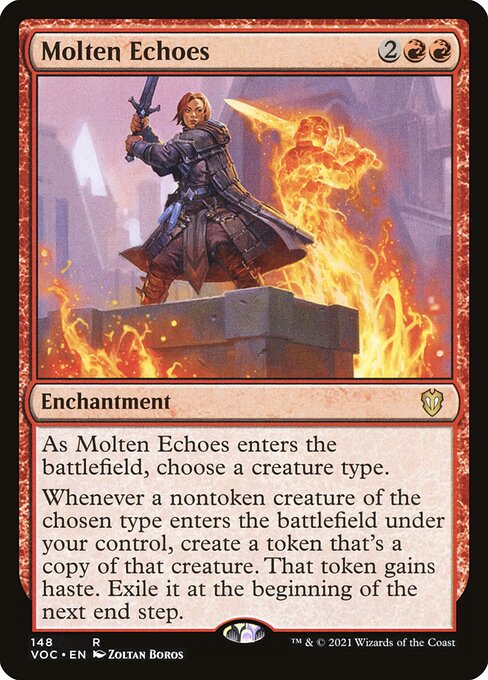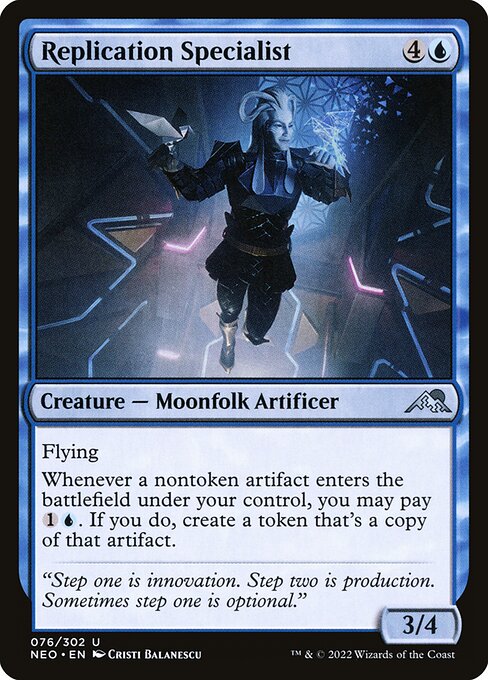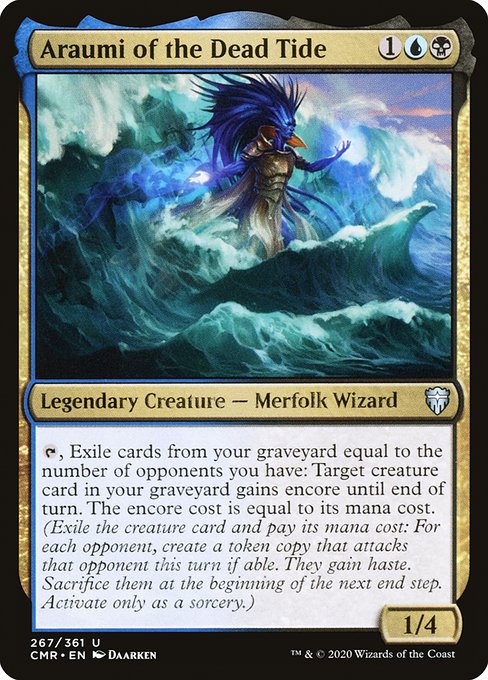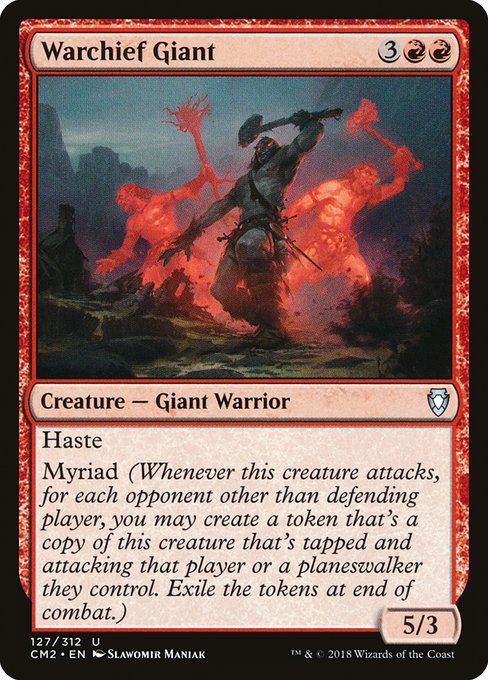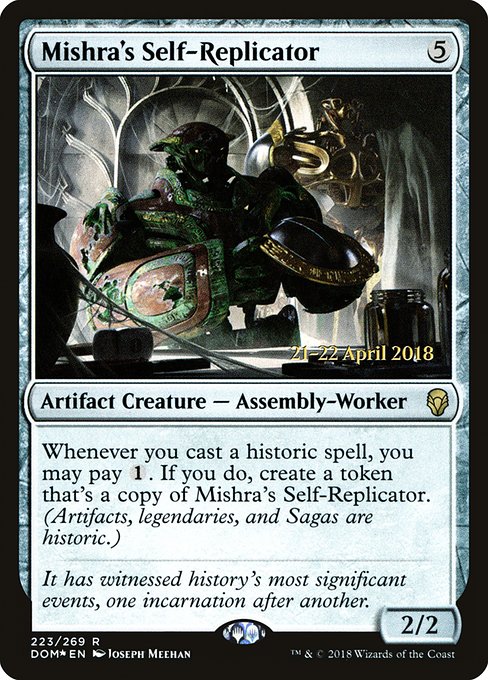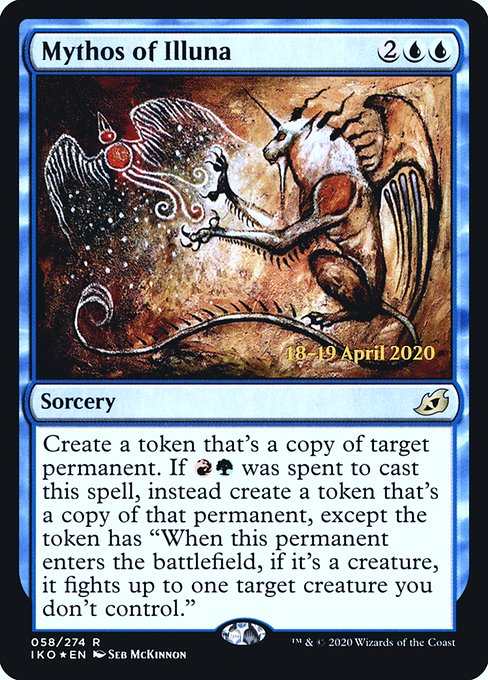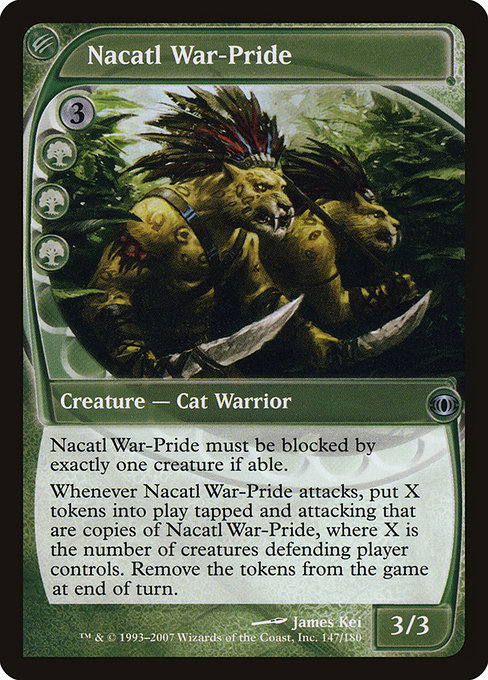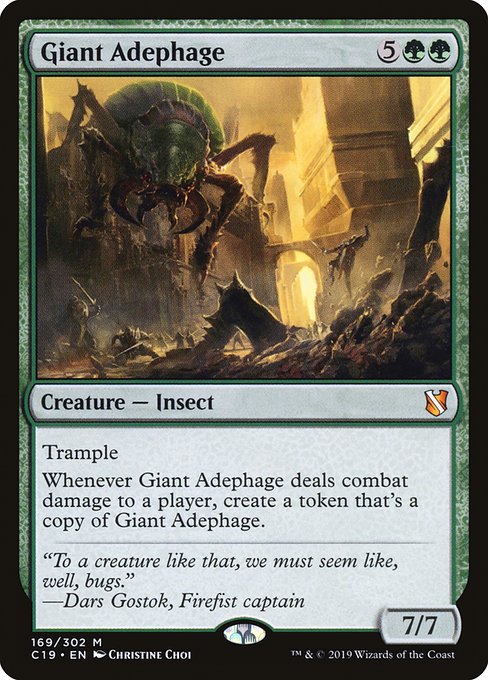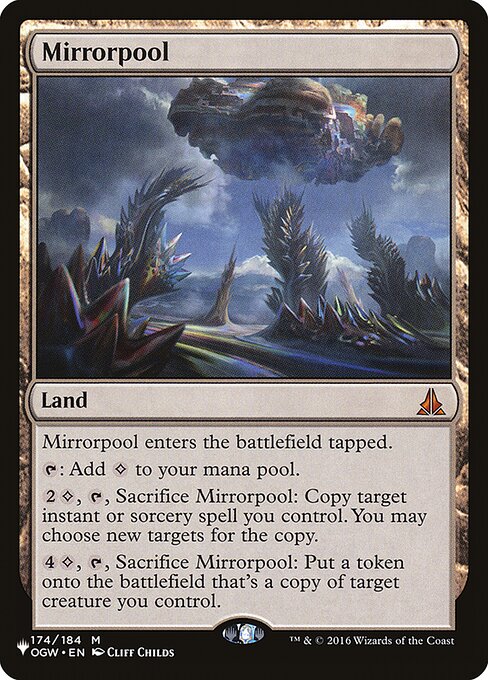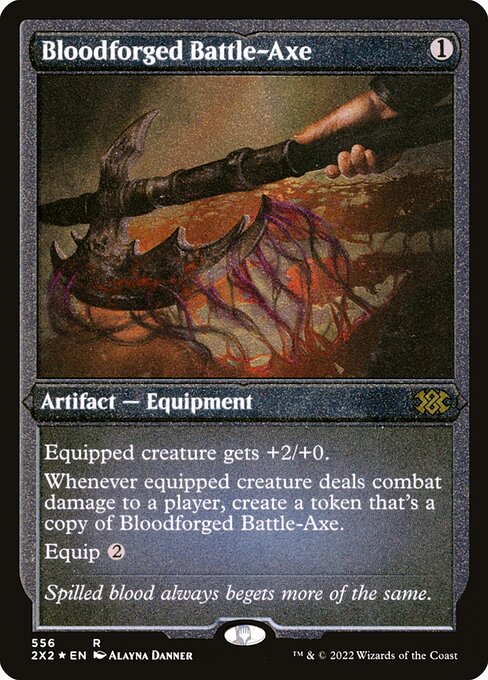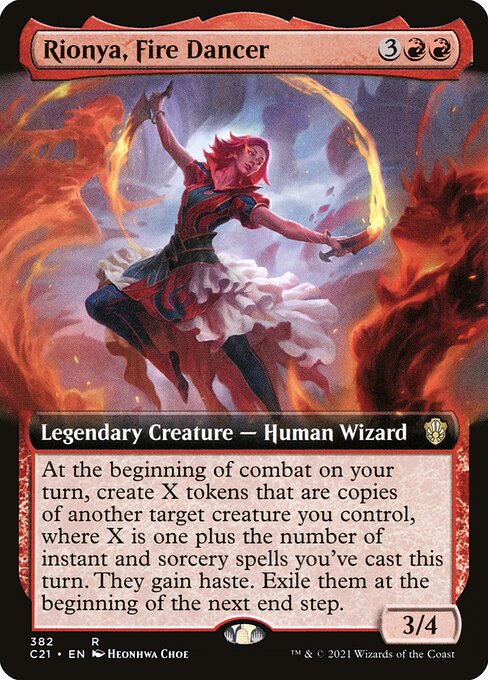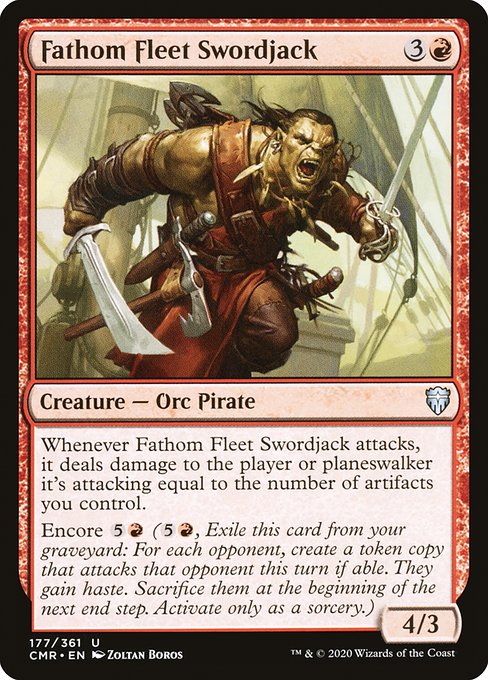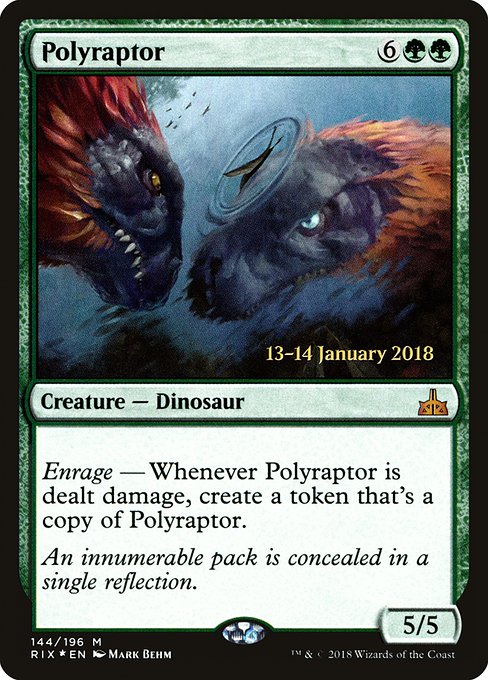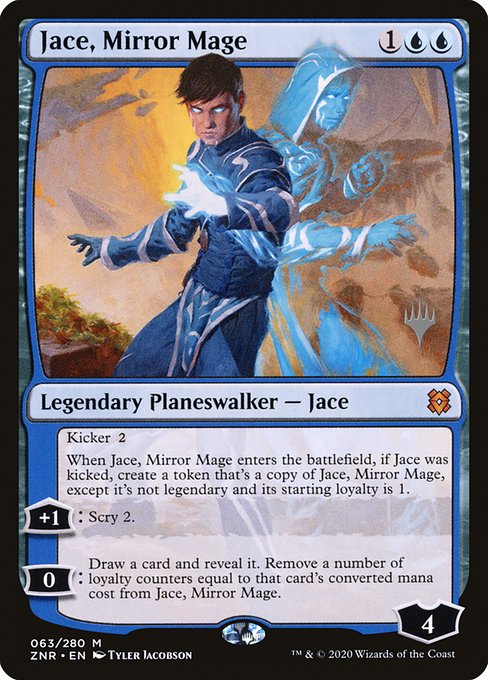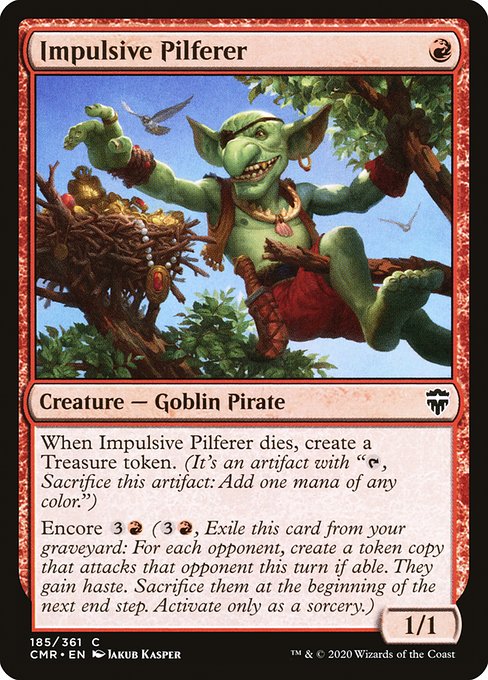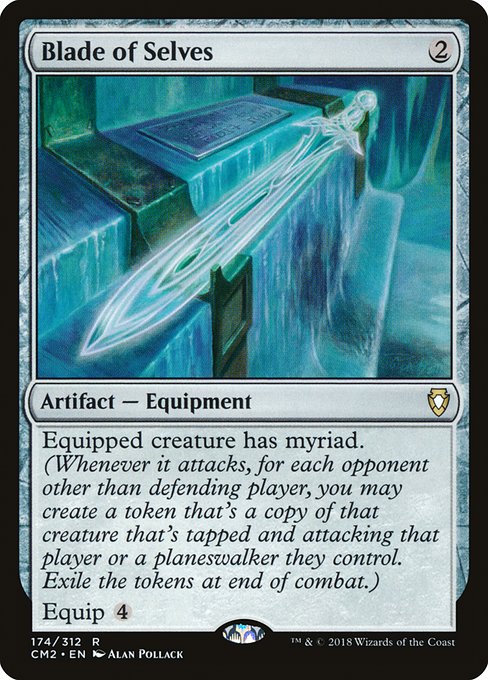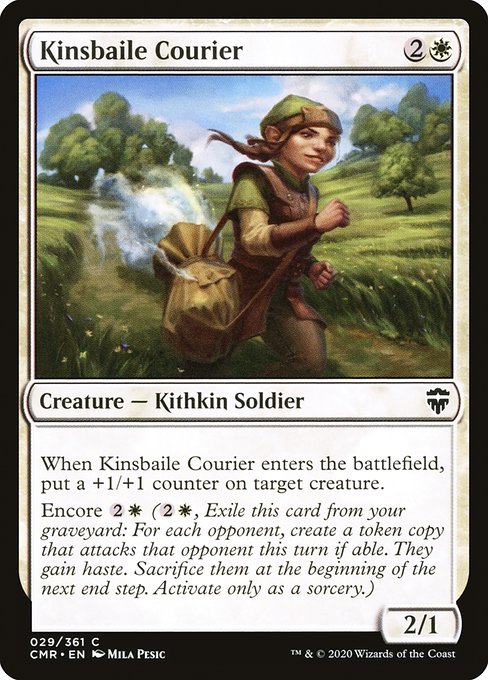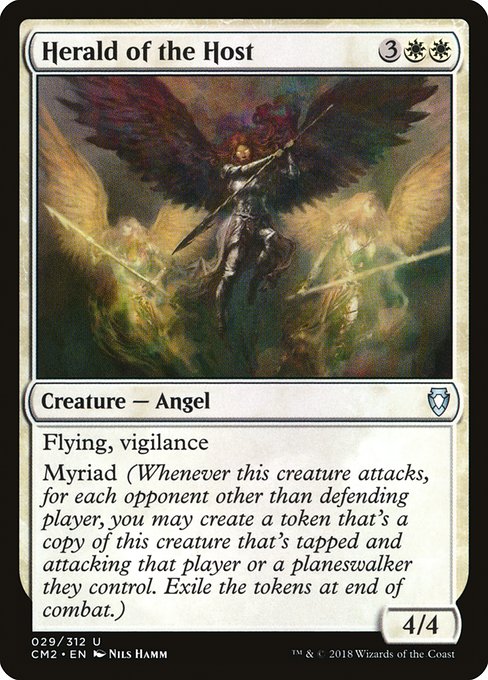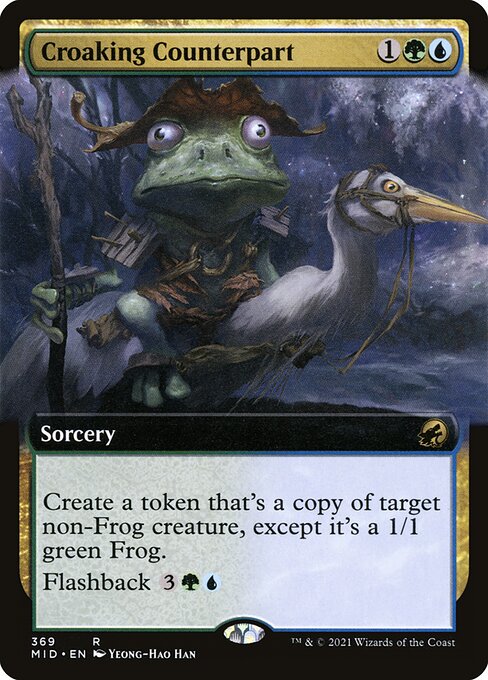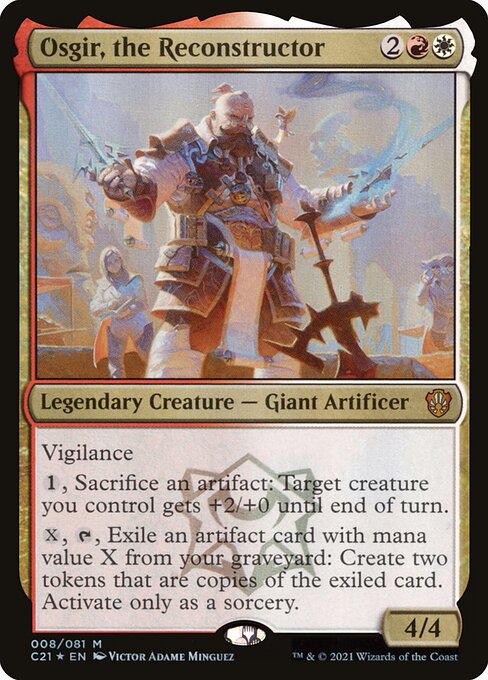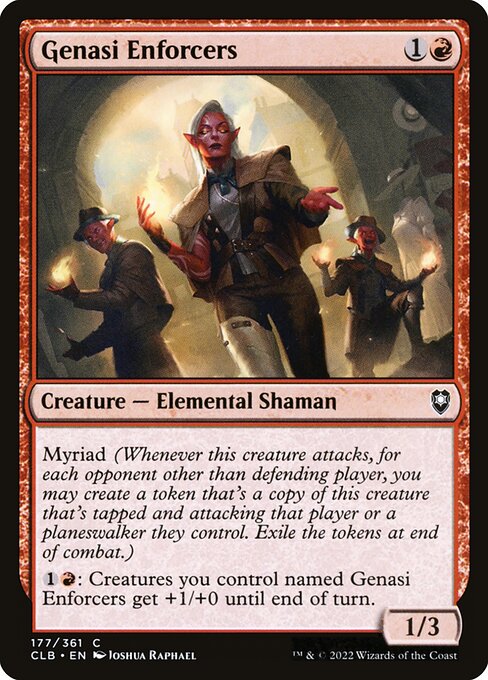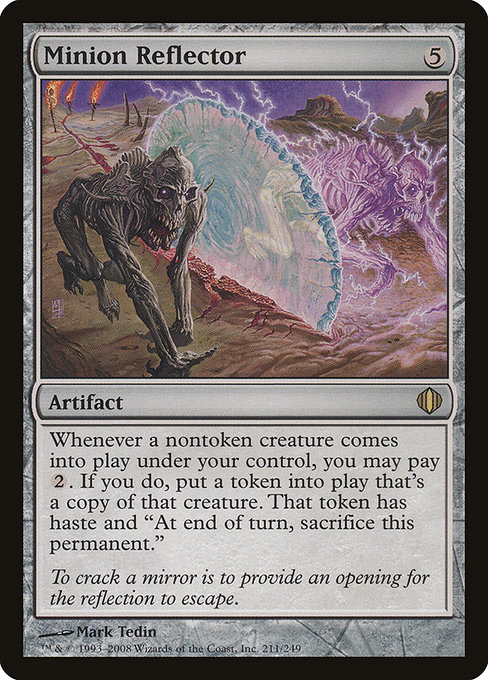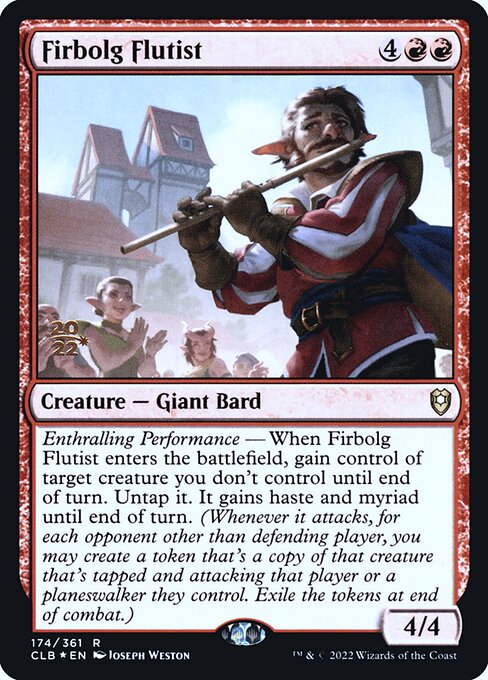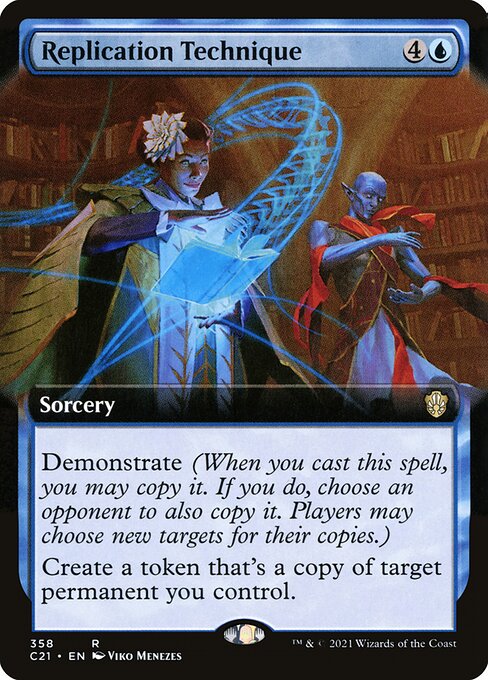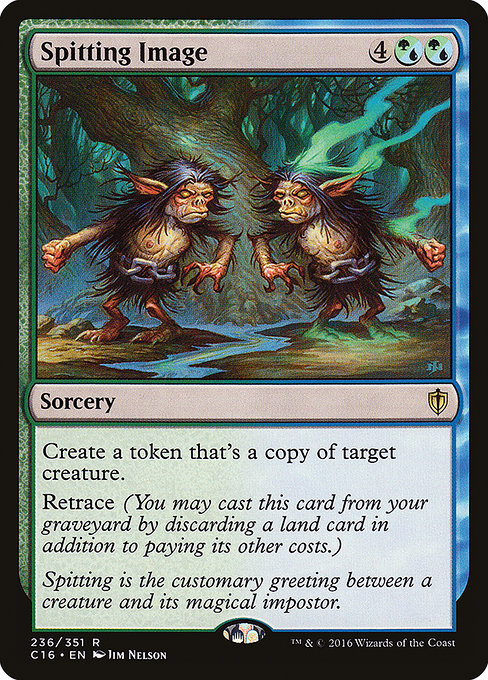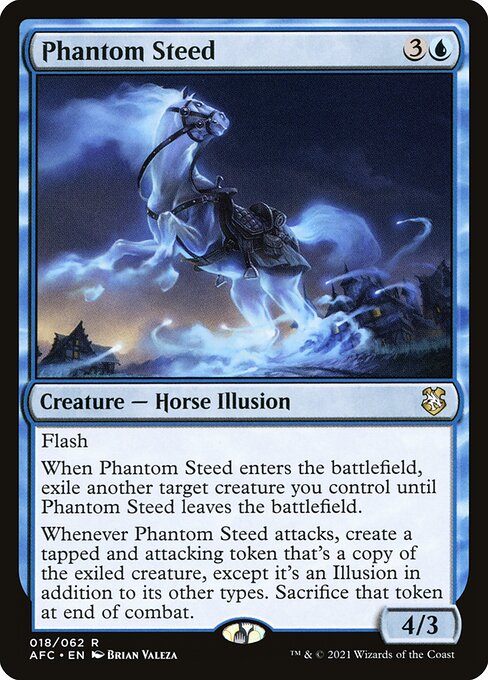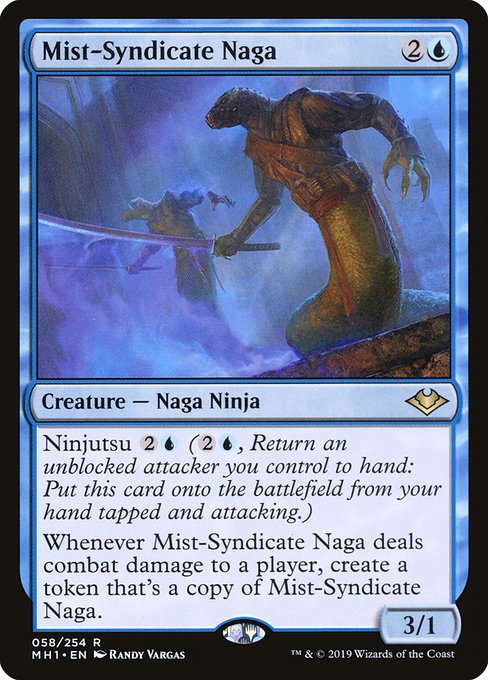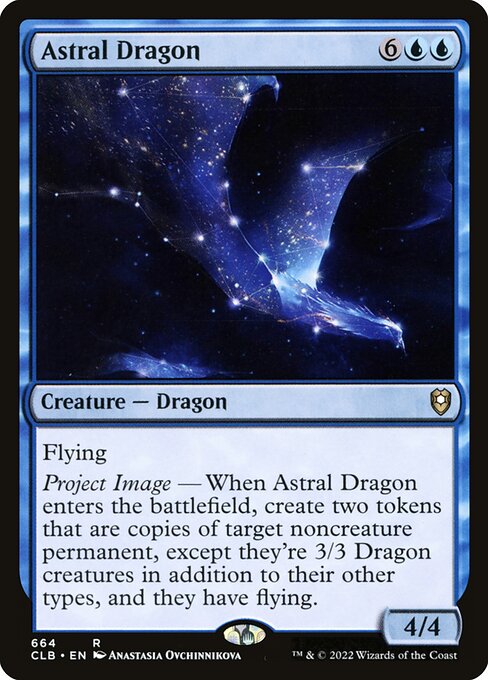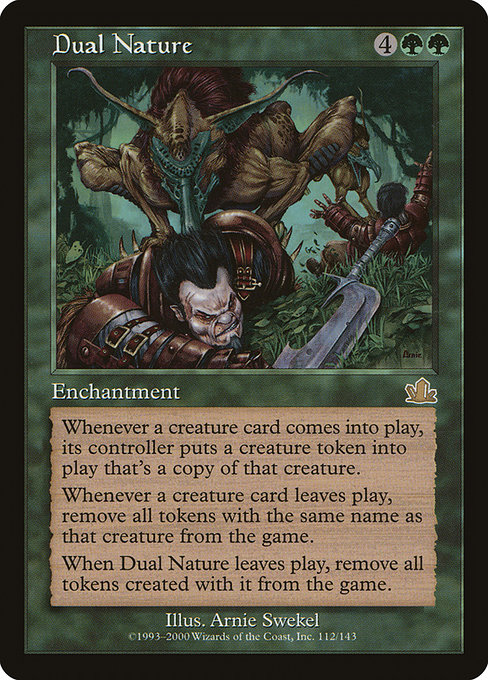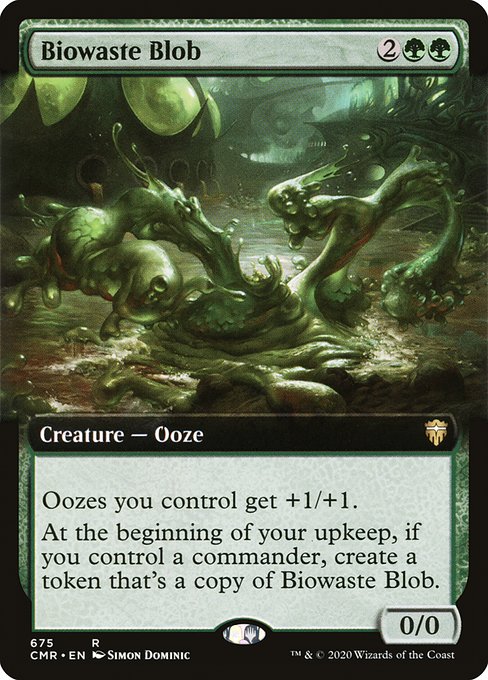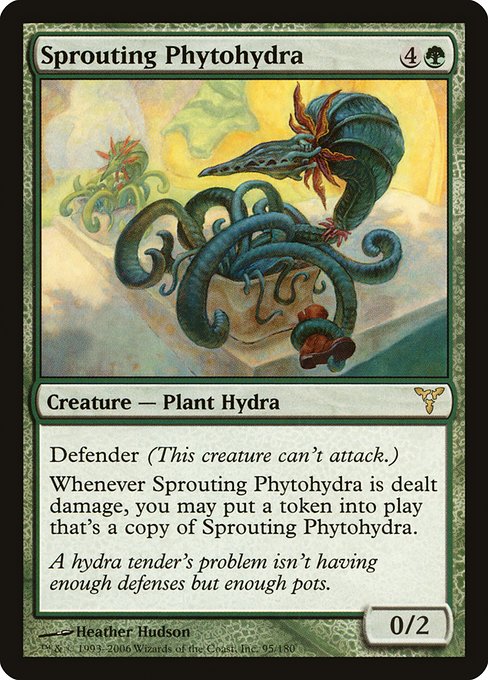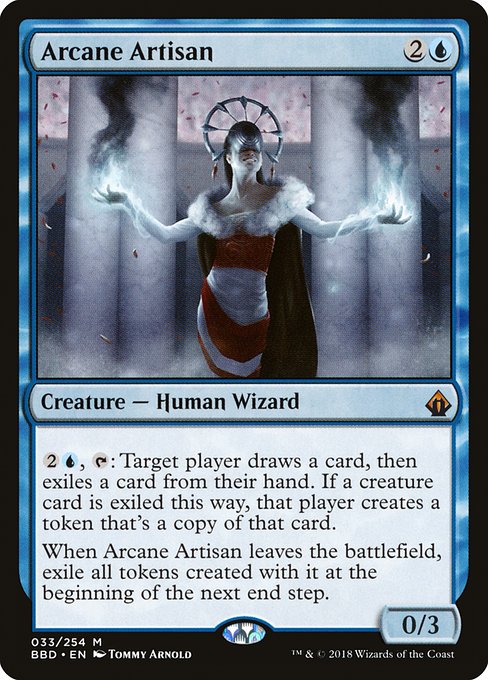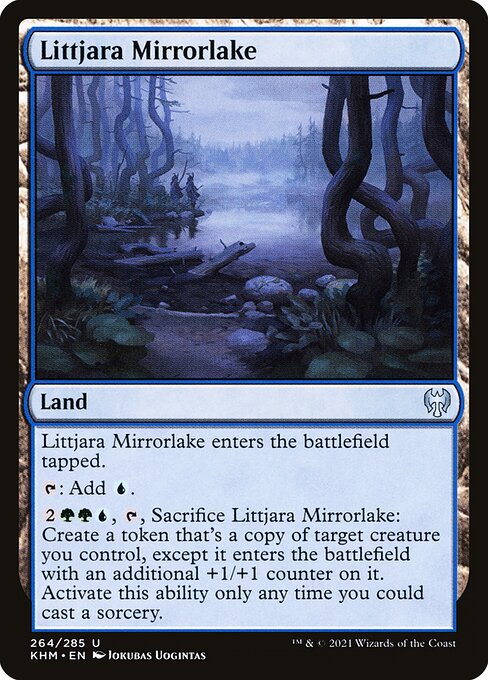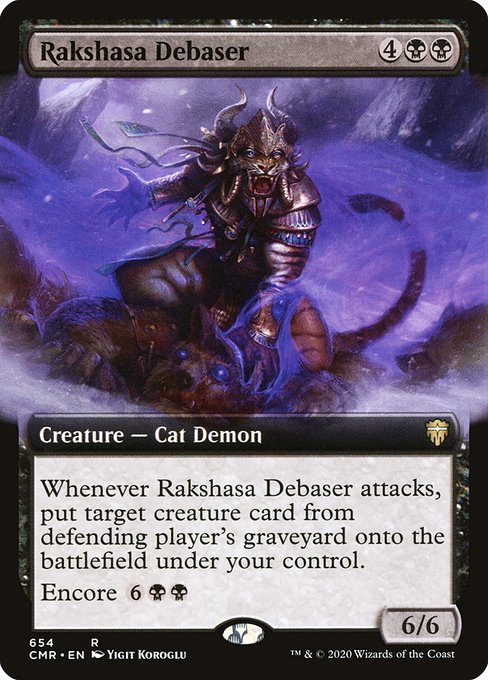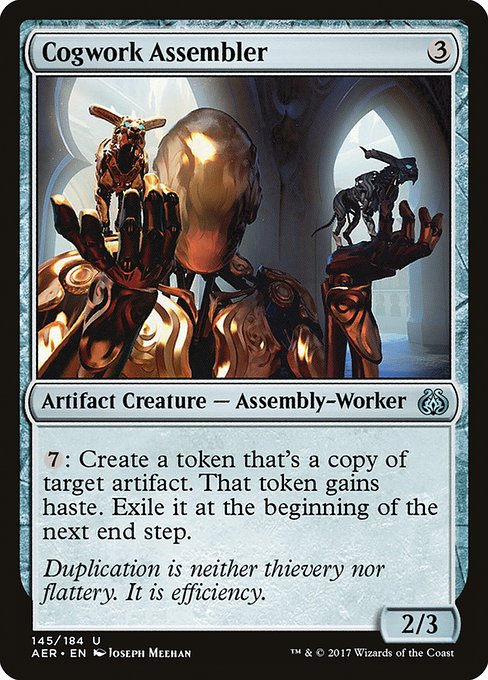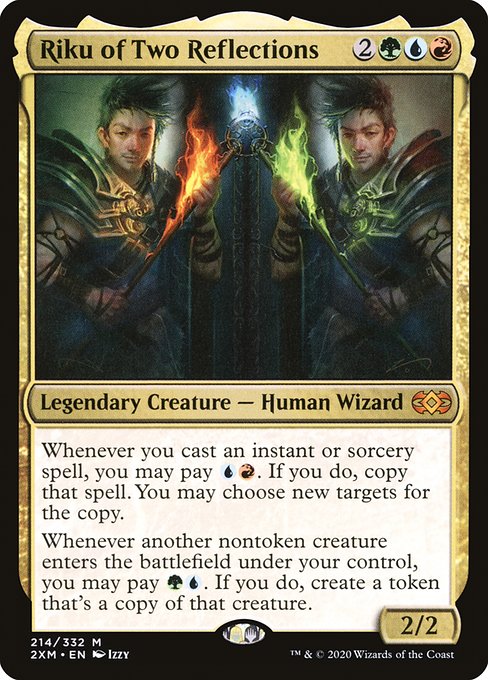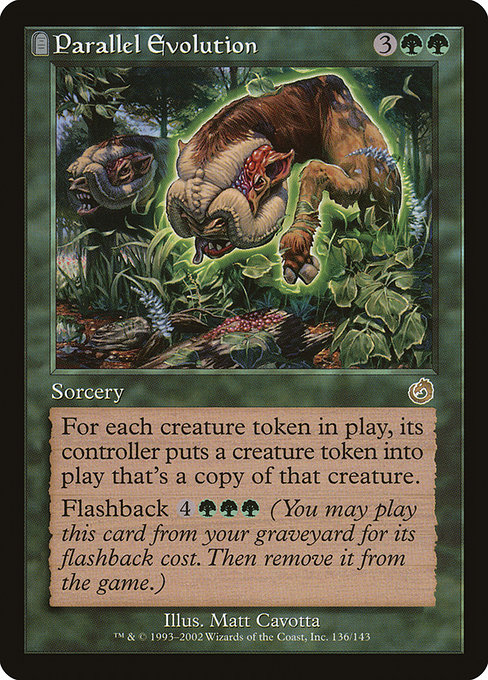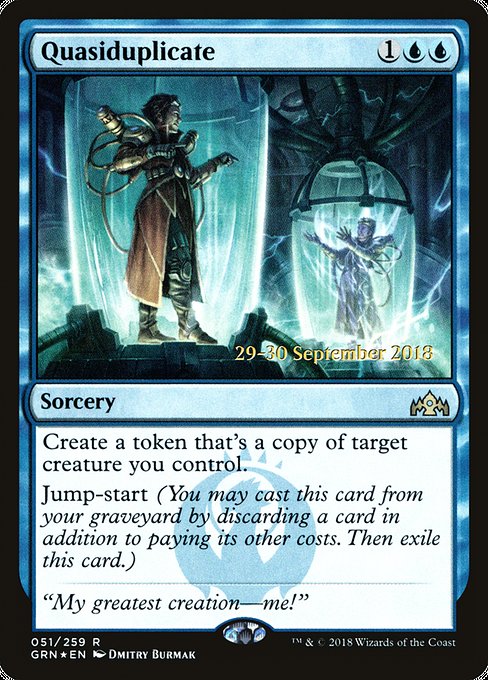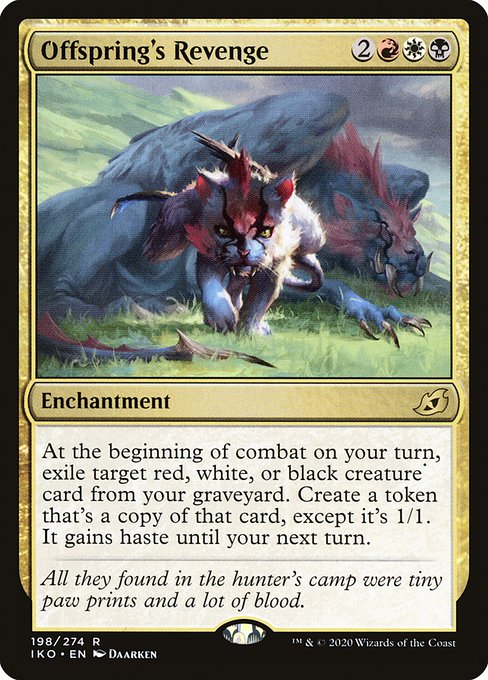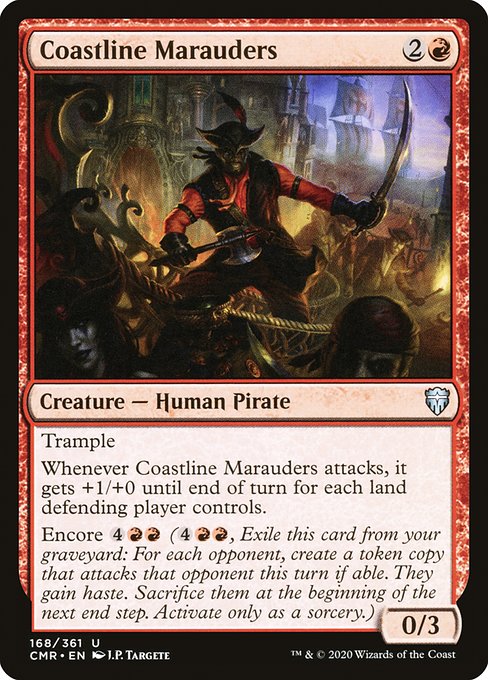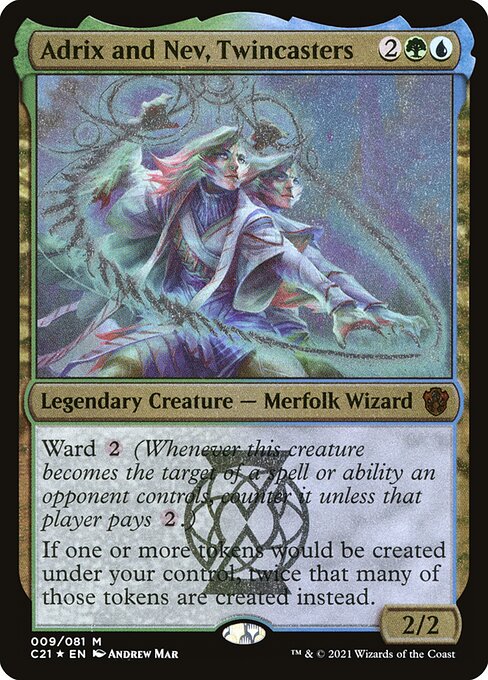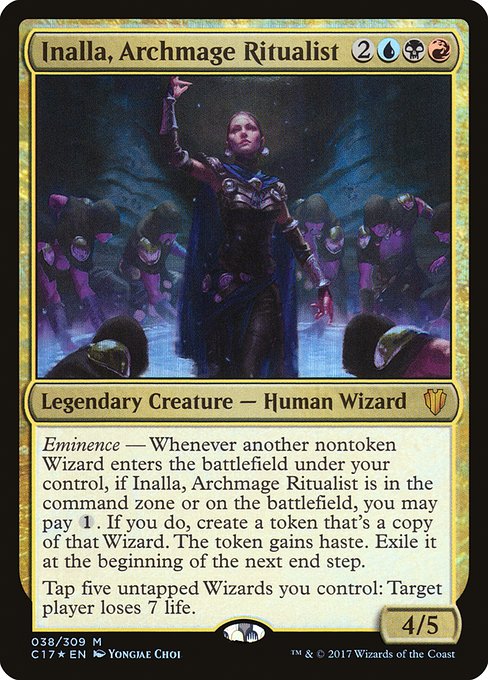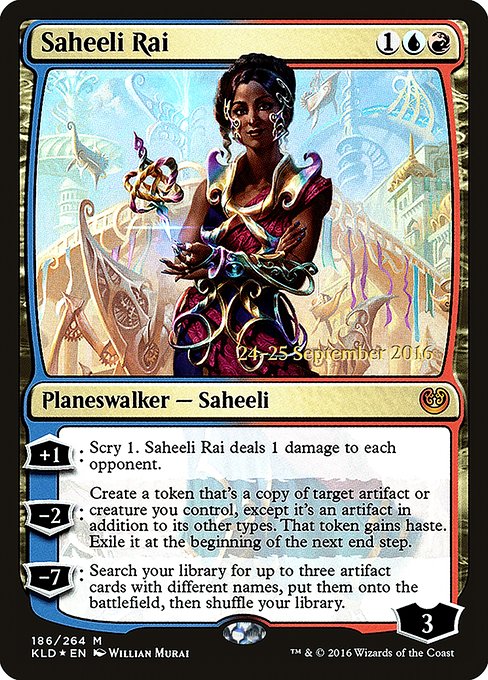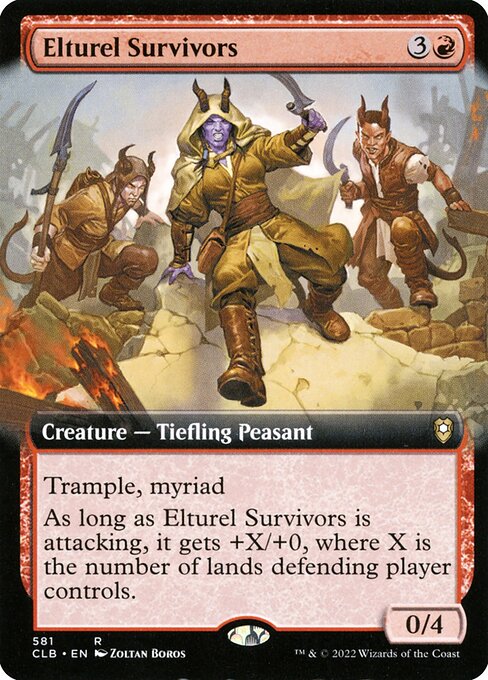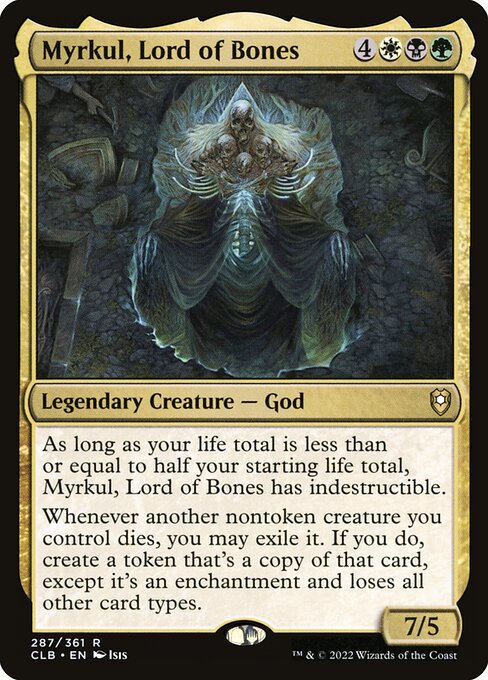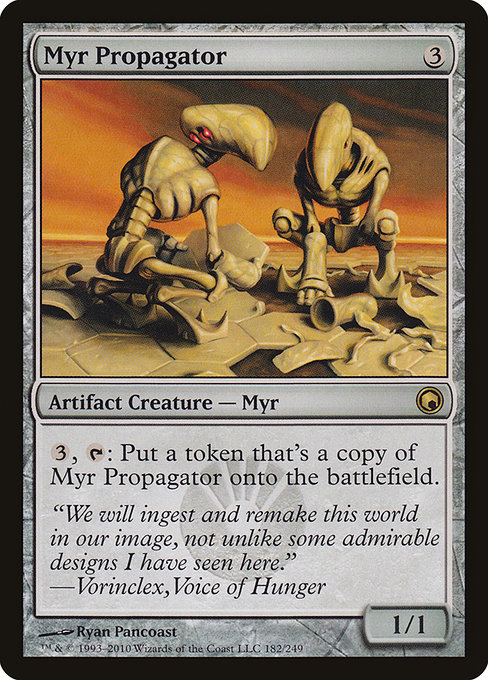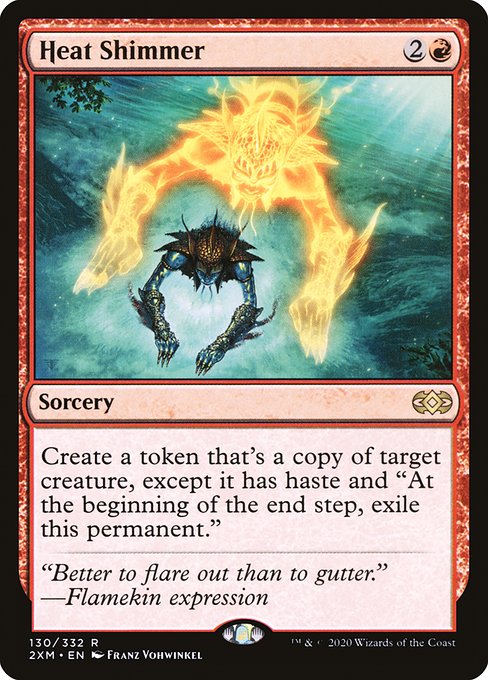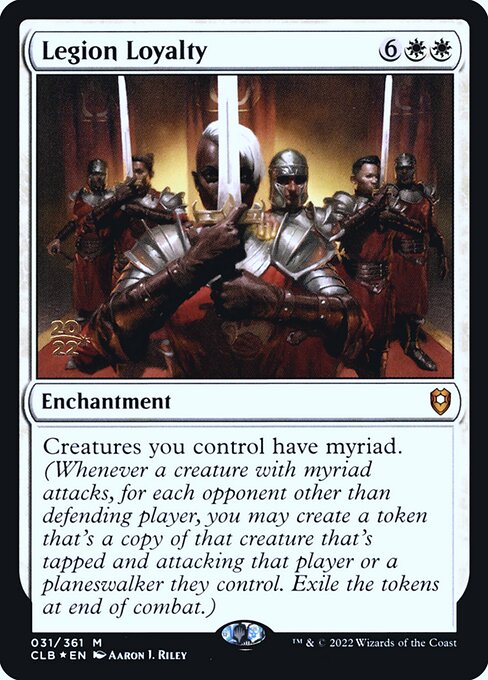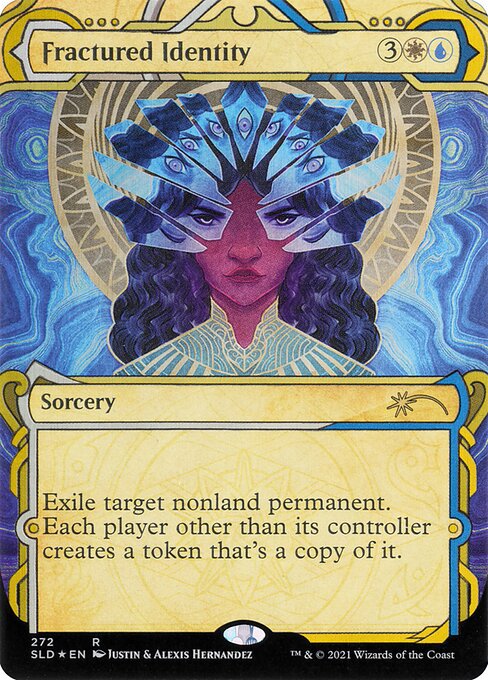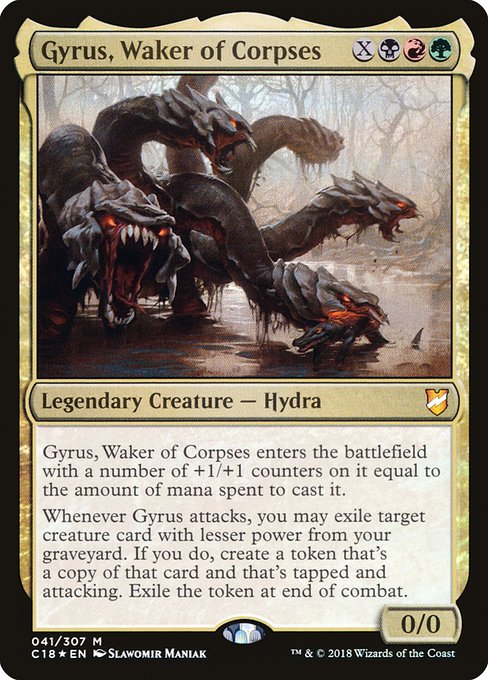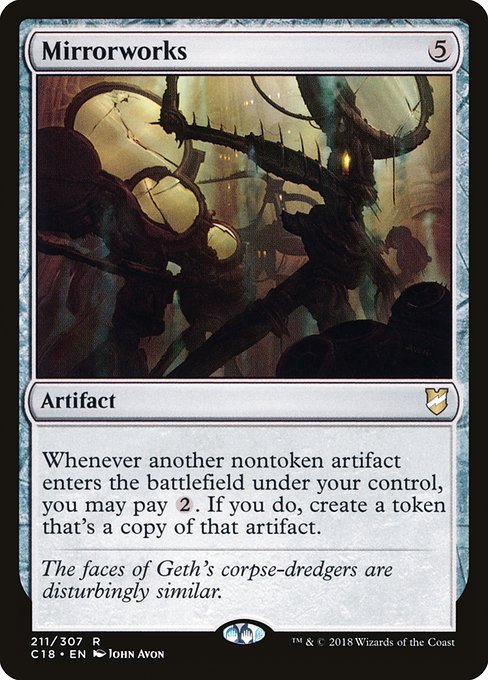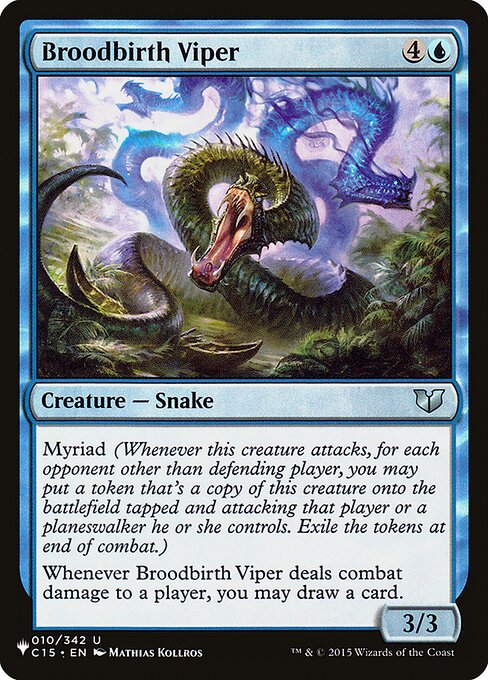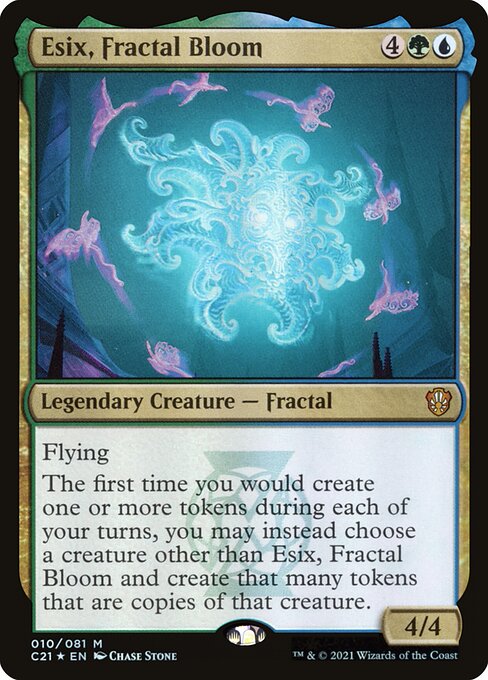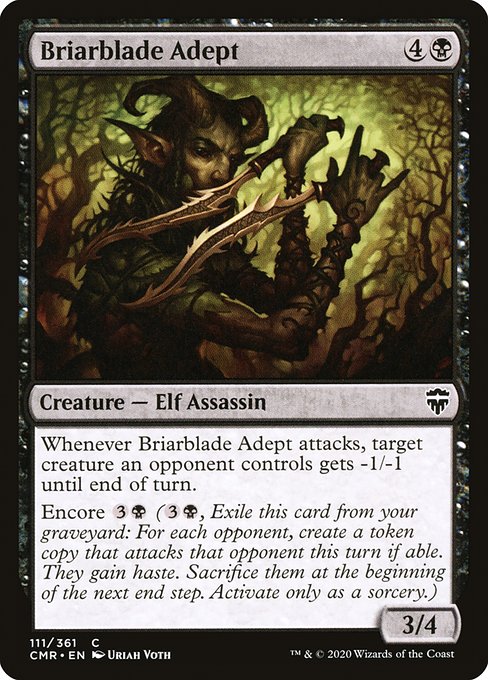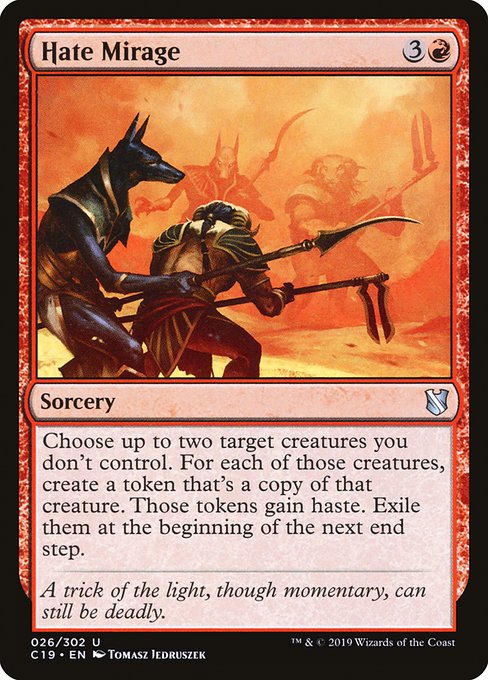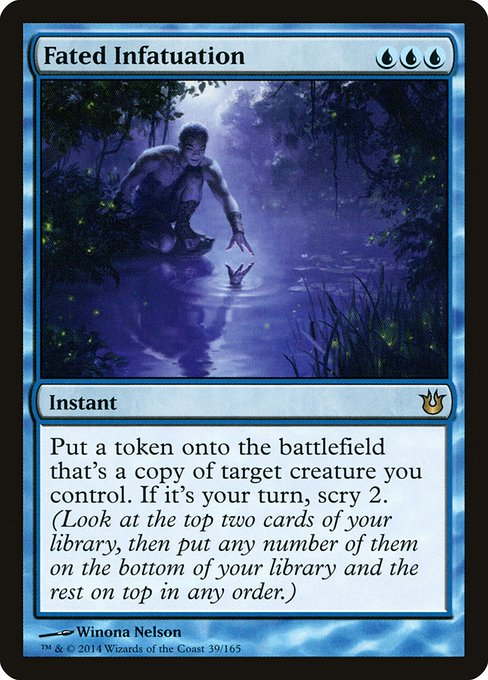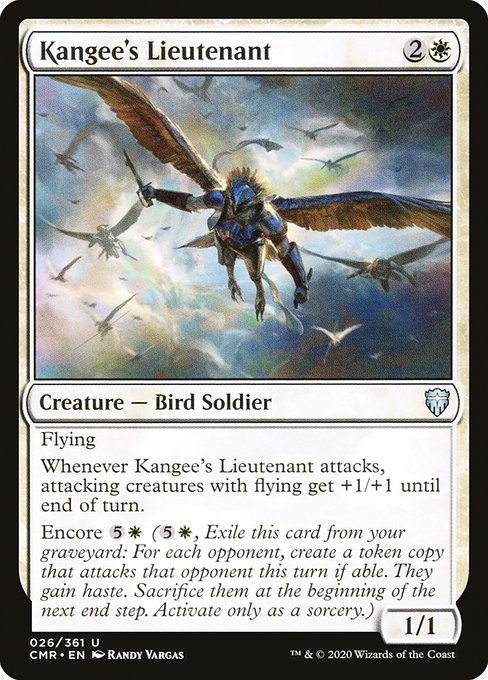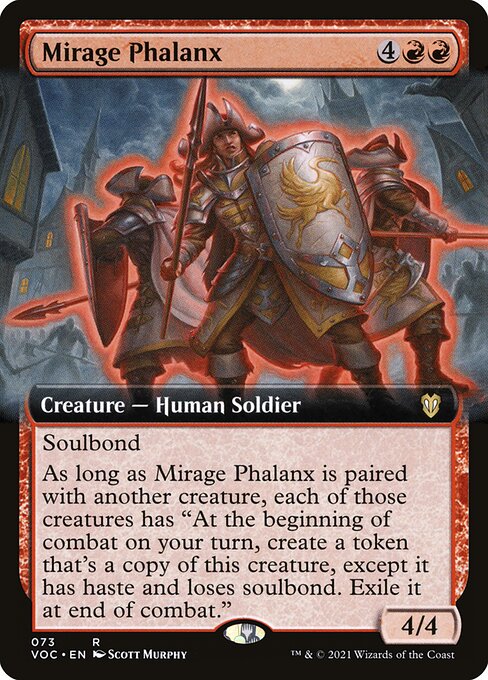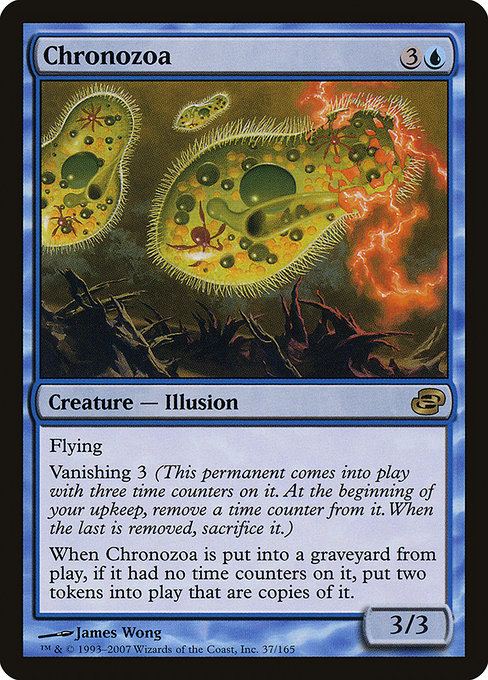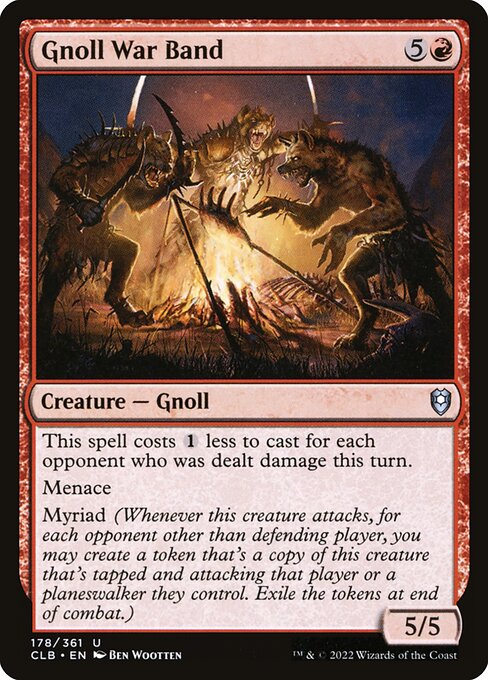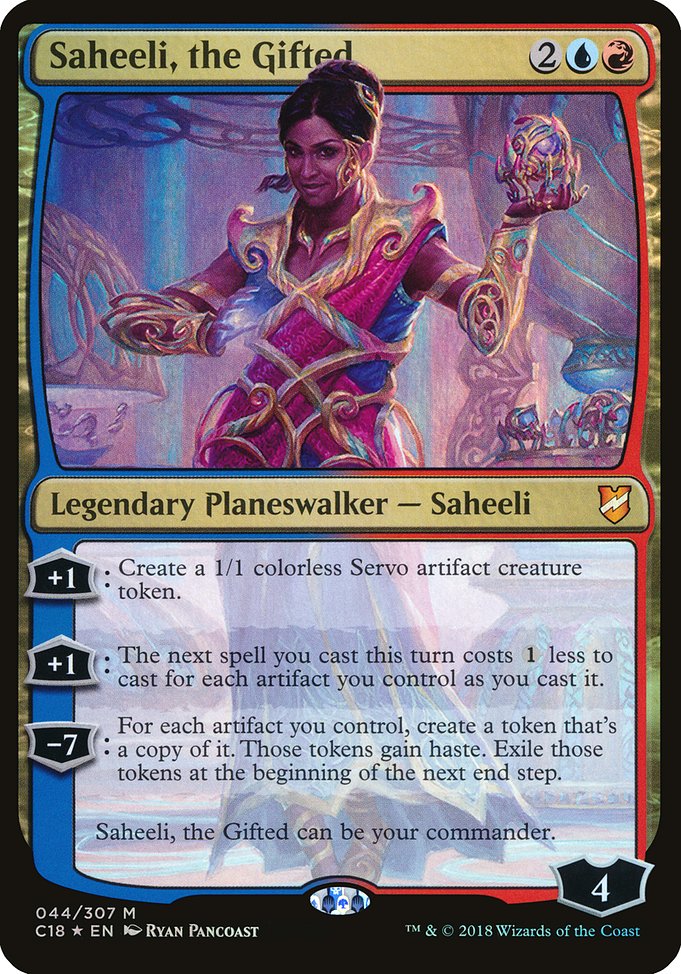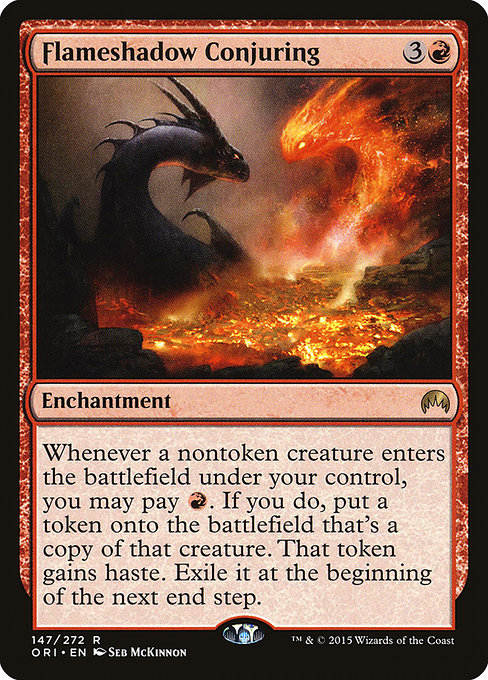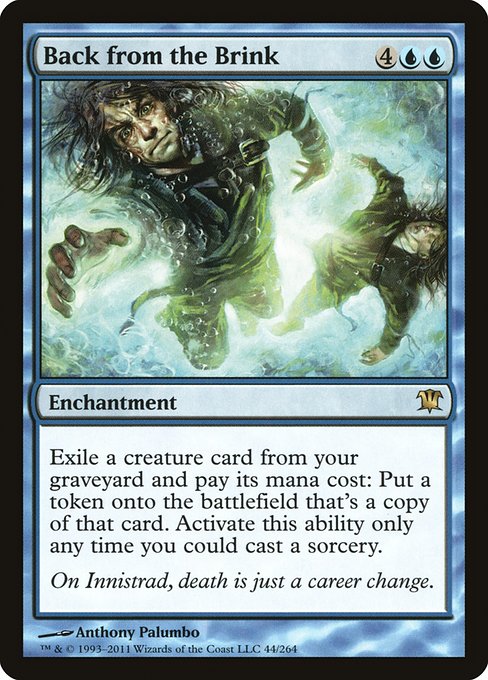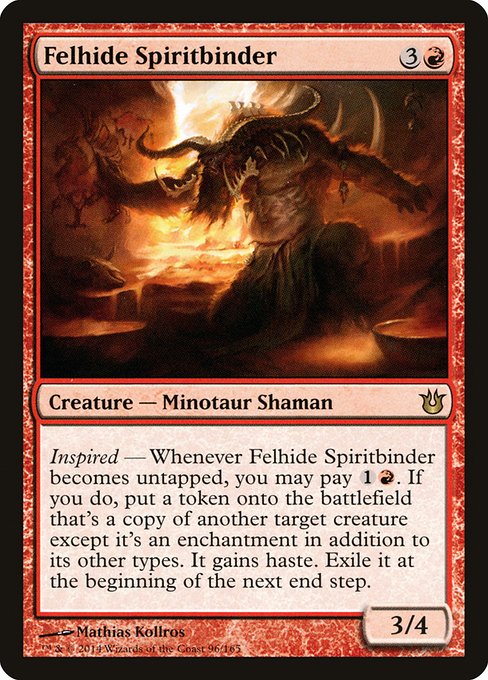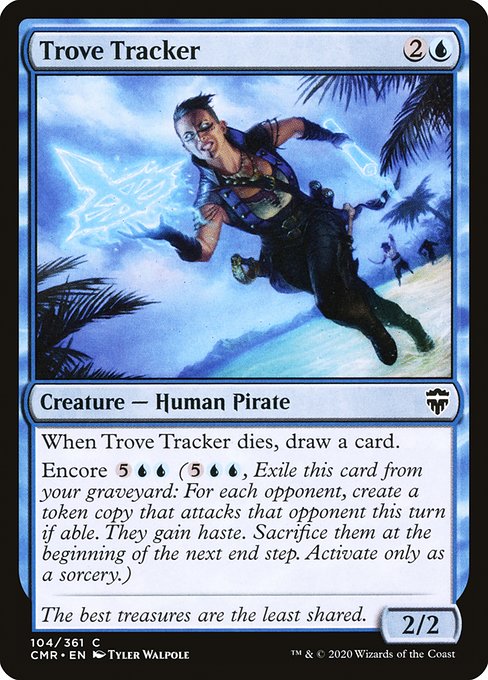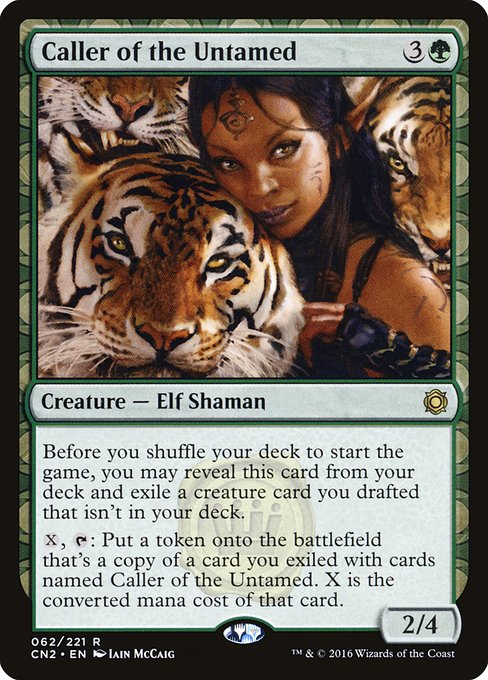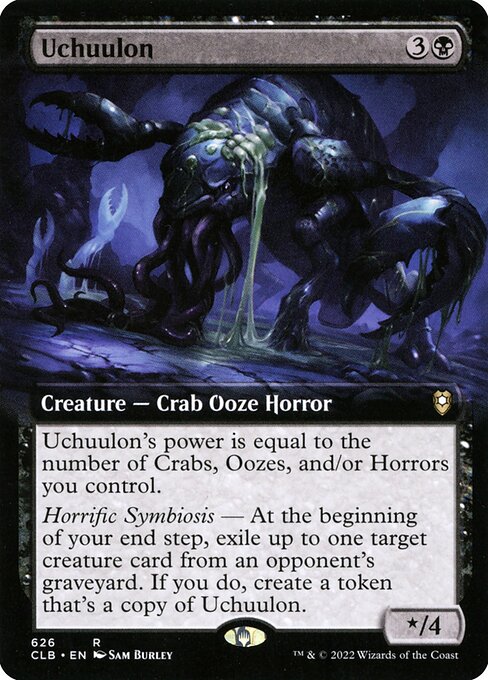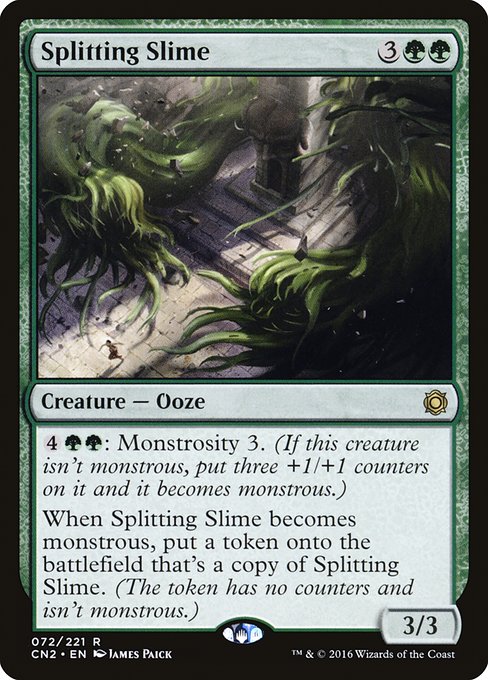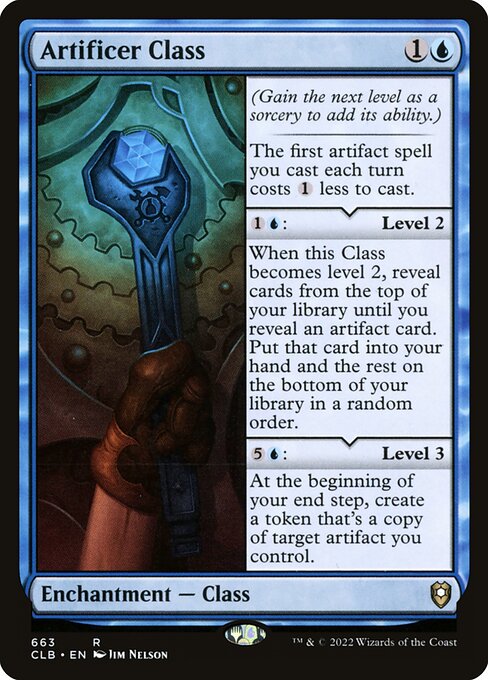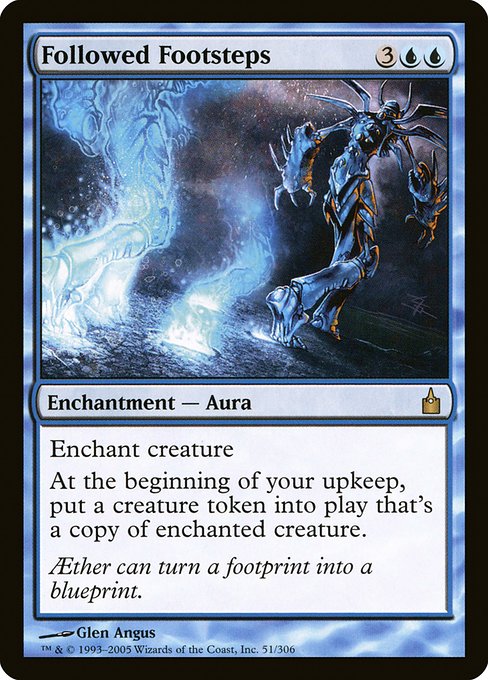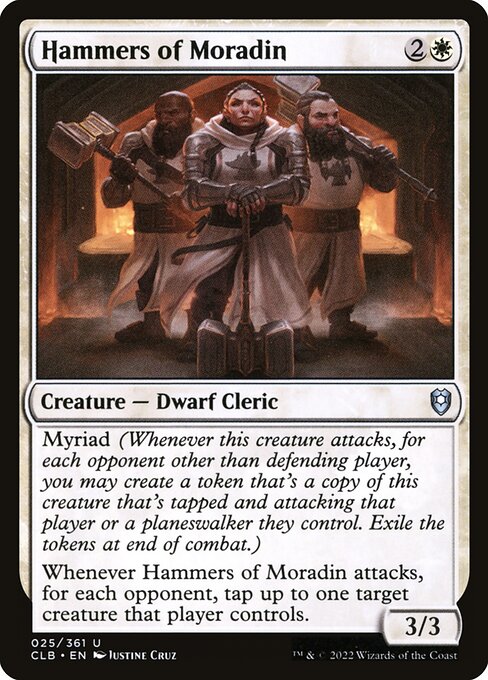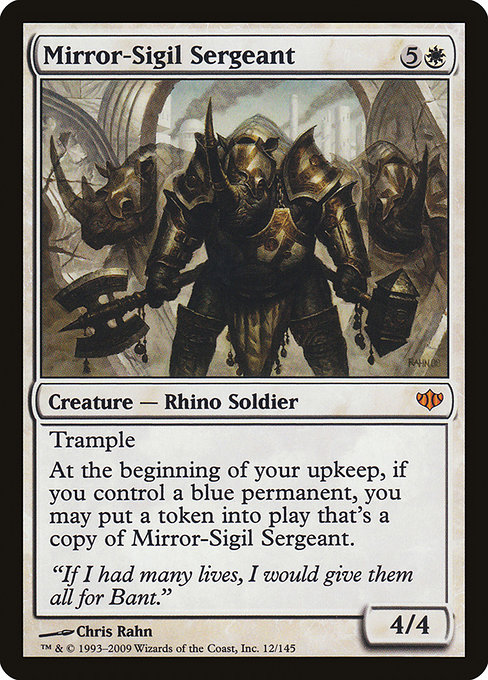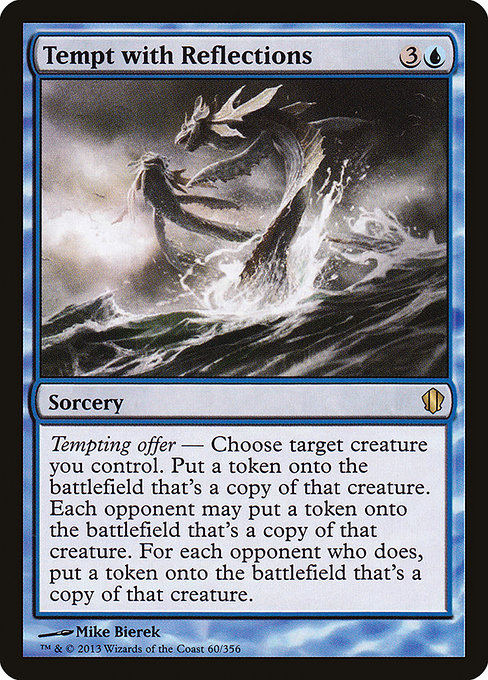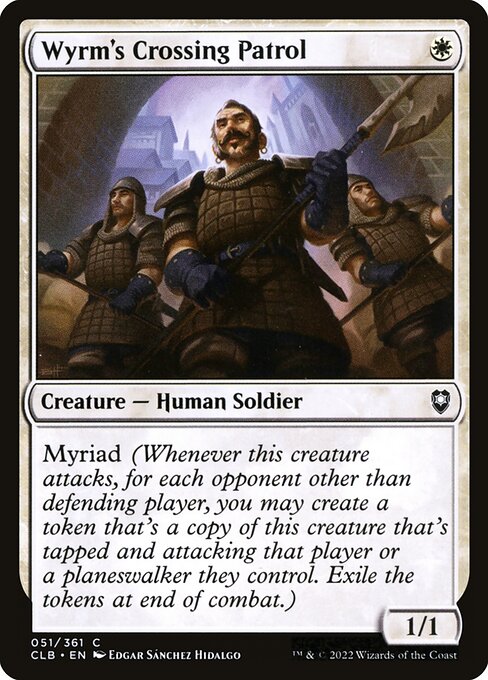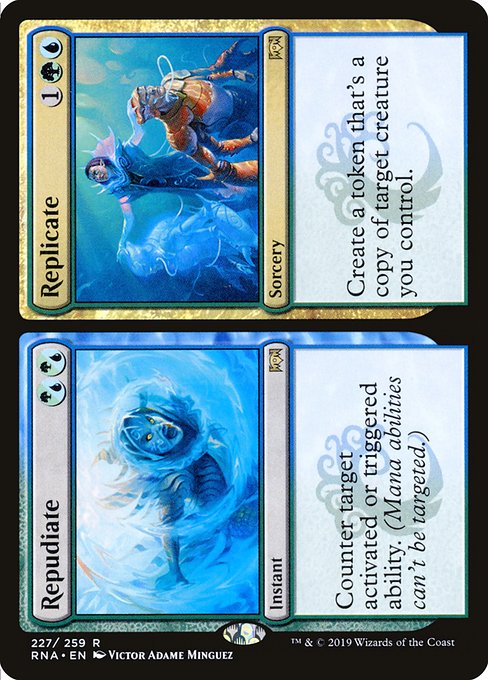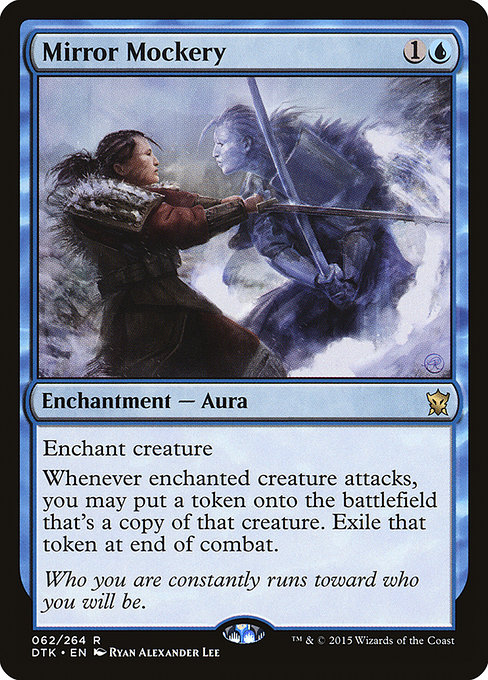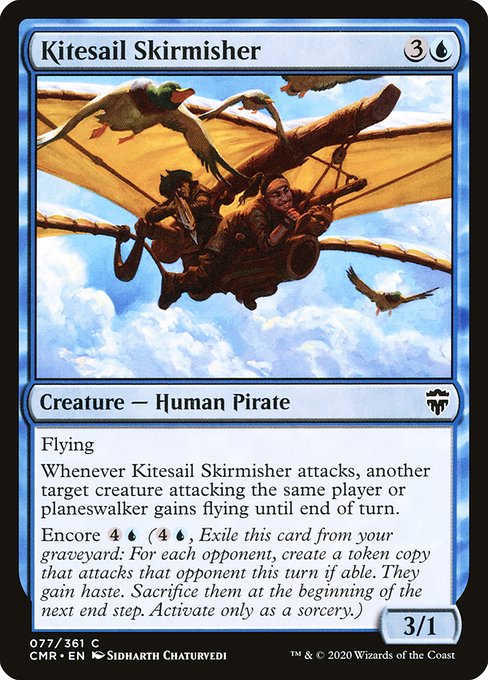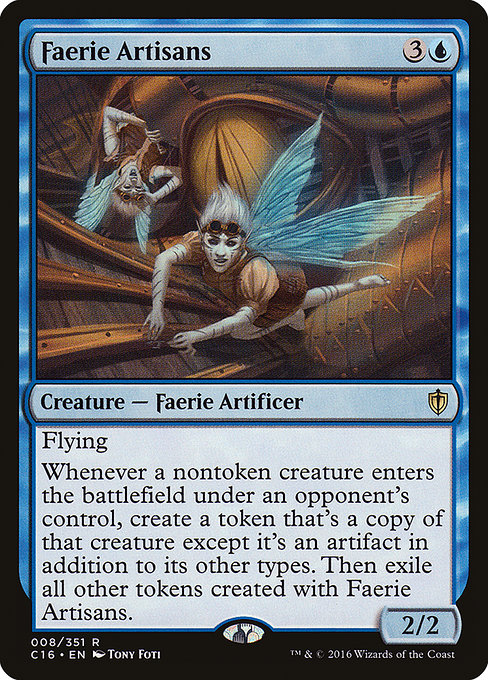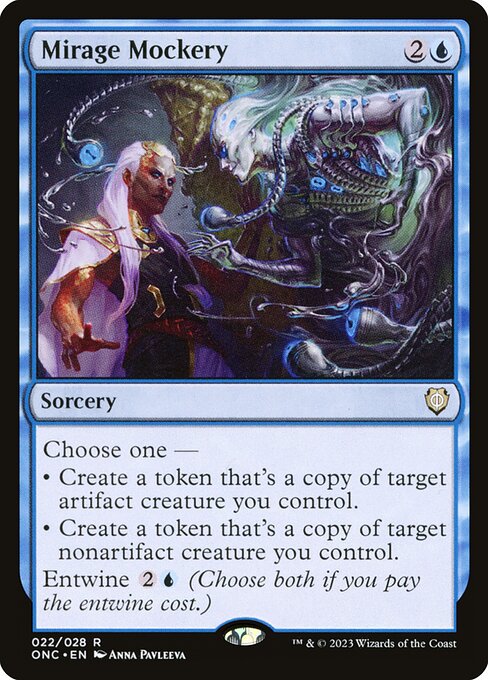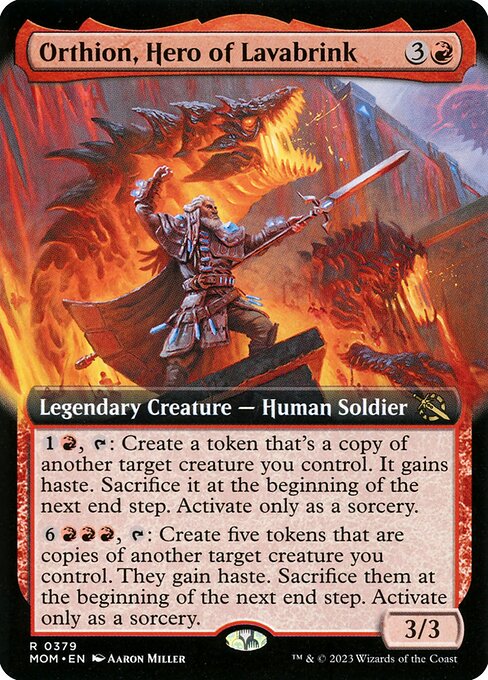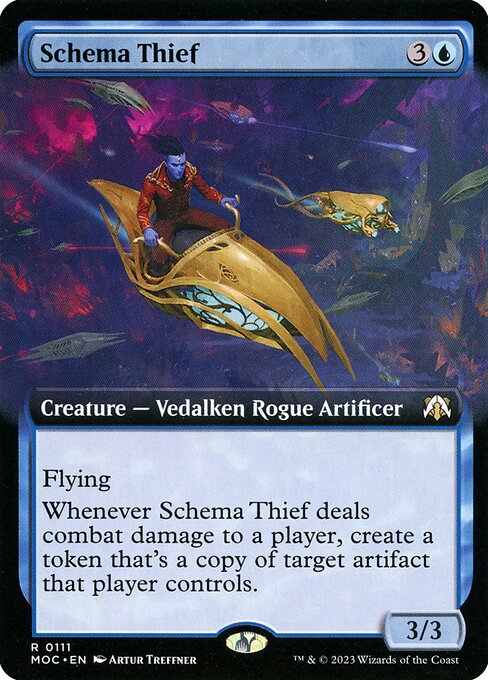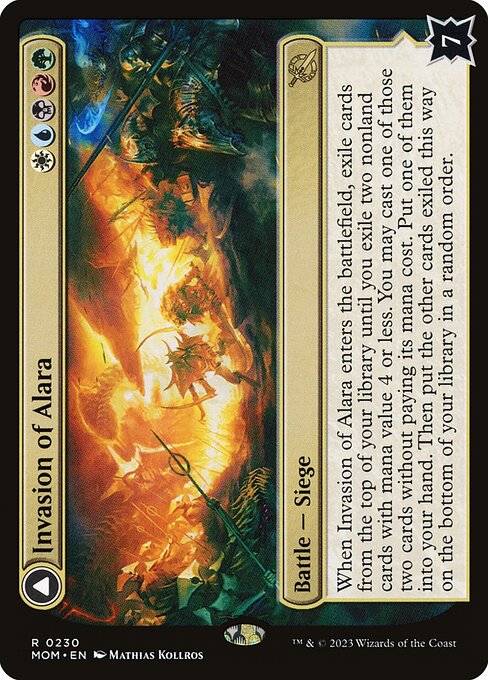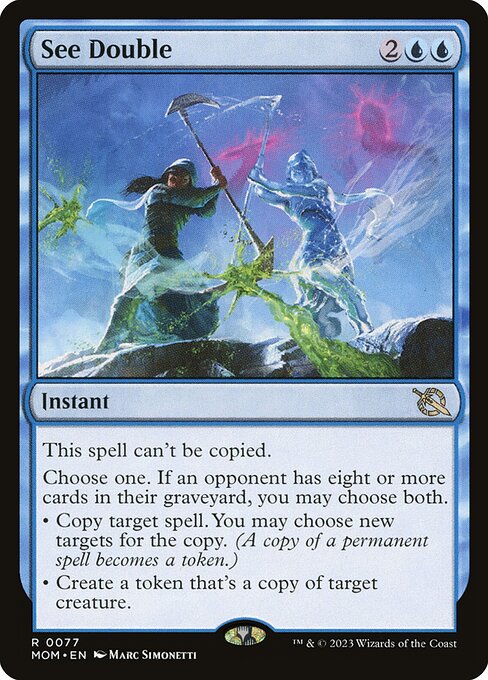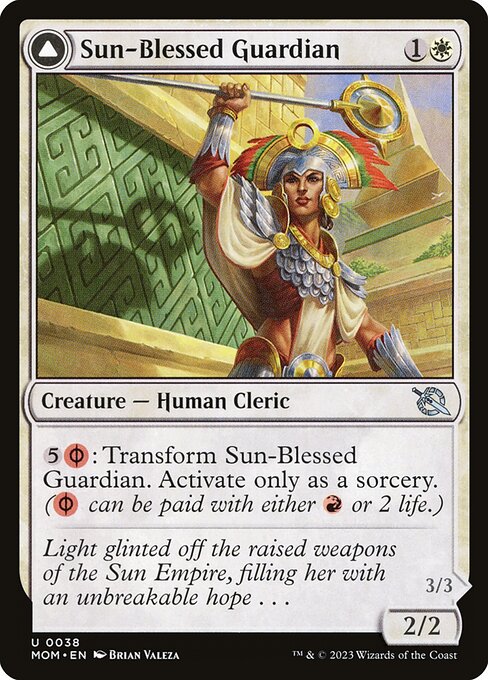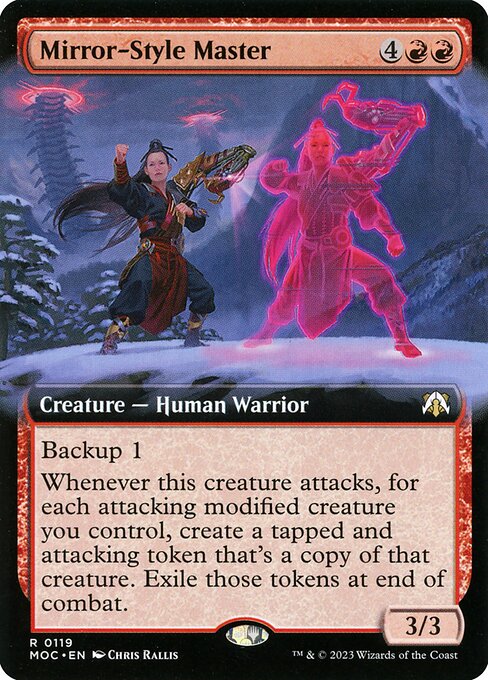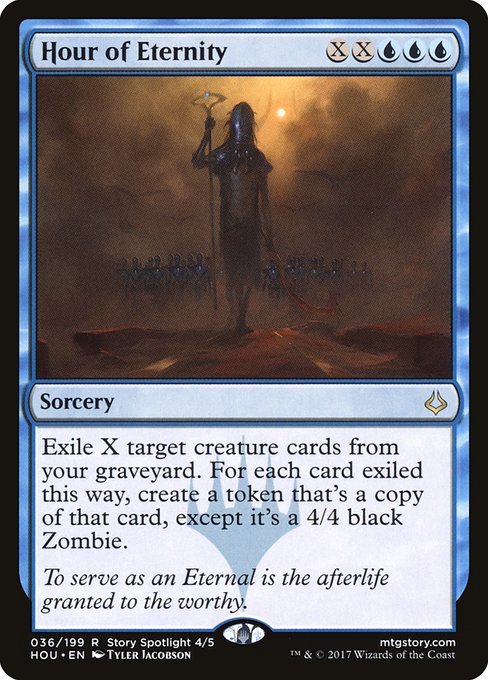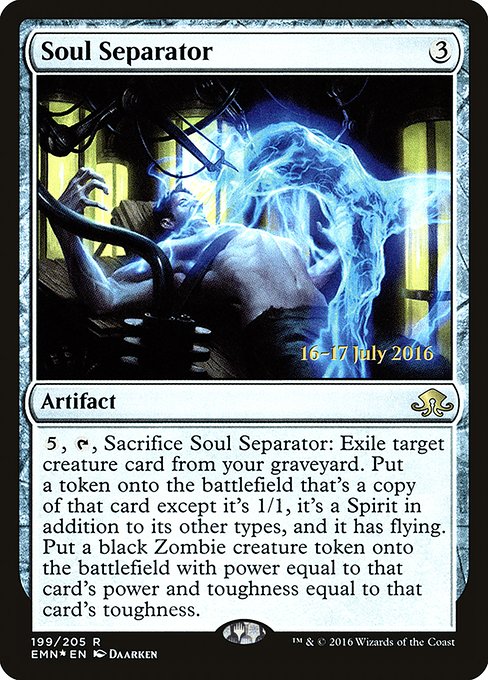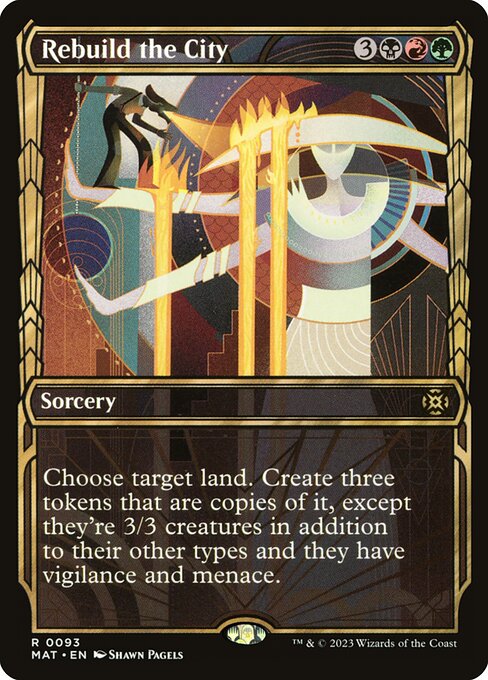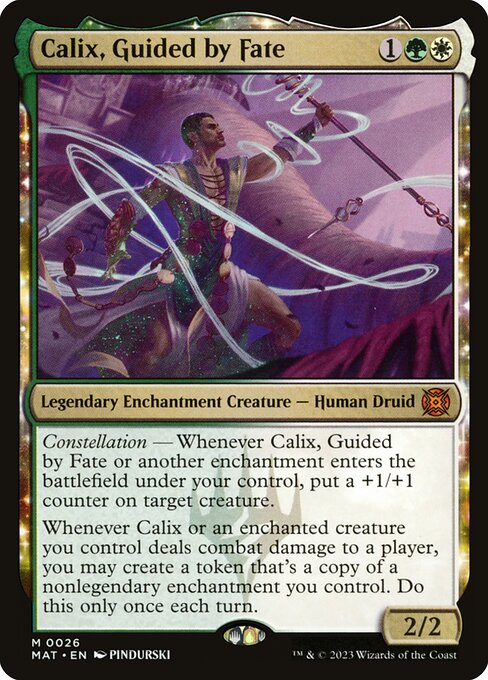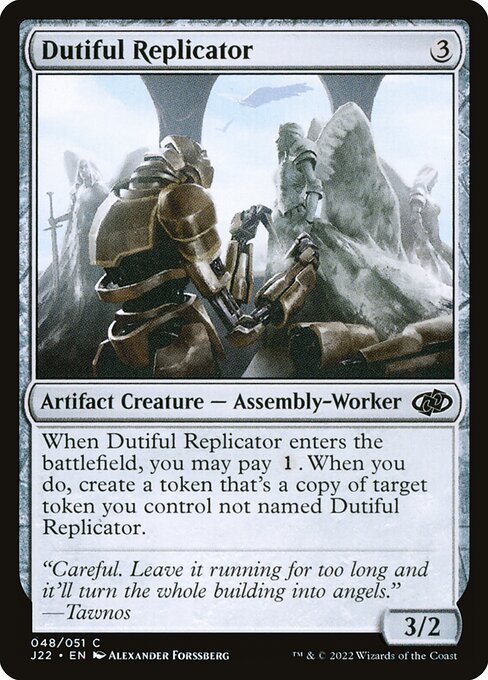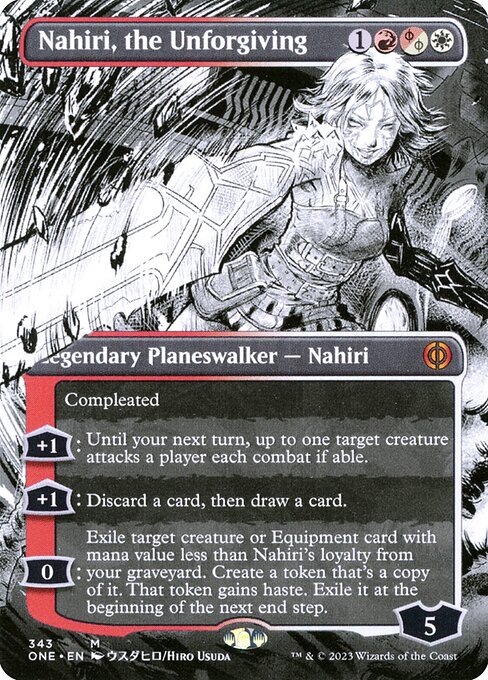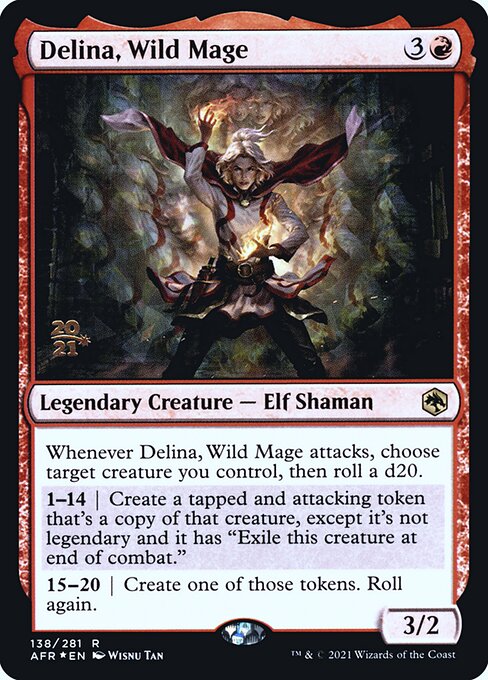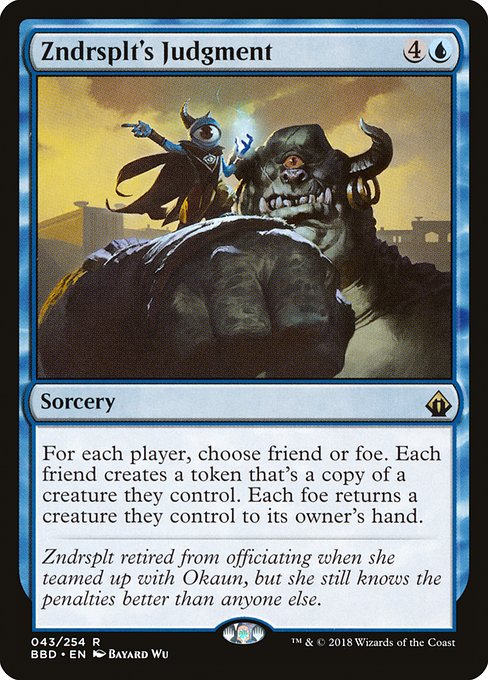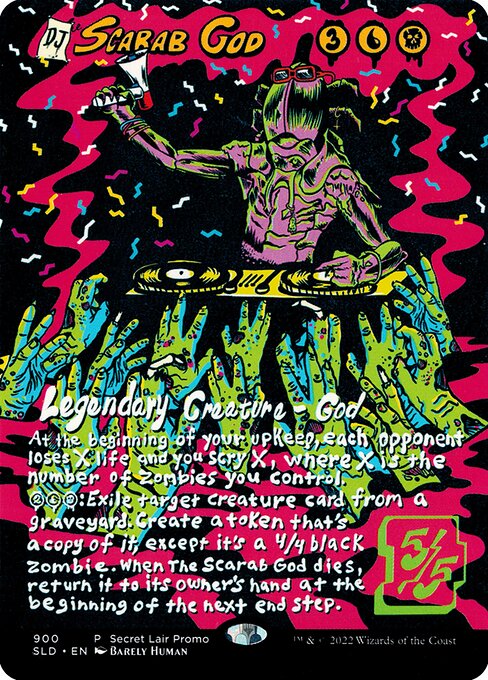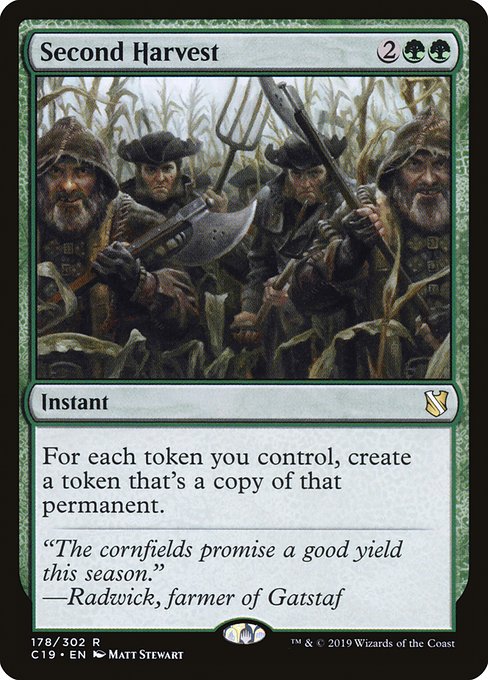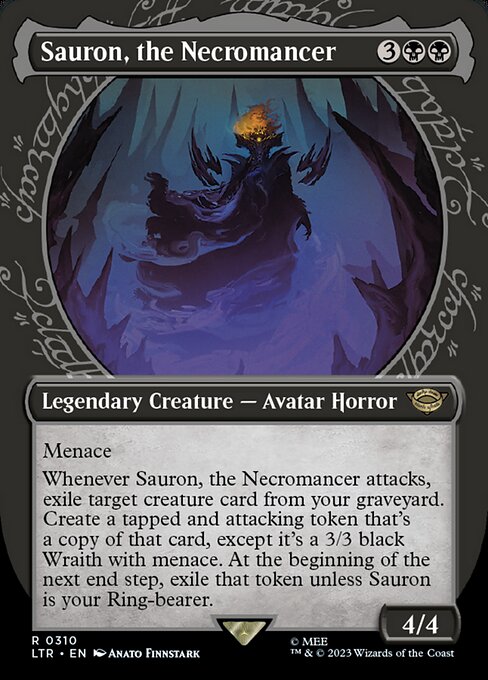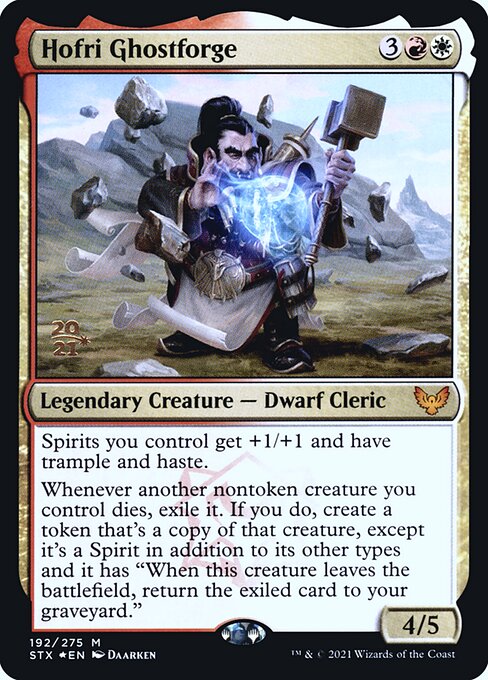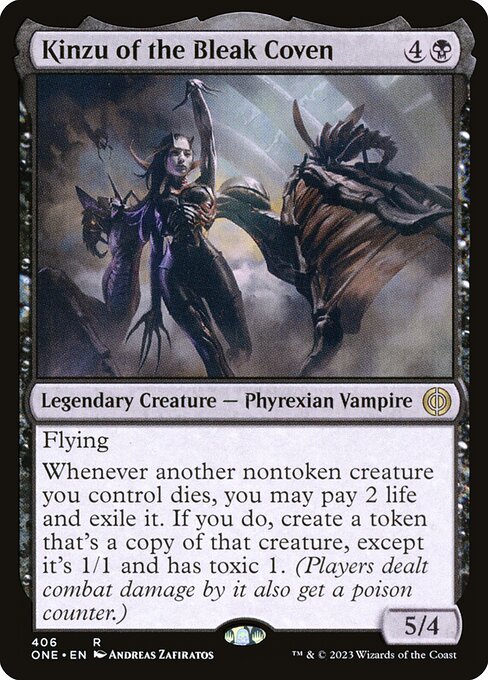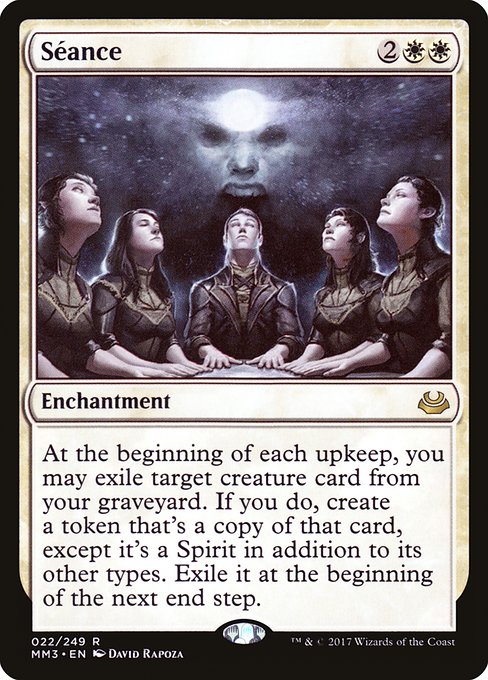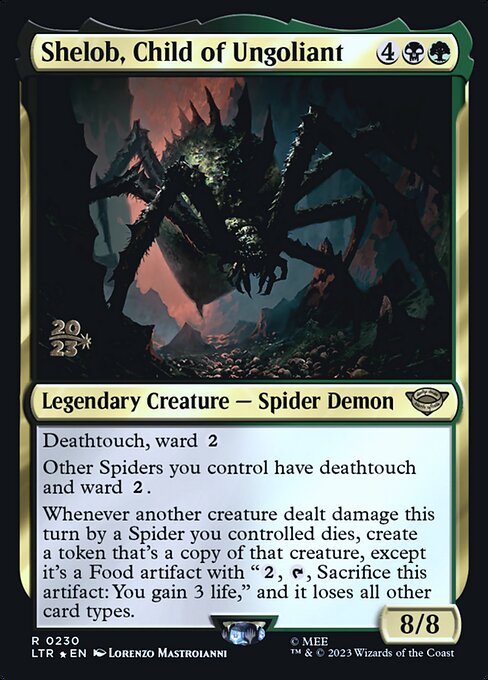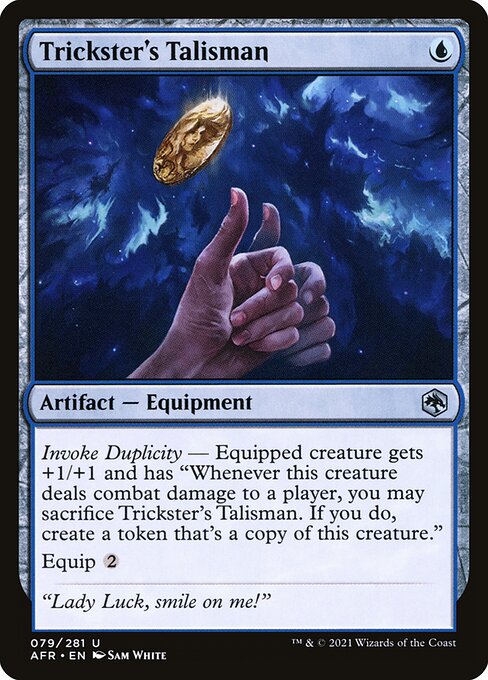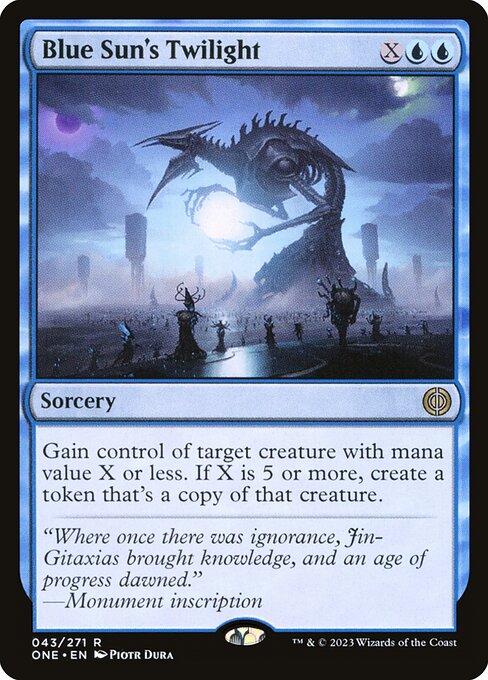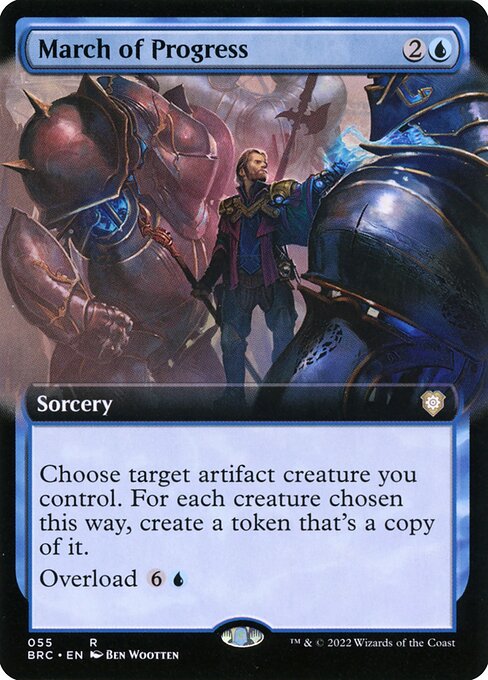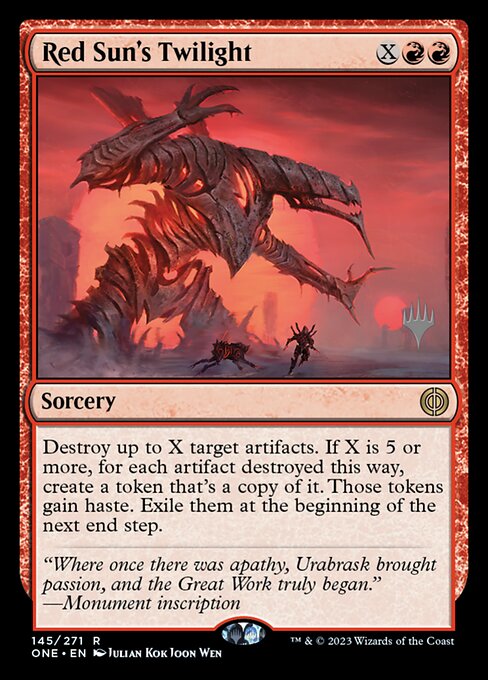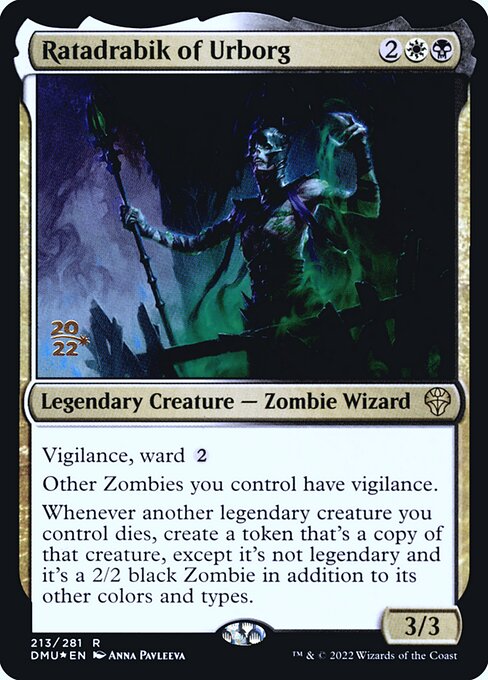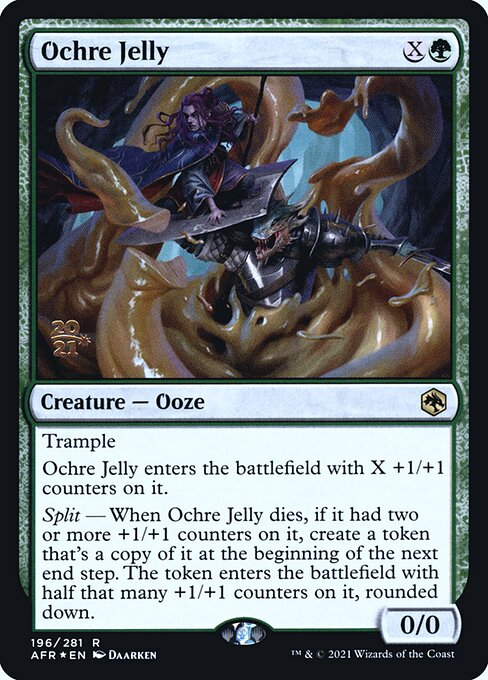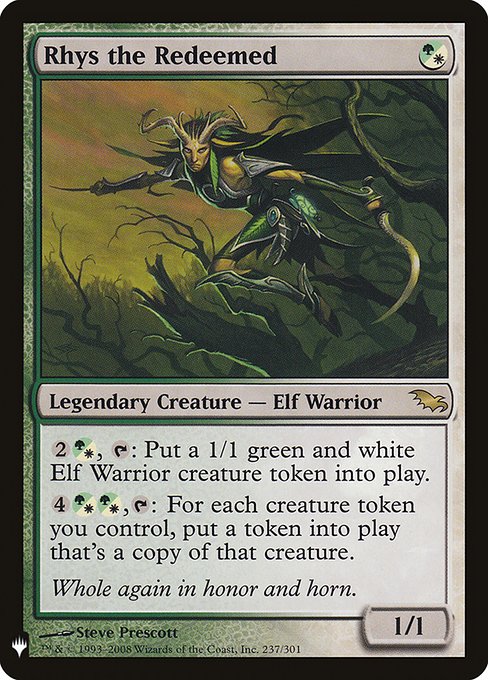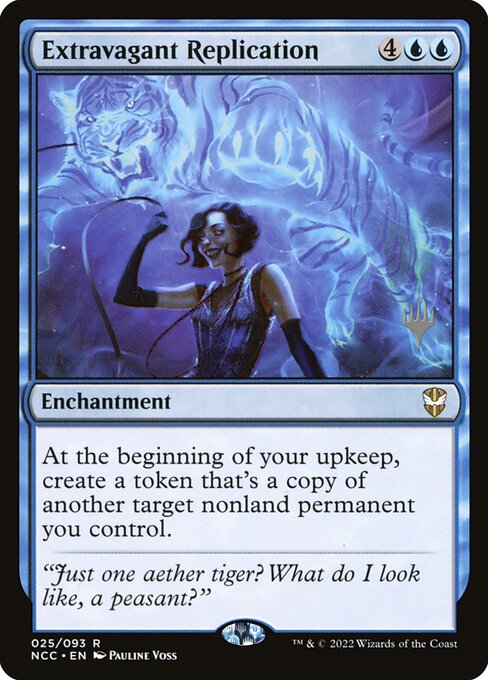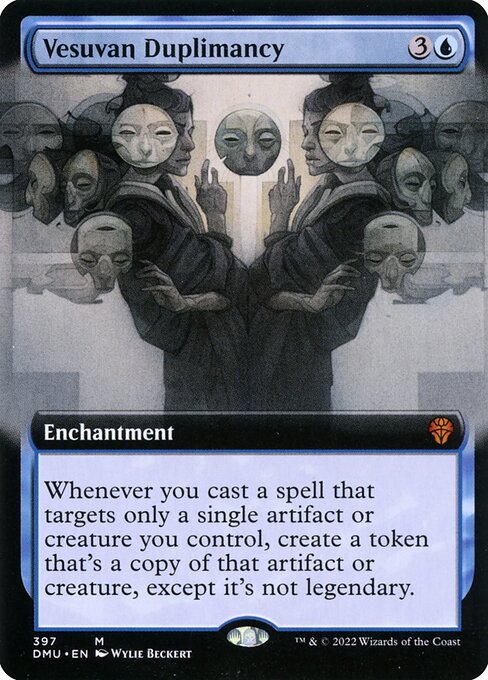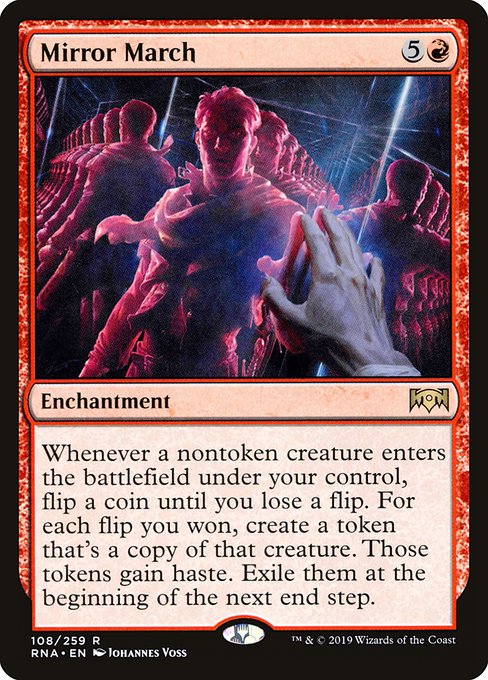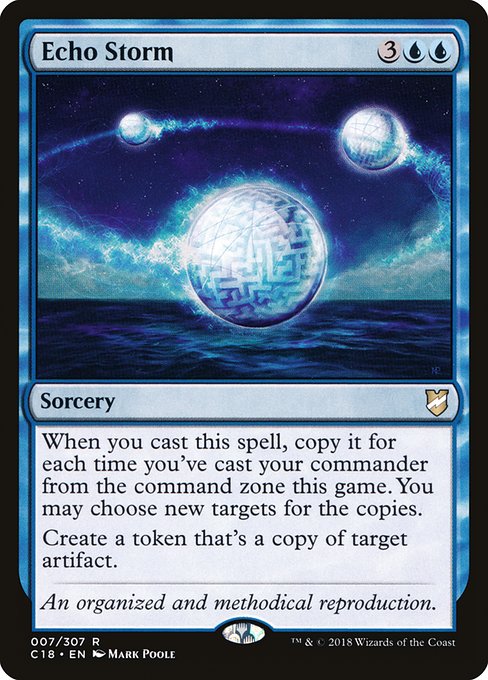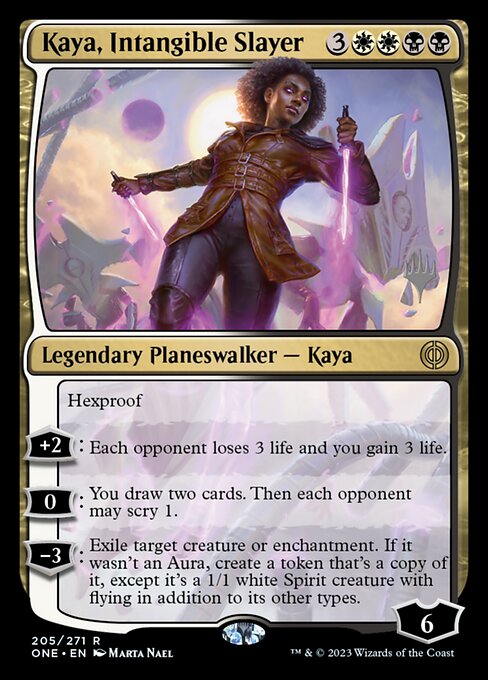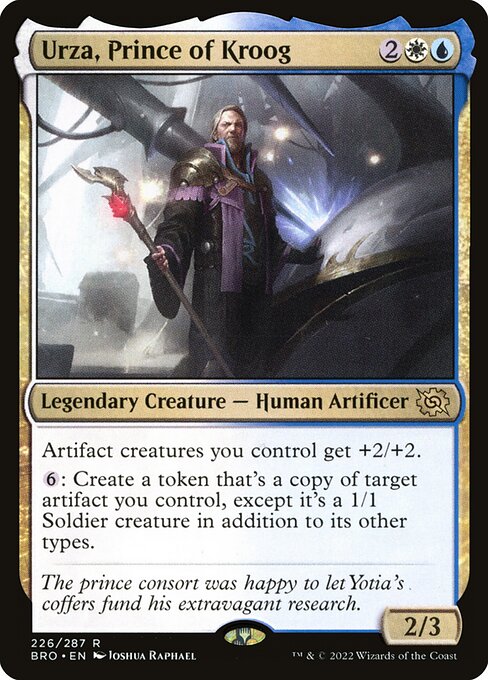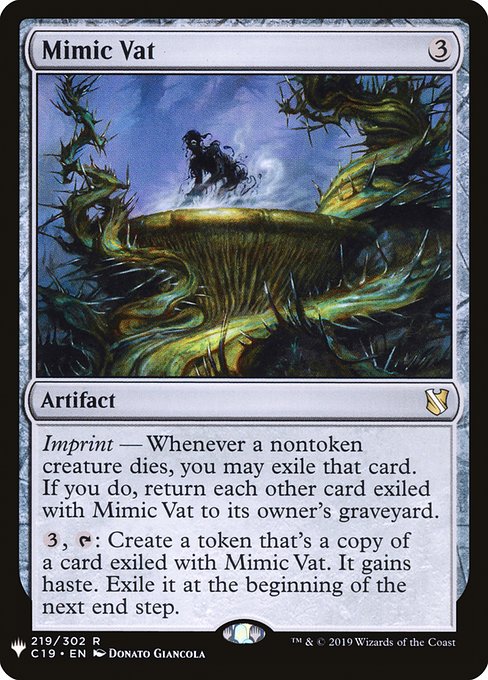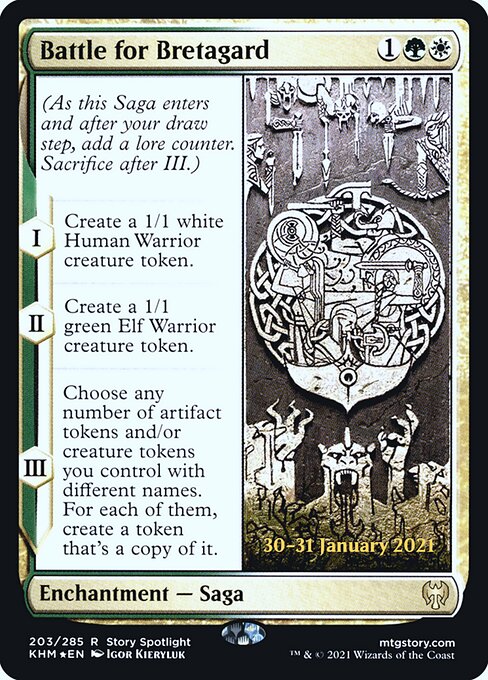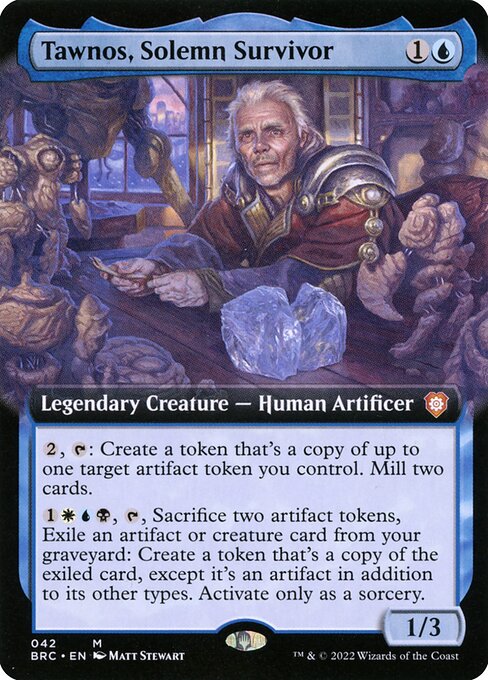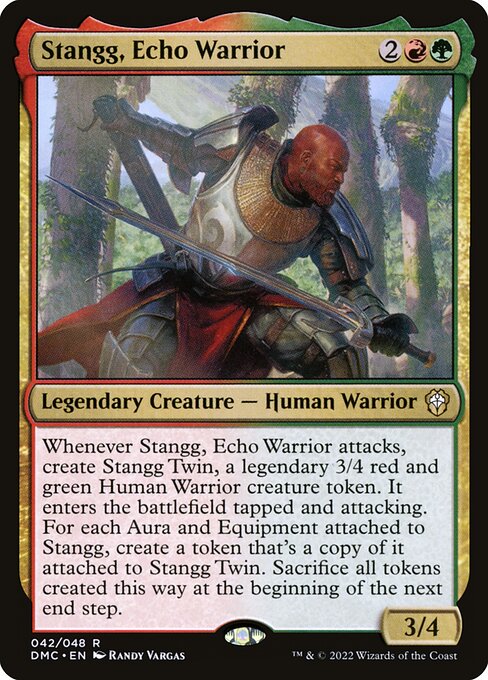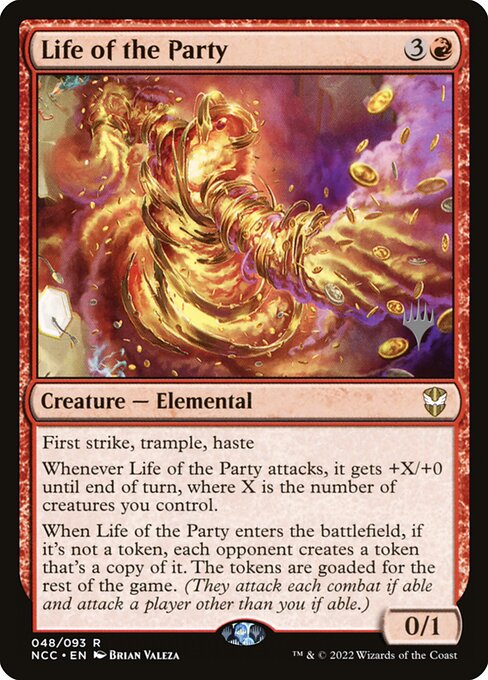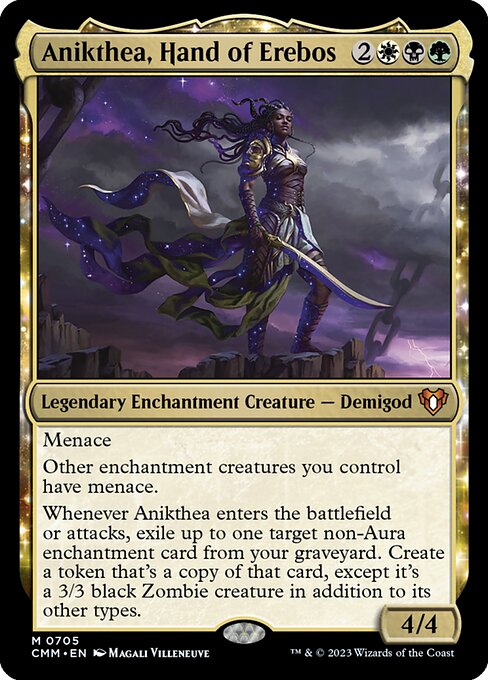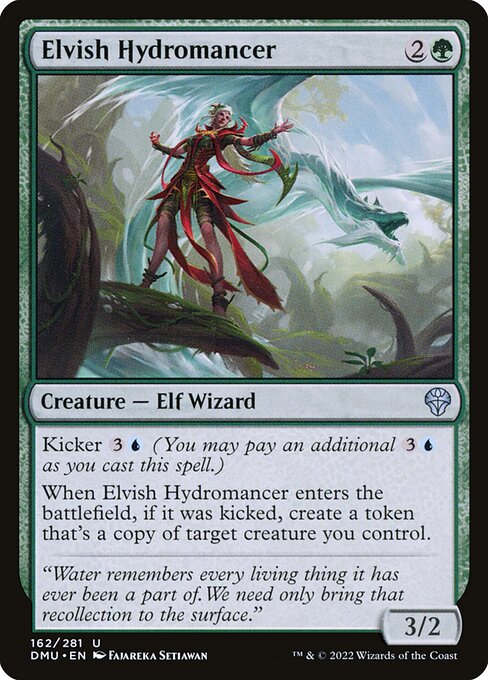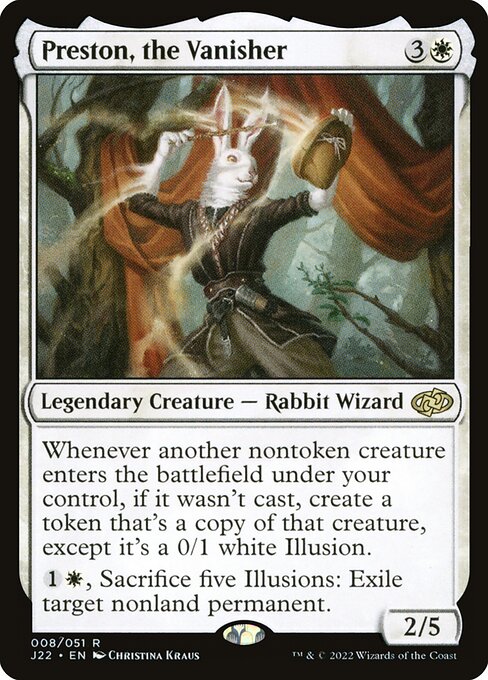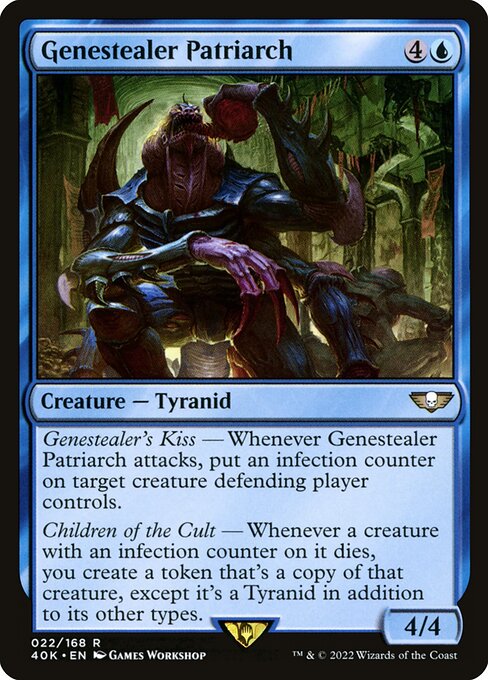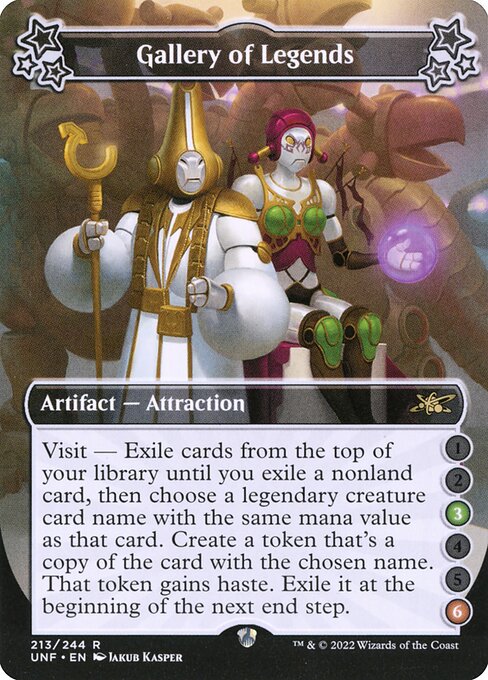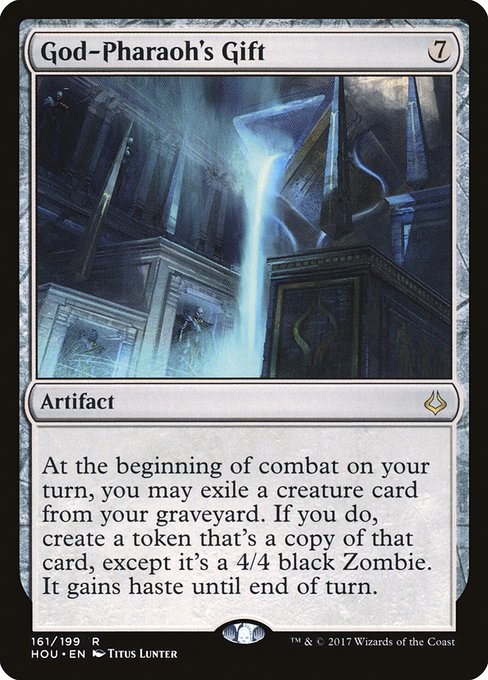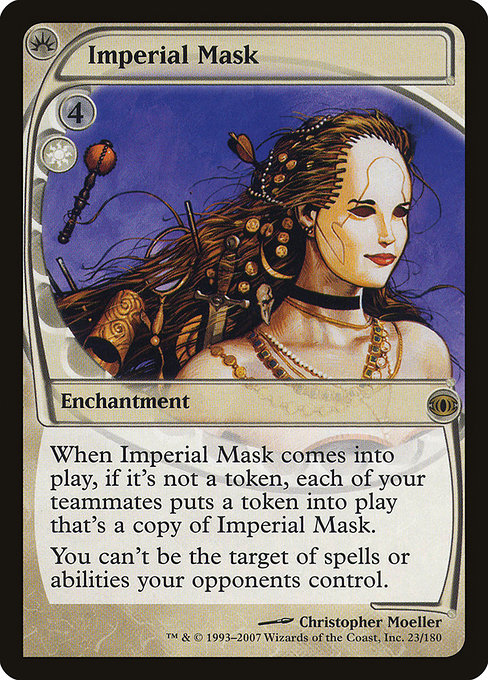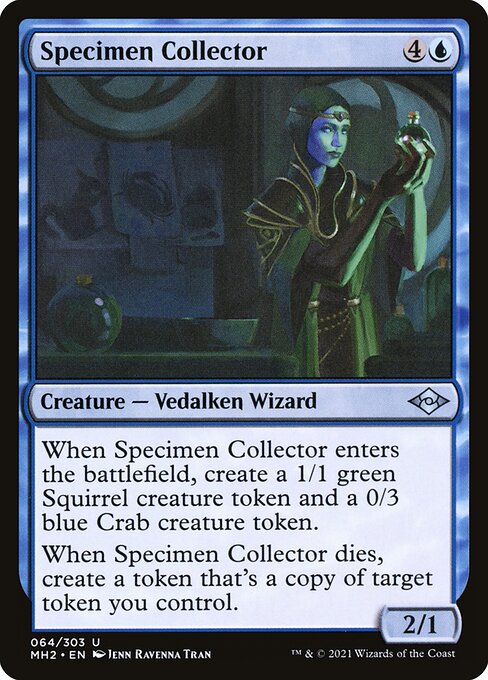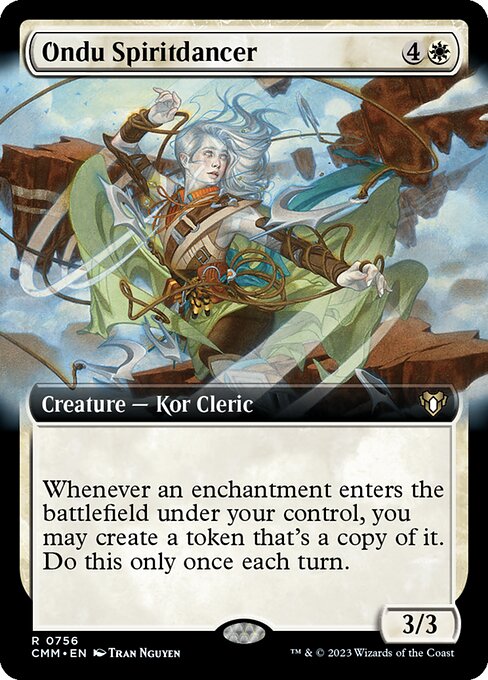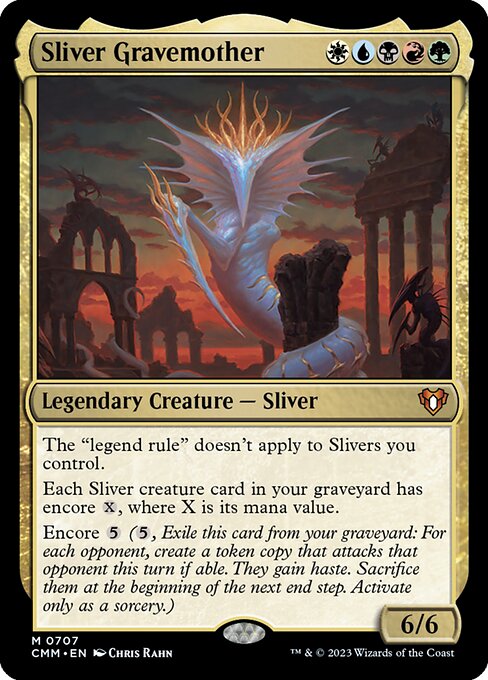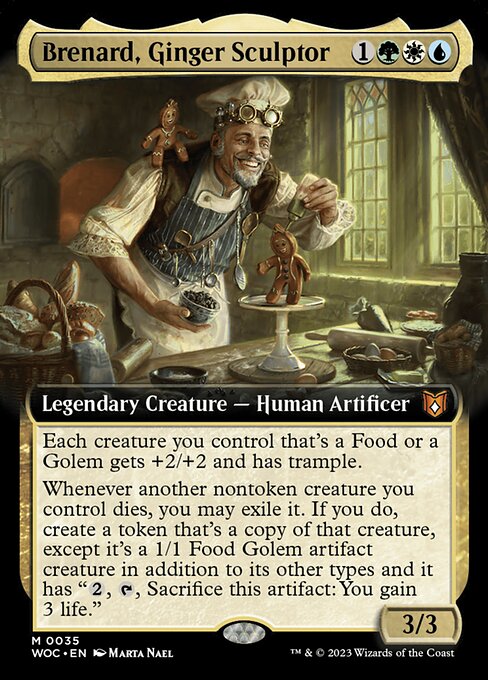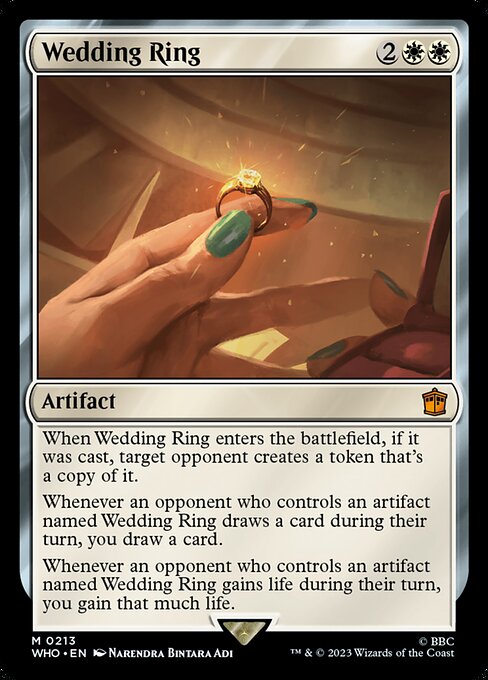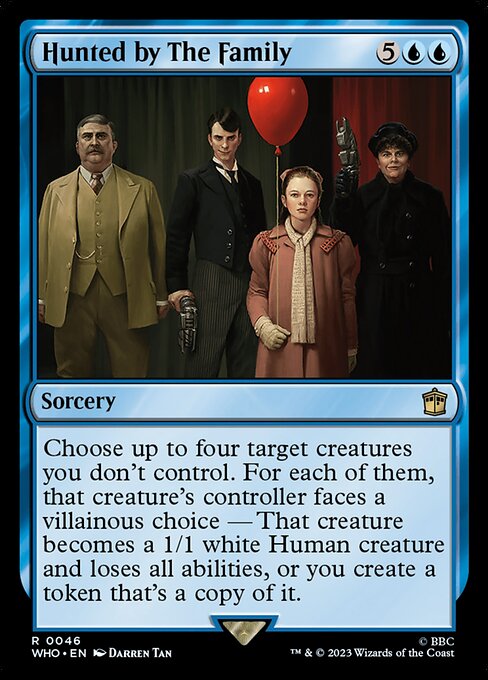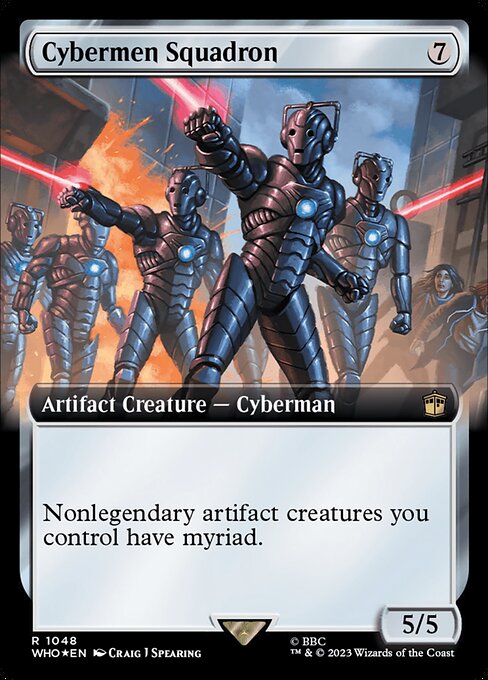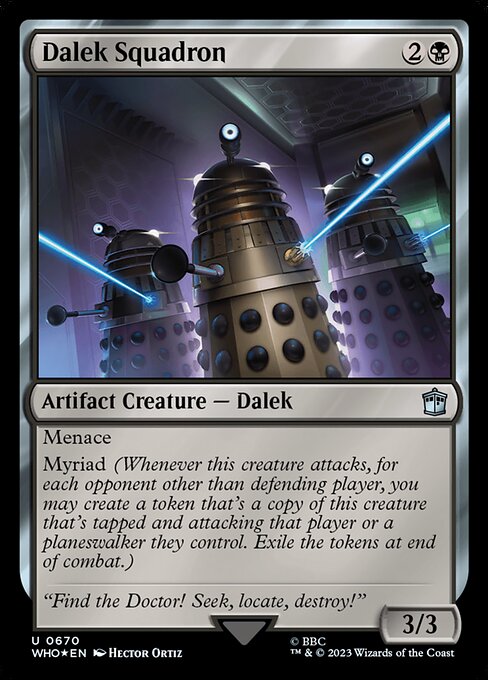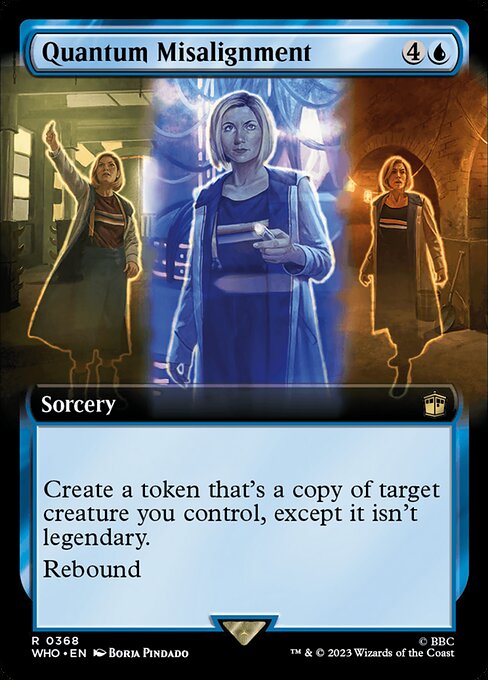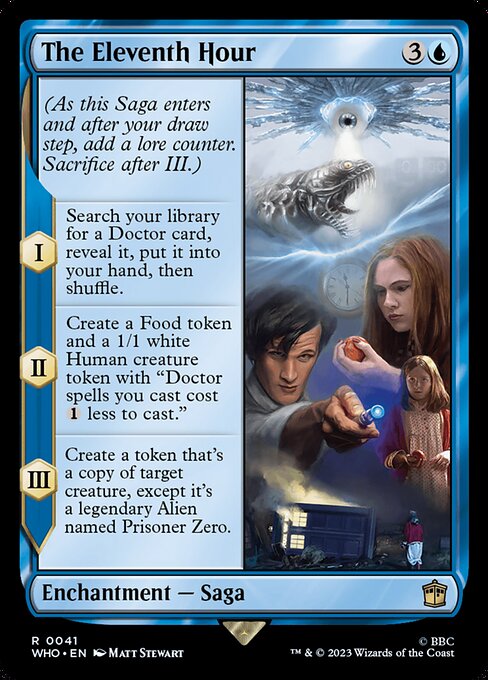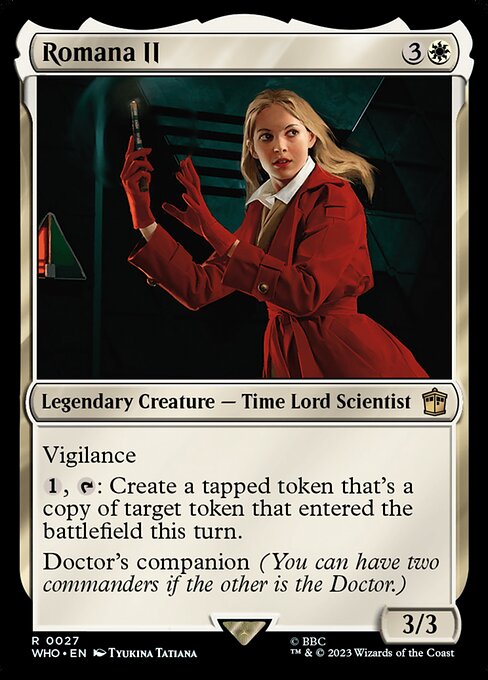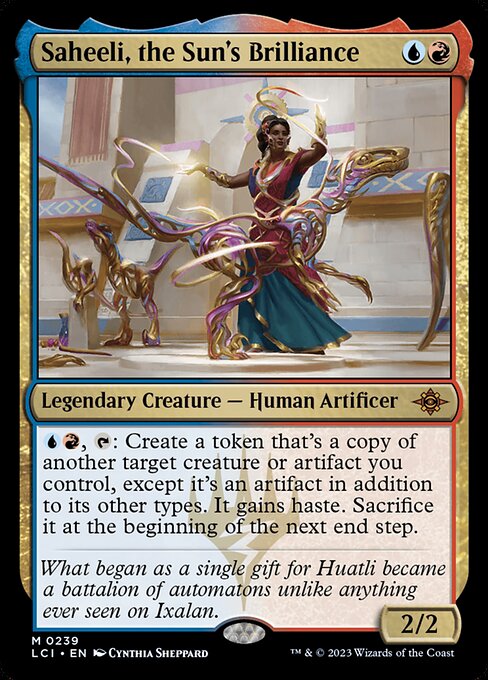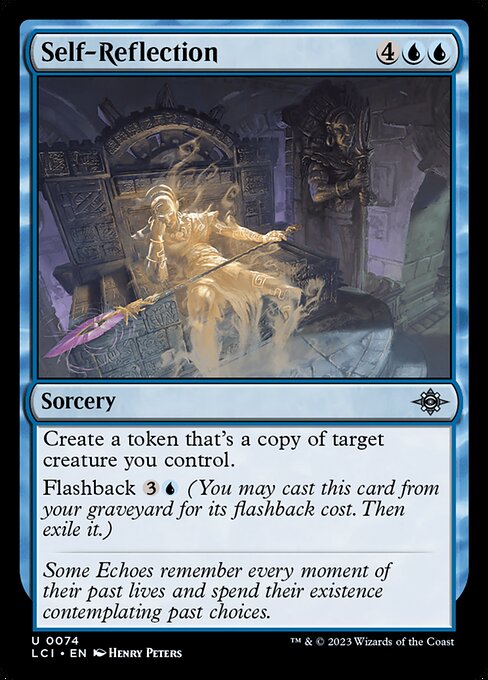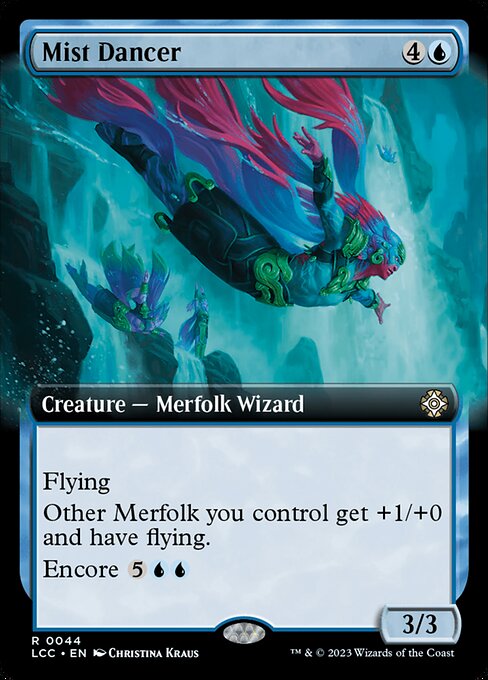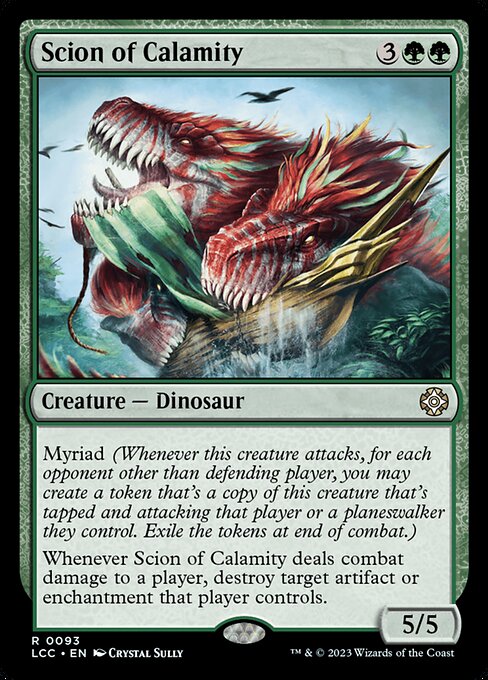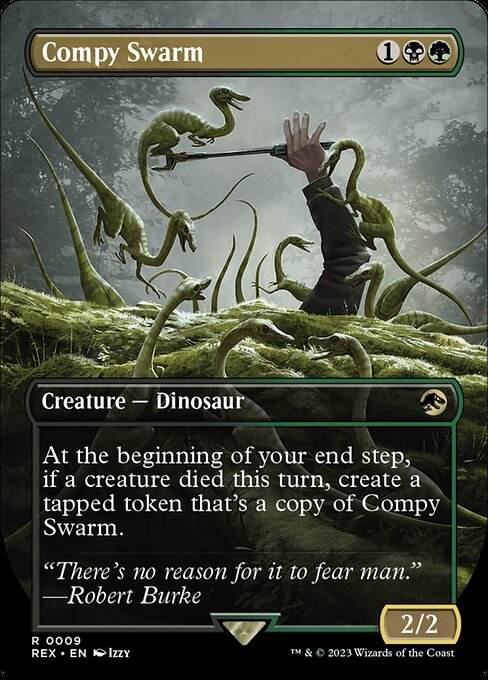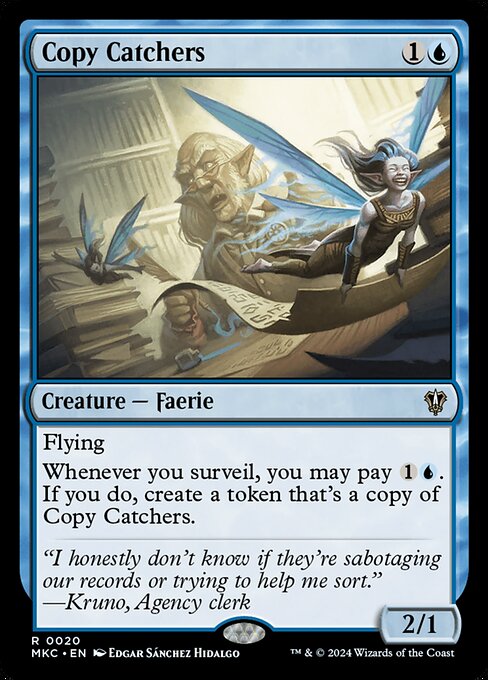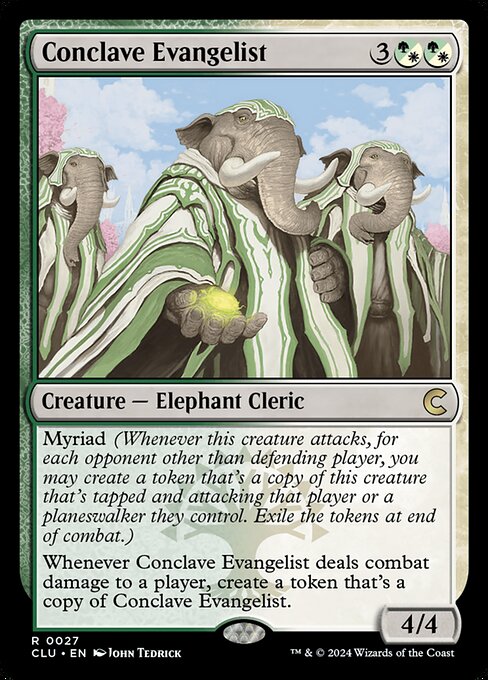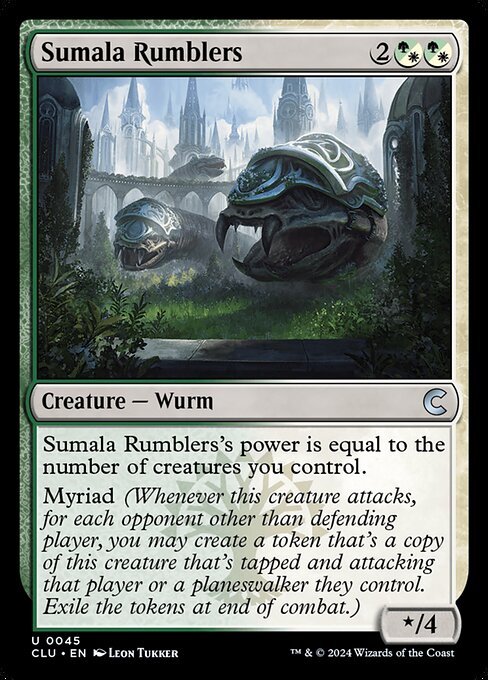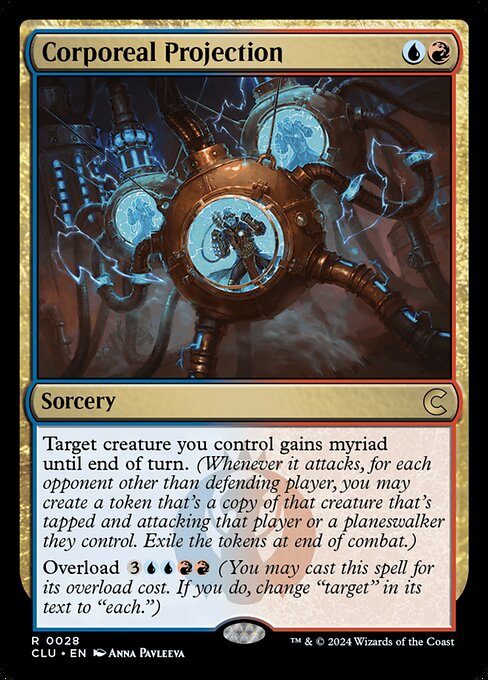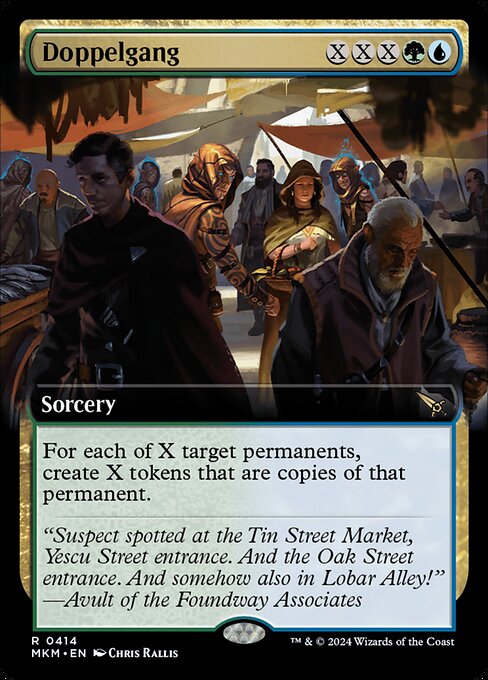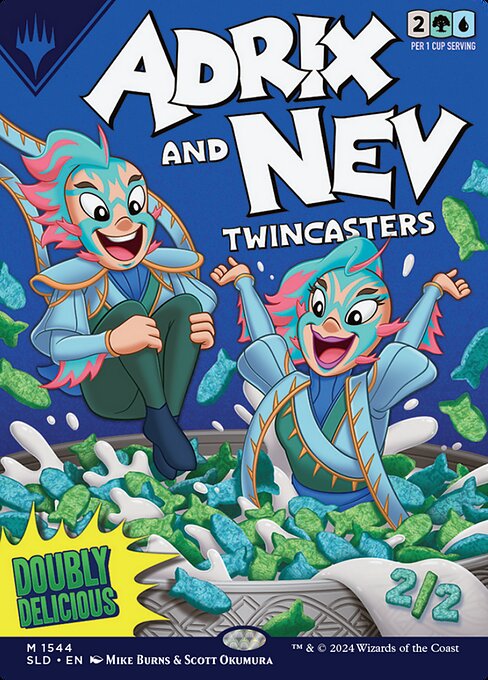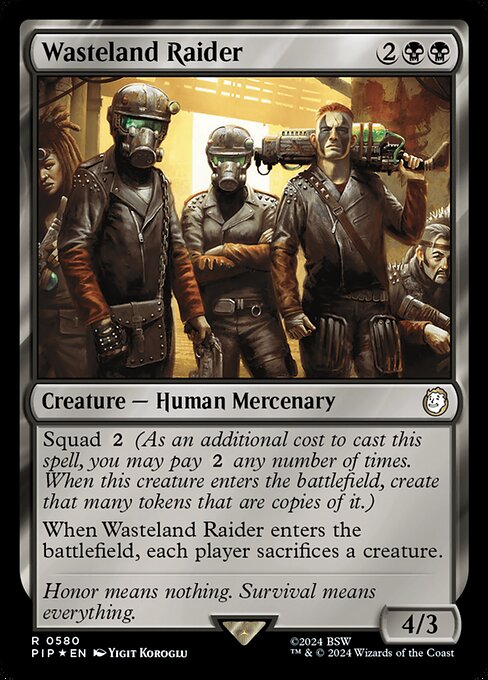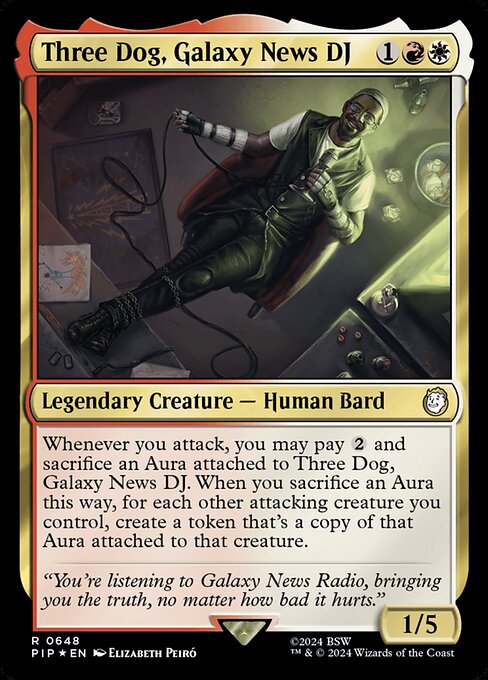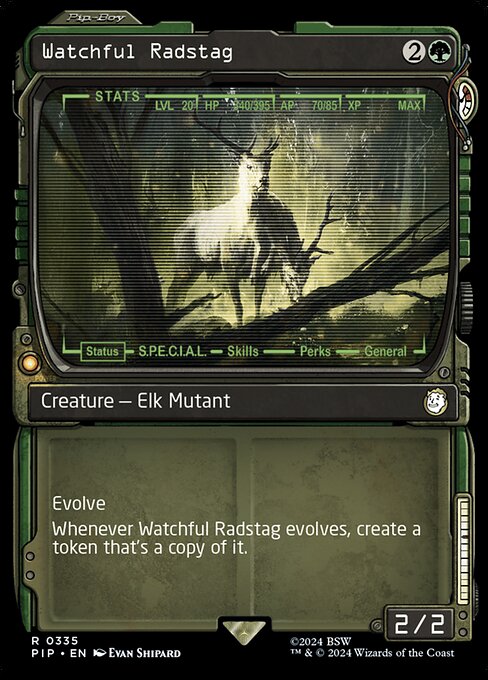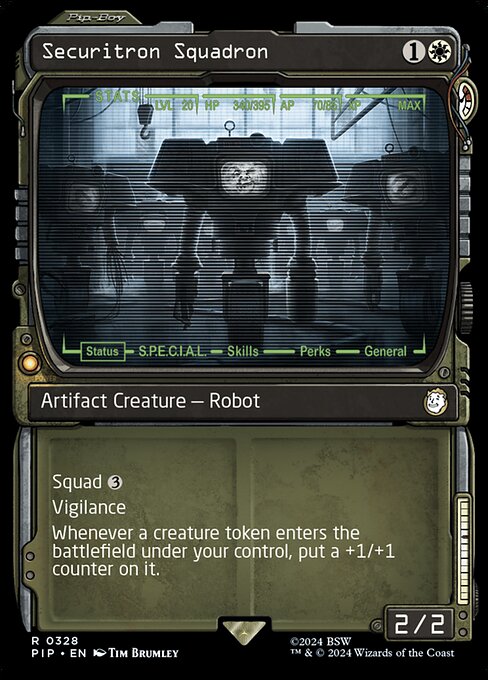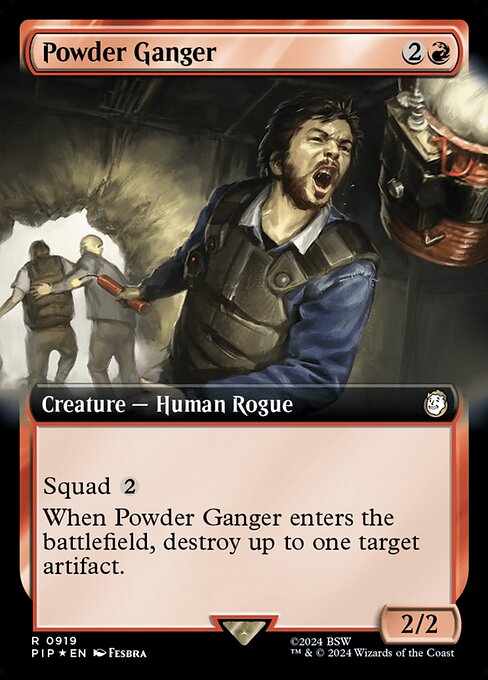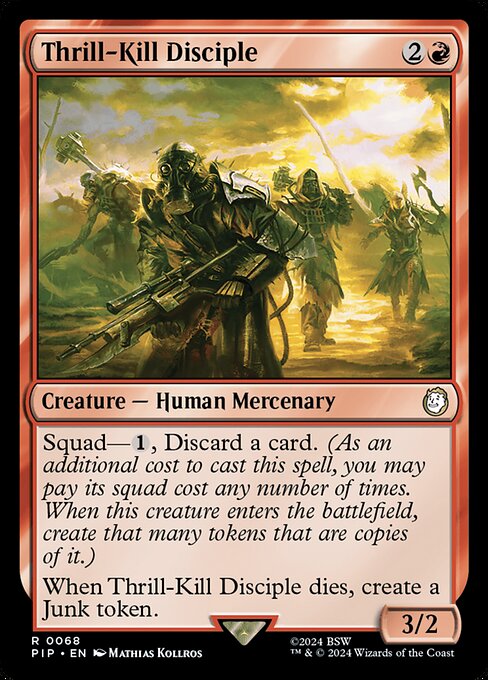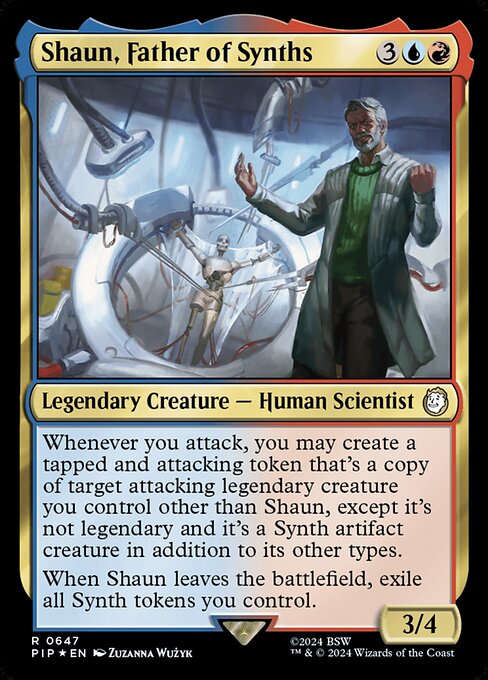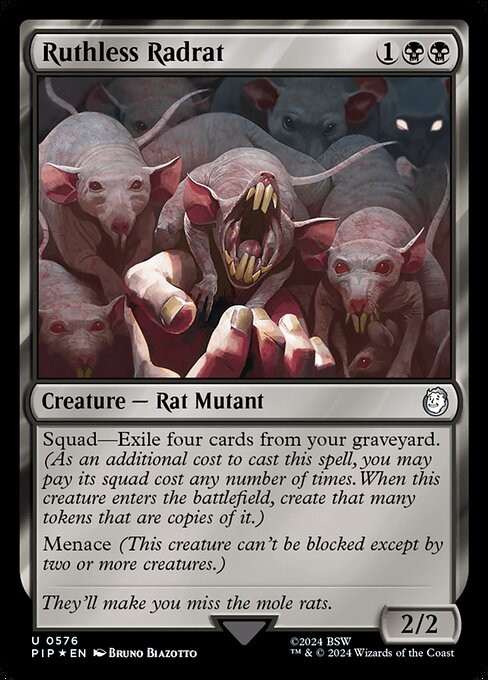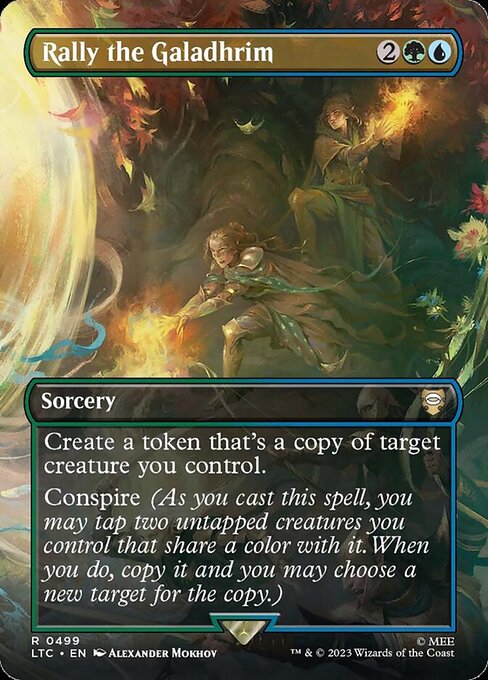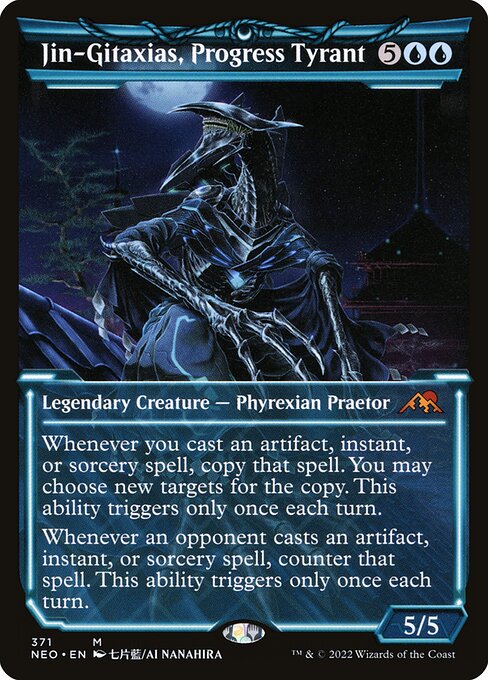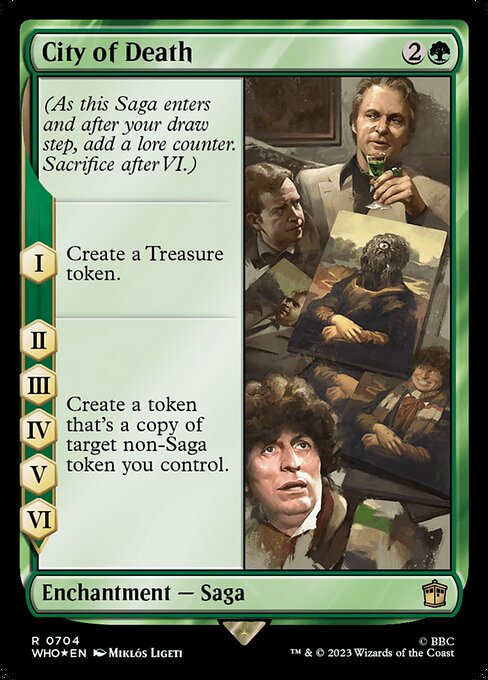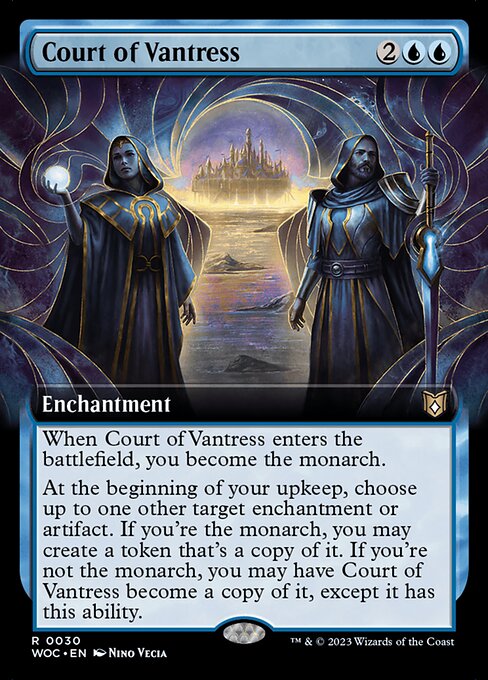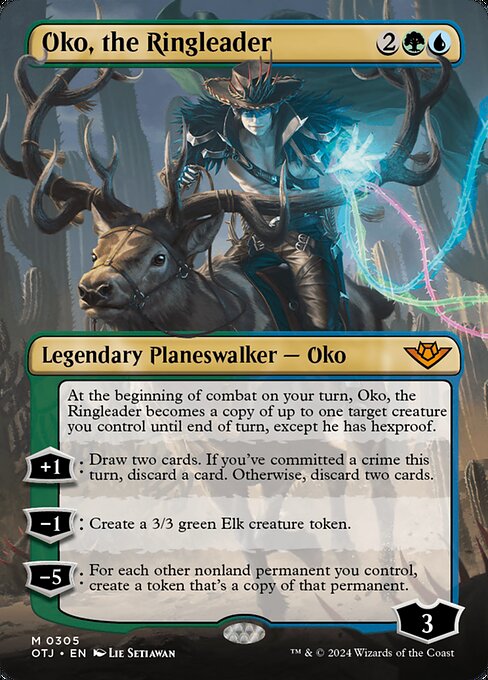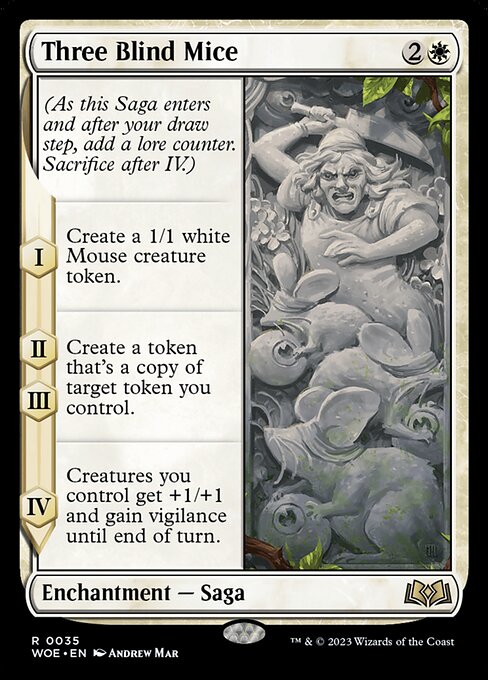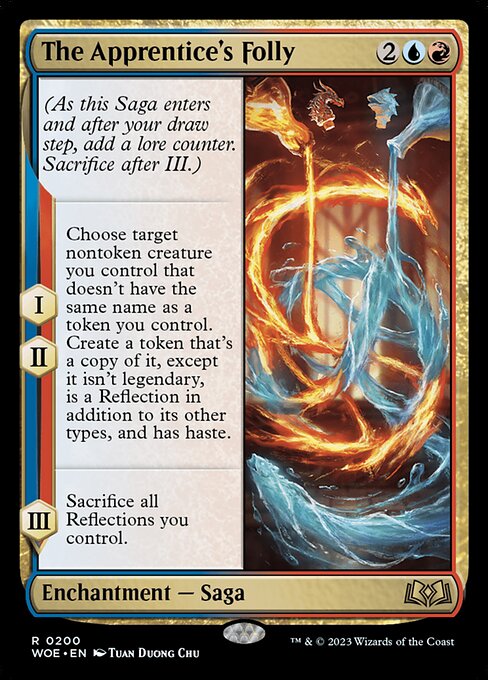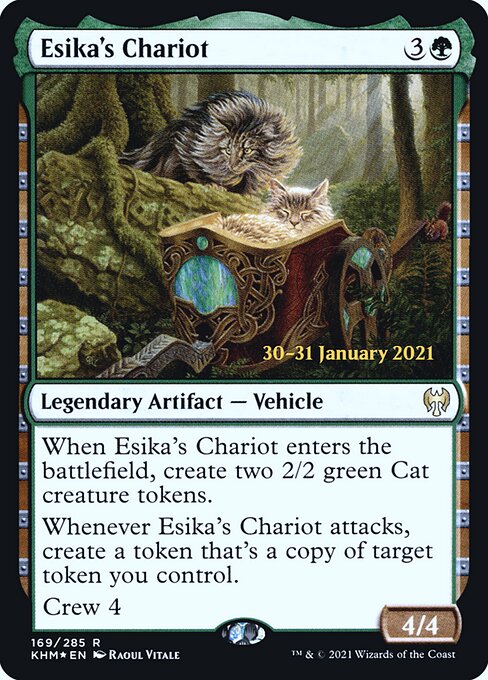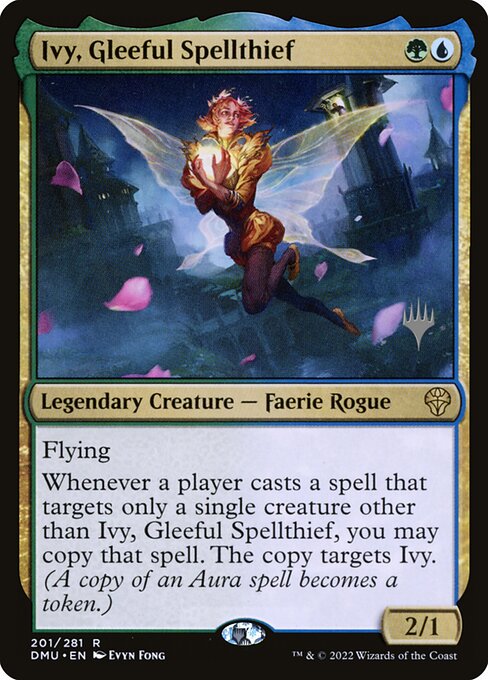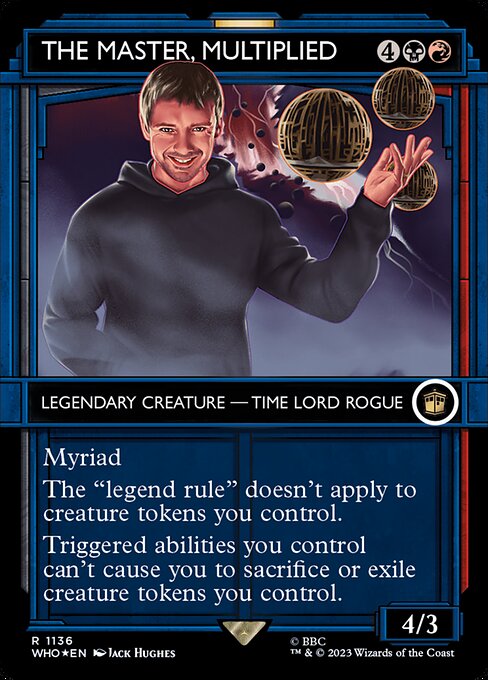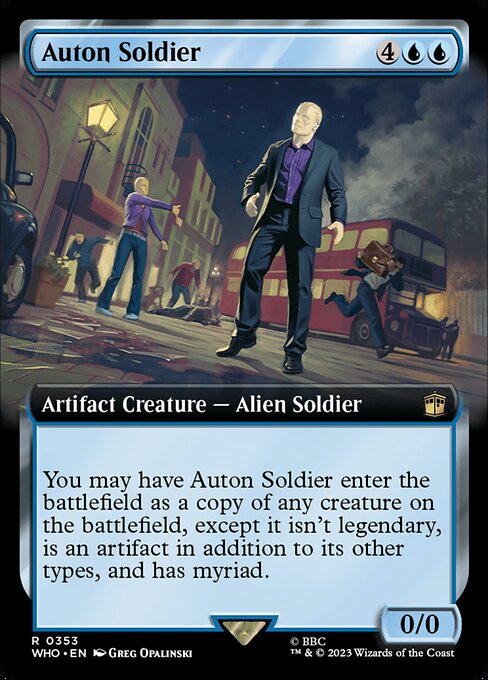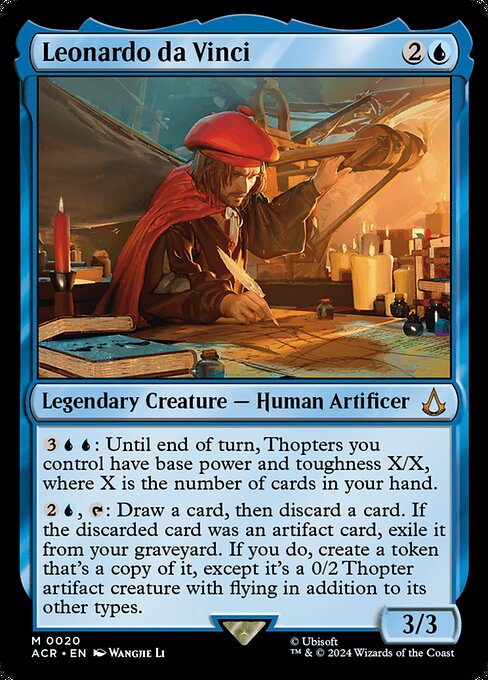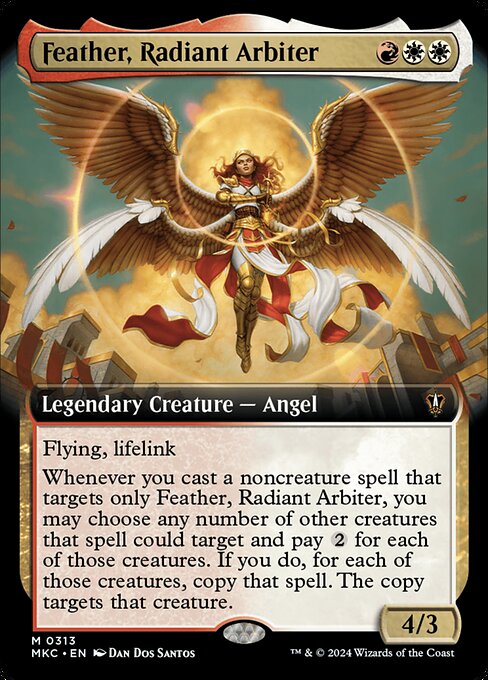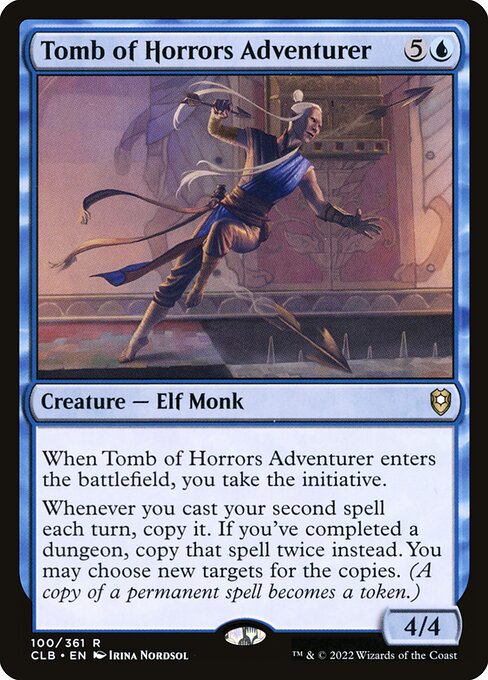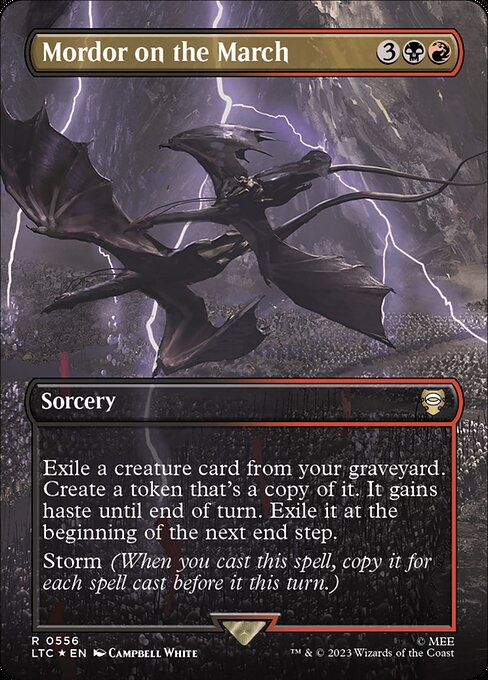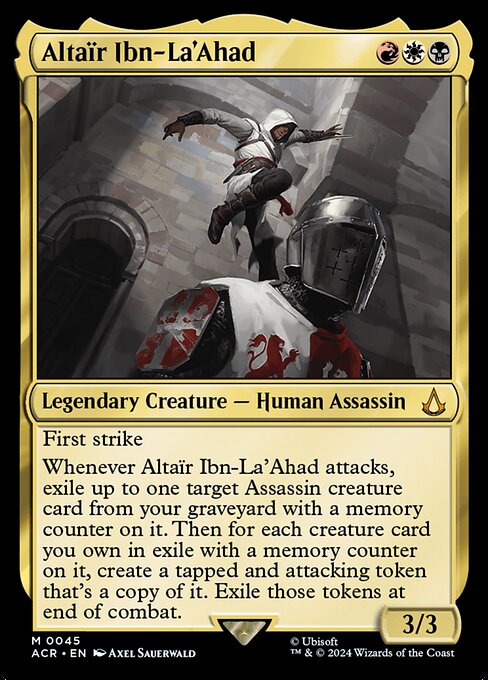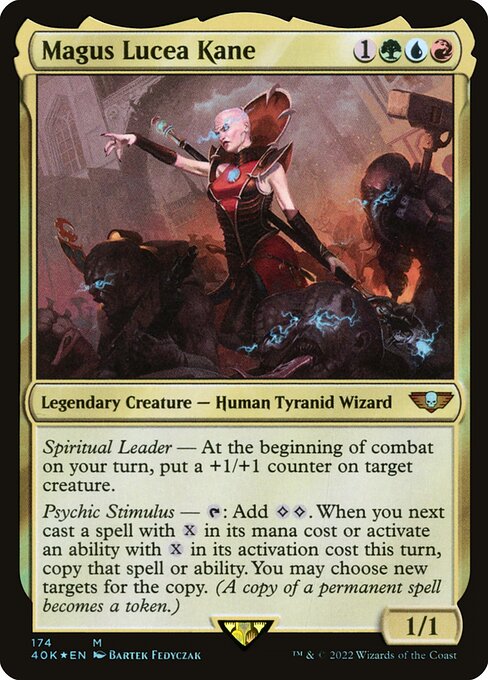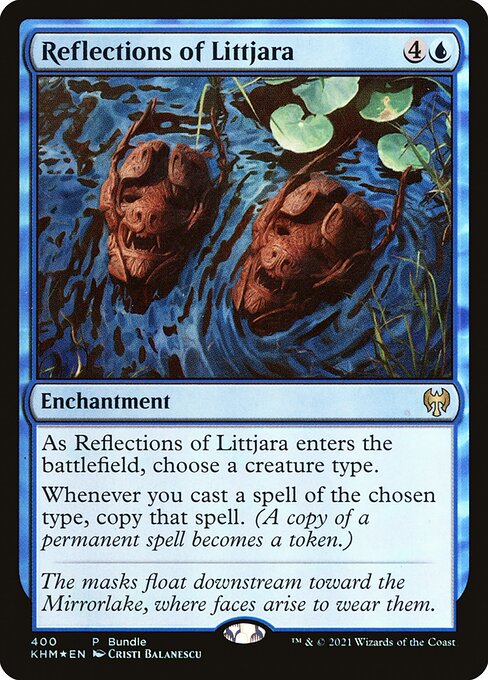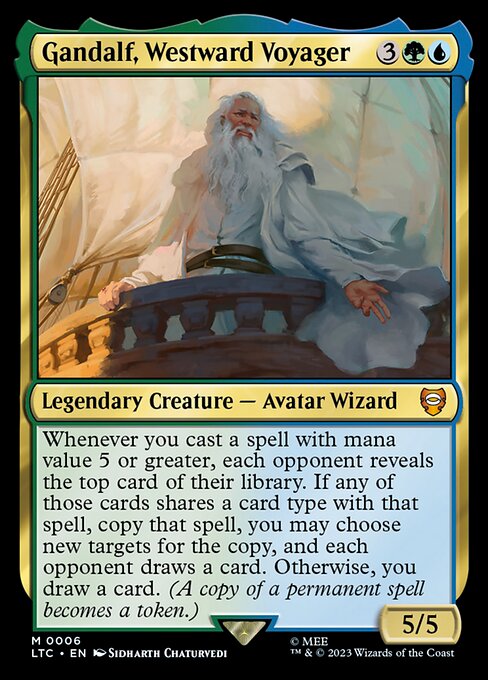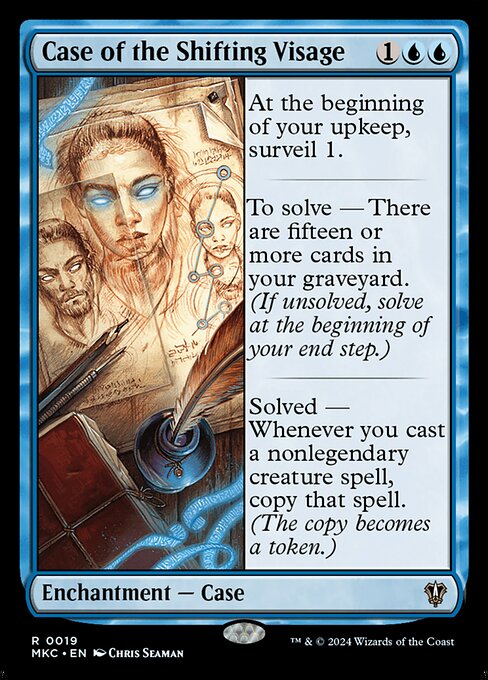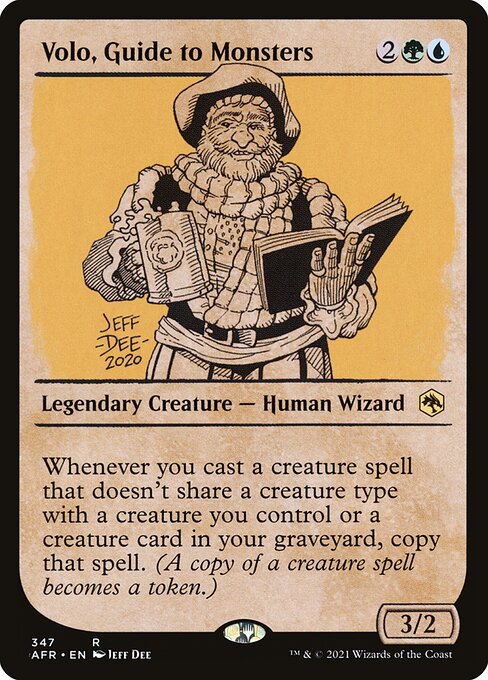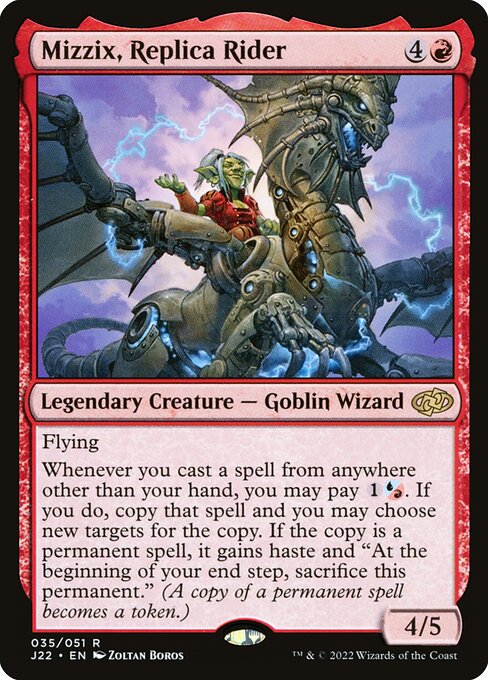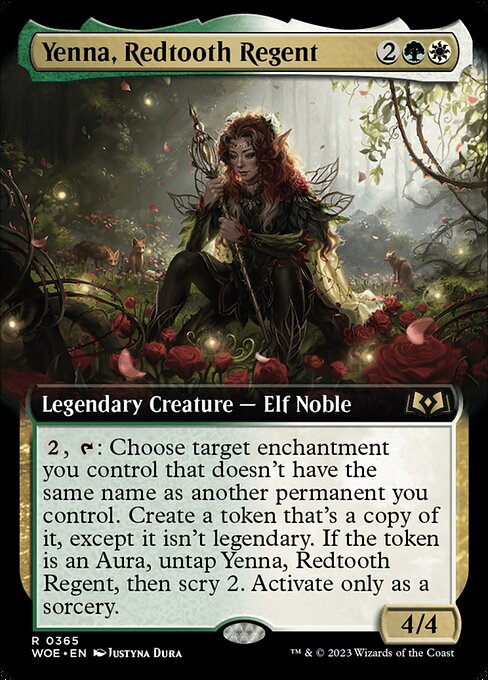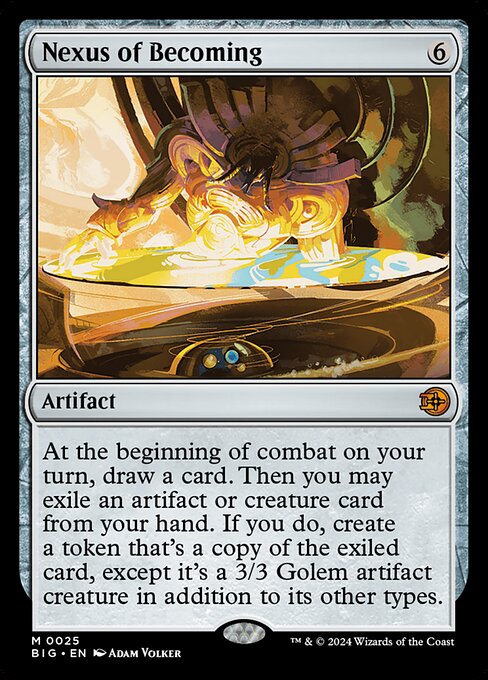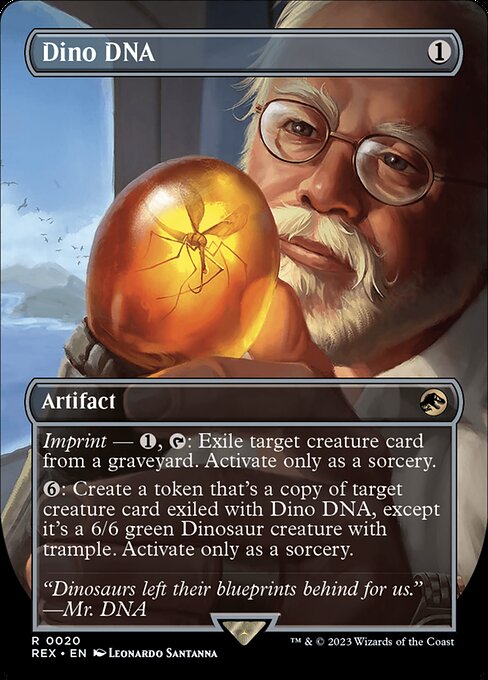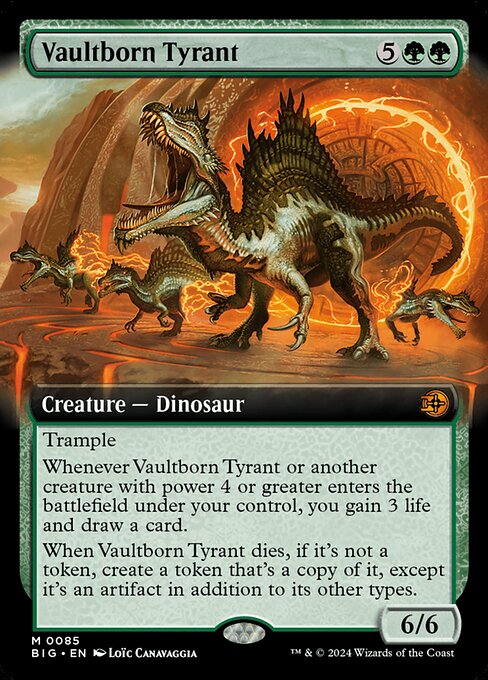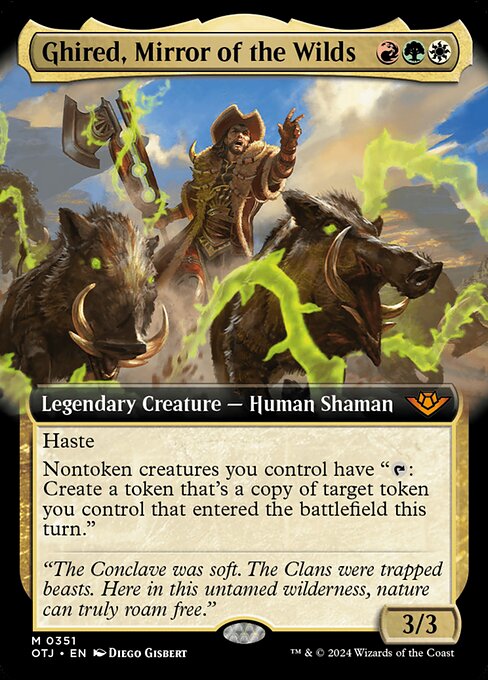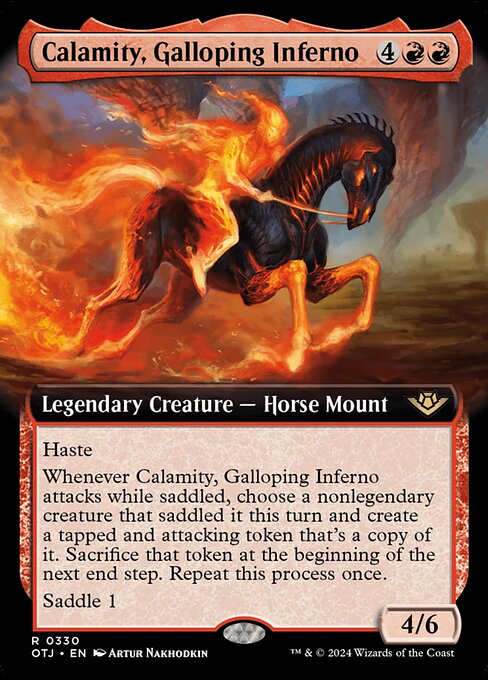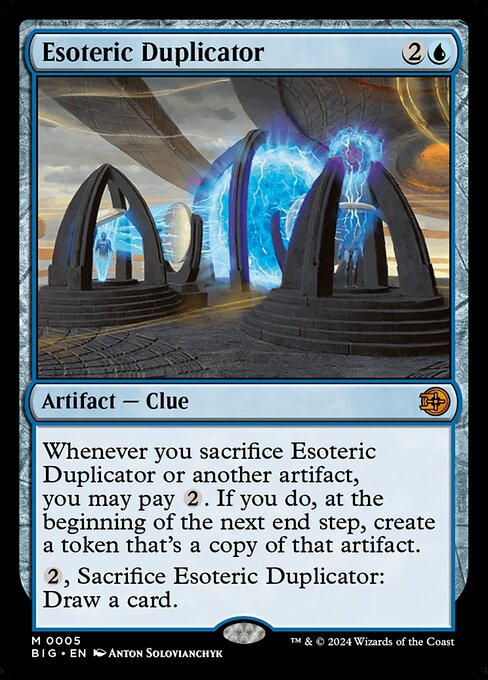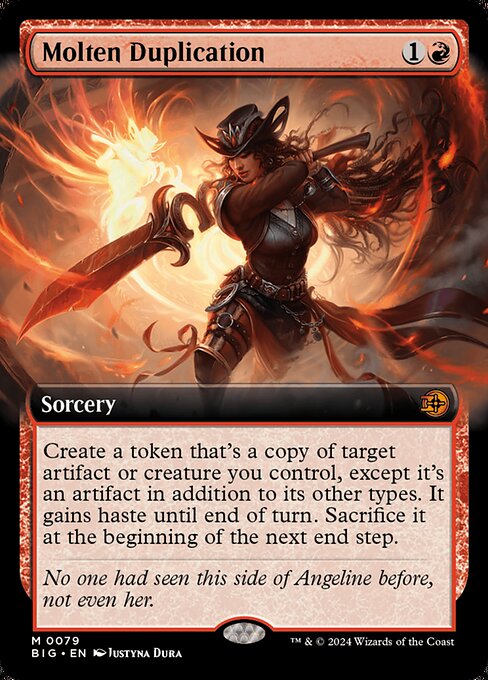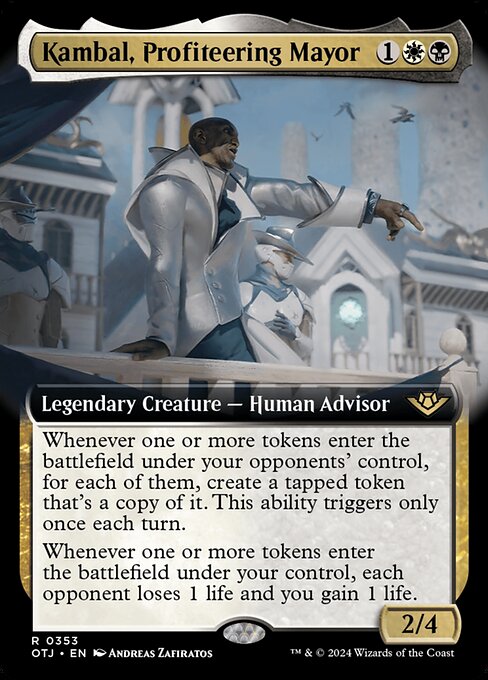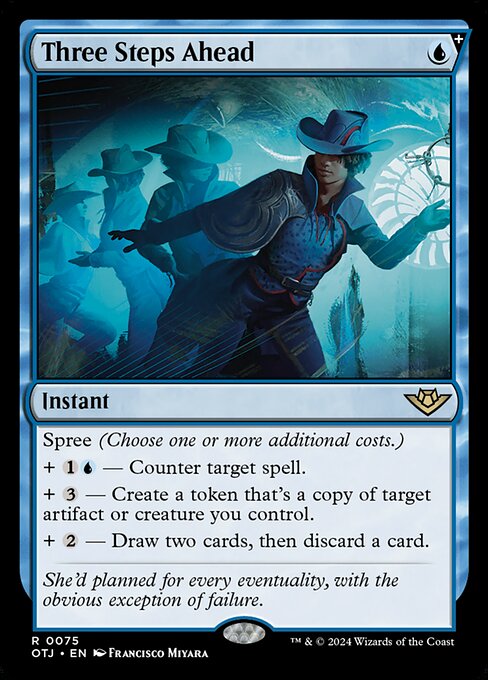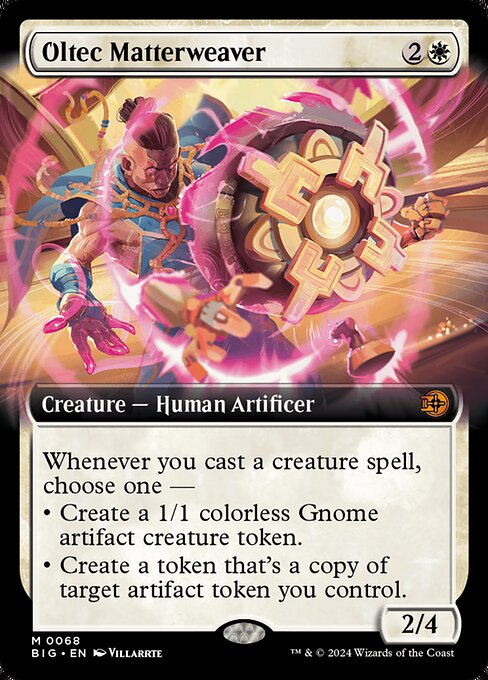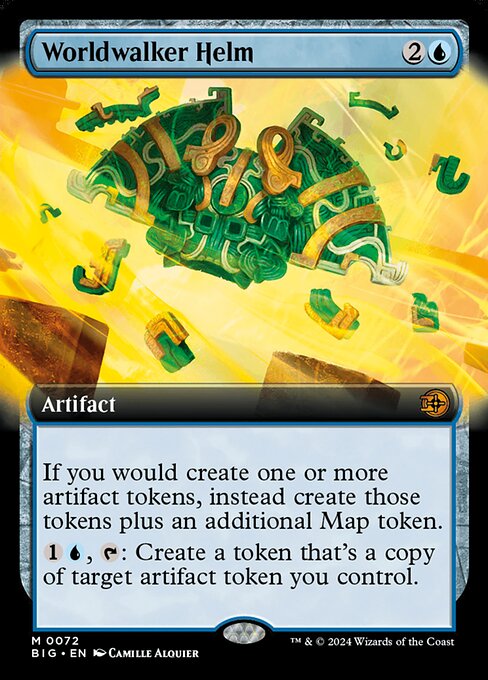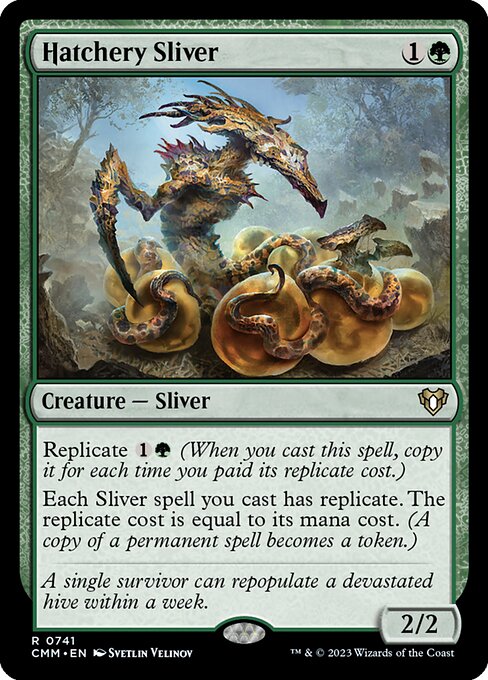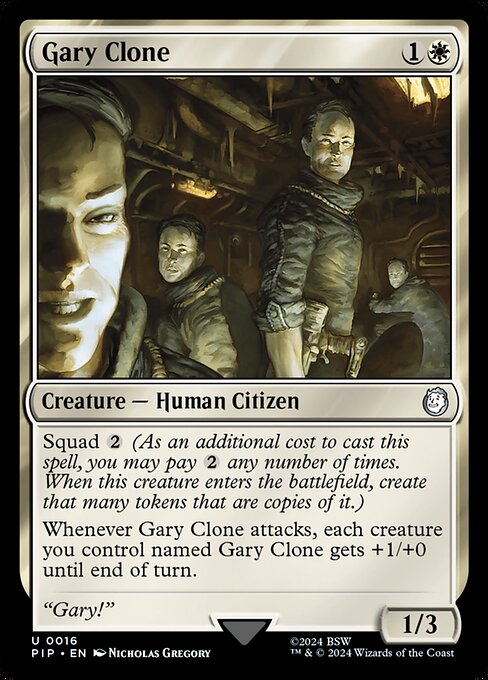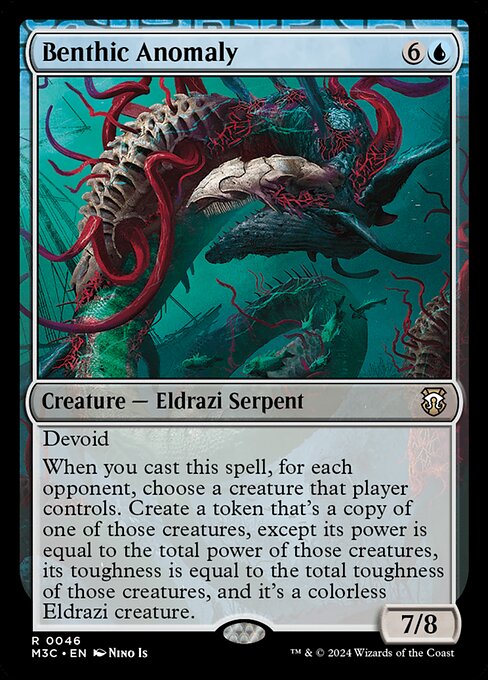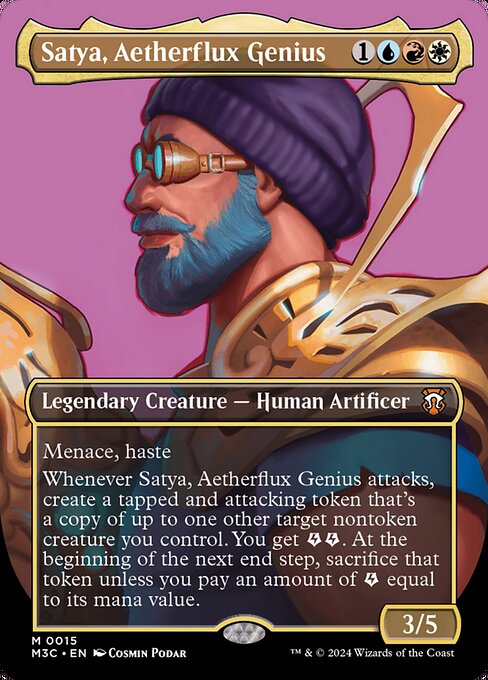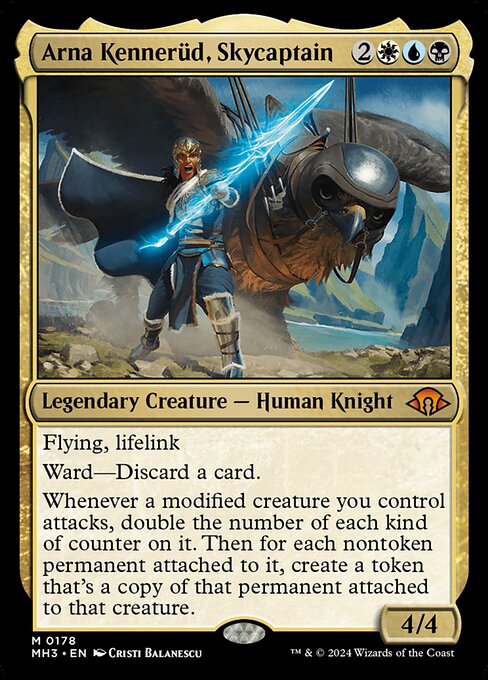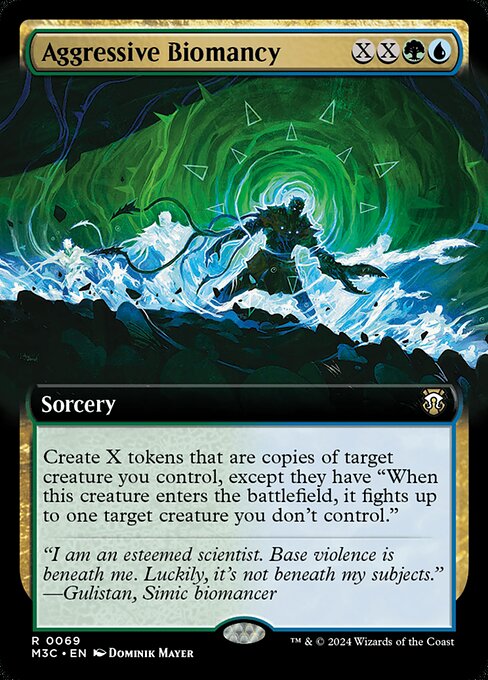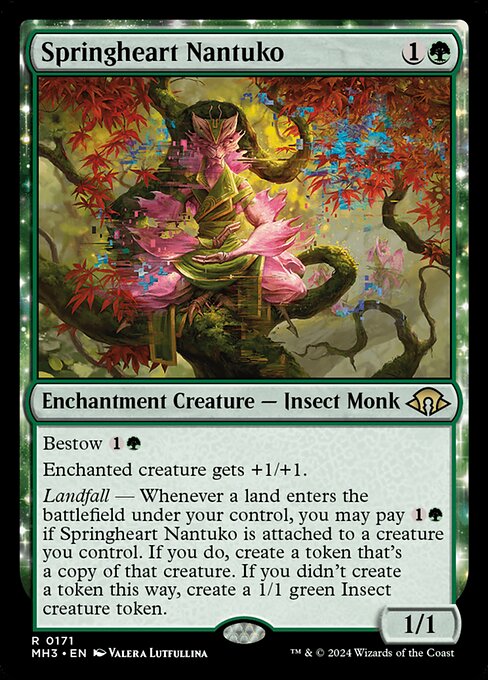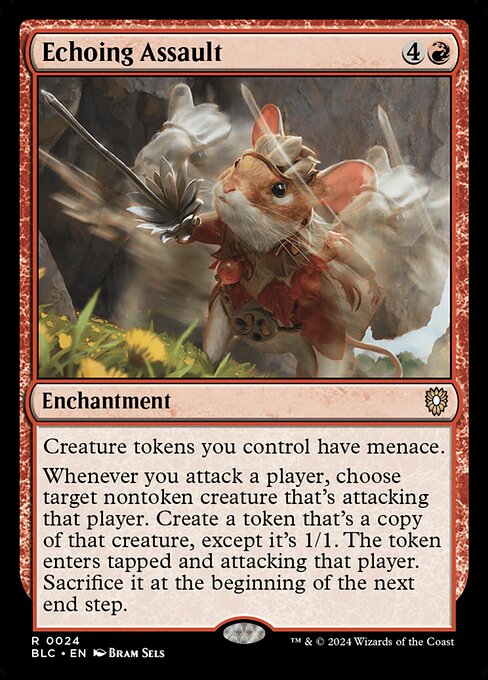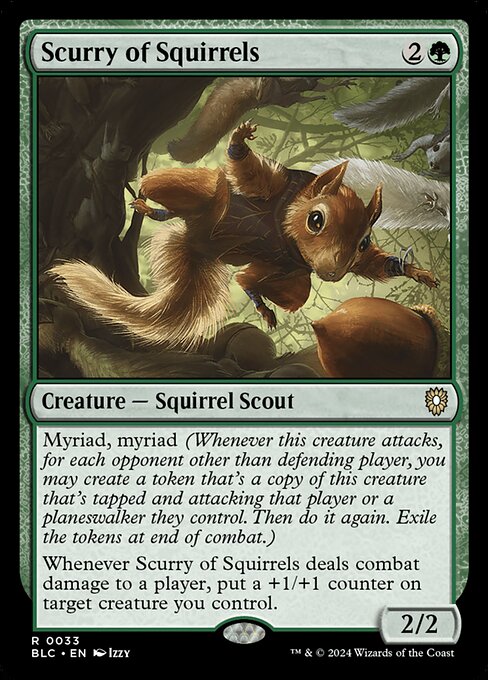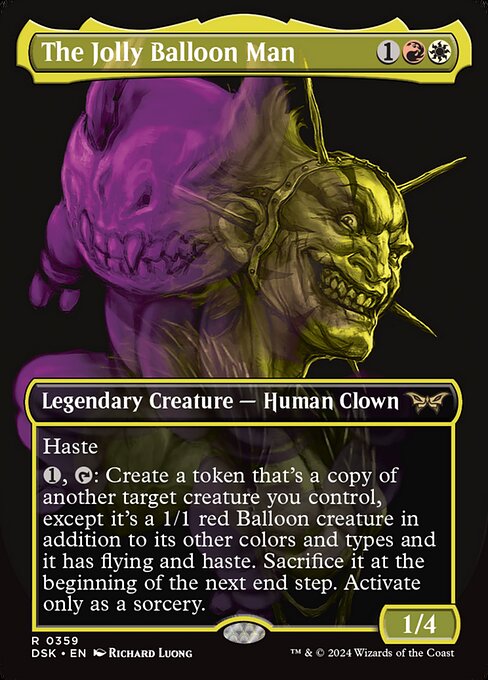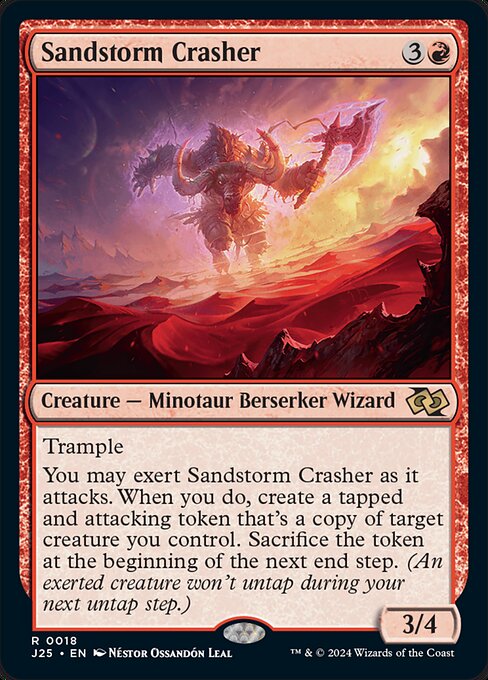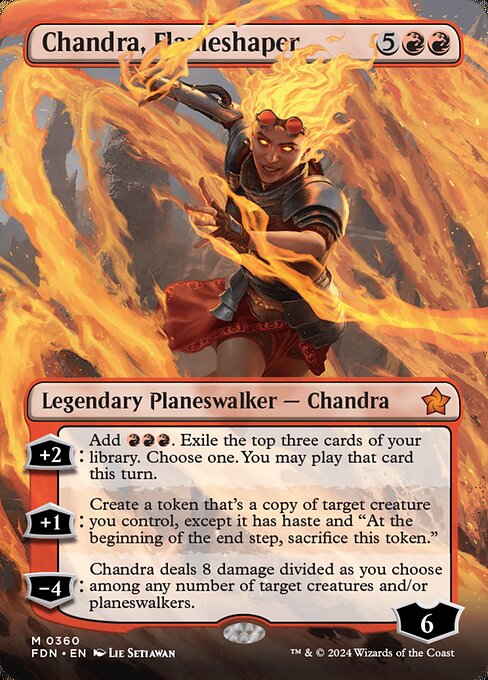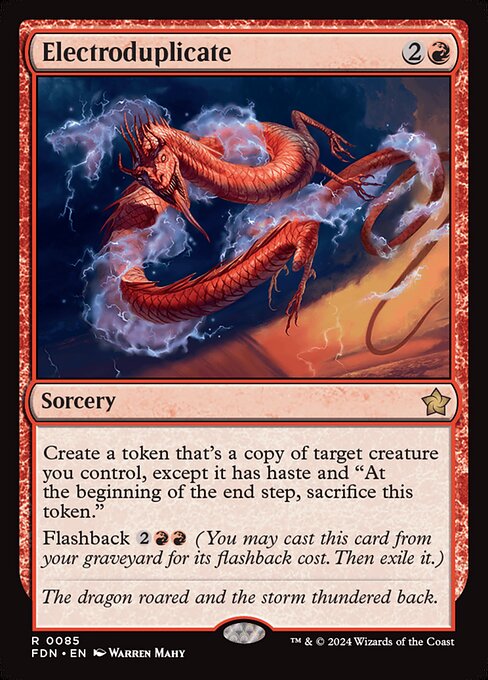Gestohlene Identität
Hexerei
Bringe einen Spielstein ins Spiel, der eine Kopie eines Artefaktes oder einer Kreatur deiner Wahl ist.
Chiffrieren (Dann kannst du diese Zauberspruchkarte auf eine Kreatur codiert, die du kontrollierst, ins Exil schicken. Immer wenn diese Kreatur einem Spieler Kampfschaden zufügt, kann ihr Beherrscher eine Kopie der codierten Karte wirken, ohne ihre Manakosten zu bezahlen.)
Chiffrieren (Dann kannst du diese Zauberspruchkarte auf eine Kreatur codiert, die du kontrollierst, ins Exil schicken. Immer wenn diese Kreatur einem Spieler Kampfschaden zufügt, kann ihr Beherrscher eine Kopie der codierten Karte wirken, ohne ihre Manakosten zu bezahlen.)
standard
future
historic
gladiator
pioneer
explorer
modern
legacy
pauper
vintage
penny
commander
brawl
alchemy
paupercommander
duel
oldschool
premodern
Rulings
Any enters-the-battlefield abilities of the copied permanent will trigger when the token enters the battlefield. Any “as [this permanent] enters the battlefield” or “[this permanent] enters the battlefield with” abilities of the chosen permanent will also work.
If the copied permanent is copying something else (for example, if the copied creature is a Clone), then the token enters the battlefield as whatever that creature copied.
The token copies exactly what was printed on the original artifact or creature and nothing else (unless that permanent is copying something else or is a token; see below). It doesn't copy whether it is tapped or untapped, whether it has any counters on it or Auras and Equipment attached to it, or any non-copy effects that have changed its power, toughness, types, color, or so on.
If the copied permanent is a token, the token that's created copies the original characteristics of that token as stated by the effect that put the token onto the battlefield.
If the copied permanent has in its mana cost, X is considered to be zero.
If the token you create is a copy of a creature, you can exile Stolen Identity encoded on that token.
The spell with cipher is encoded on the creature as part of that spell's resolution, just after the spell's other effects. That card goes directly from the stack to exile. It never goes to the graveyard.
You cast the copy of the card with cipher during the resolution of the triggered ability. Ignore timing restrictions based on the card's type.
If the spell with cipher doesn't resolve, none of its effects will happen, including cipher. The card will go to its owner's graveyard and won't be encoded on a creature.
You choose the creature as the spell resolves. The cipher ability doesn't target that creature, although the spell with cipher may target that creature (or a different creature) because of its other abilities.
If the creature leaves the battlefield, the exiled card will no longer be encoded on any creature. It will stay exiled.
If another player gains control of the creature, that player will control the triggered ability. That player will create a copy of the encoded card and may cast it.
If you choose not to cast the copy, or you can't cast it (perhaps because there are no legal targets available), the copy will cease to exist the next time state-based actions are performed. You won't get a chance to cast the copy at a later time.
The copy of the card with cipher is created in and cast from exile.
The exiled card with cipher grants a triggered ability to the creature it's encoded on. If that creature loses that ability and subsequently deals combat damage to a player, the triggered ability won't trigger. However, the exiled card will continue to be encoded on that creature.
If you want to encode the card with cipher onto a noncreature permanent such as a Keyrune that can turn into a creature, that permanent has to be a creature before the spell with cipher starts resolving. You can choose only a creature to encode the card onto.
If a creature with an encoded card deals combat damage to more than one player simultaneously (perhaps because some of the combat damage was redirected), the triggered ability will trigger once for each player it deals combat damage to. Each ability will create a copy of the exiled card and allow you to cast it.
If the copied permanent is copying something else (for example, if the copied creature is a Clone), then the token enters the battlefield as whatever that creature copied.
The token copies exactly what was printed on the original artifact or creature and nothing else (unless that permanent is copying something else or is a token; see below). It doesn't copy whether it is tapped or untapped, whether it has any counters on it or Auras and Equipment attached to it, or any non-copy effects that have changed its power, toughness, types, color, or so on.
If the copied permanent is a token, the token that's created copies the original characteristics of that token as stated by the effect that put the token onto the battlefield.
If the copied permanent has in its mana cost, X is considered to be zero.
If the token you create is a copy of a creature, you can exile Stolen Identity encoded on that token.
The spell with cipher is encoded on the creature as part of that spell's resolution, just after the spell's other effects. That card goes directly from the stack to exile. It never goes to the graveyard.
You cast the copy of the card with cipher during the resolution of the triggered ability. Ignore timing restrictions based on the card's type.
If the spell with cipher doesn't resolve, none of its effects will happen, including cipher. The card will go to its owner's graveyard and won't be encoded on a creature.
You choose the creature as the spell resolves. The cipher ability doesn't target that creature, although the spell with cipher may target that creature (or a different creature) because of its other abilities.
If the creature leaves the battlefield, the exiled card will no longer be encoded on any creature. It will stay exiled.
If another player gains control of the creature, that player will control the triggered ability. That player will create a copy of the encoded card and may cast it.
If you choose not to cast the copy, or you can't cast it (perhaps because there are no legal targets available), the copy will cease to exist the next time state-based actions are performed. You won't get a chance to cast the copy at a later time.
The copy of the card with cipher is created in and cast from exile.
The exiled card with cipher grants a triggered ability to the creature it's encoded on. If that creature loses that ability and subsequently deals combat damage to a player, the triggered ability won't trigger. However, the exiled card will continue to be encoded on that creature.
If you want to encode the card with cipher onto a noncreature permanent such as a Keyrune that can turn into a creature, that permanent has to be a creature before the spell with cipher starts resolving. You can choose only a creature to encode the card onto.
If a creature with an encoded card deals combat damage to more than one player simultaneously (perhaps because some of the combat damage was redirected), the triggered ability will trigger once for each player it deals combat damage to. Each ability will create a copy of the exiled card and allow you to cast it.
Rulings
Any enters-the-battlefield abilities of the copied permanent will trigger when the token enters the battlefield. Any “as [this permanent] enters the battlefield” or “[this permanent] enters the battlefield with” abilities of the chosen permanent will also work.
If the copied permanent is copying something else (for example, if the copied creature is a Clone), then the token enters the battlefield as whatever that creature copied.
The token copies exactly what was printed on the original artifact or creature and nothing else (unless that permanent is copying something else or is a token; see below). It doesn't copy whether it is tapped or untapped, whether it has any counters on it or Auras and Equipment attached to it, or any non-copy effects that have changed its power, toughness, types, color, or so on.
If the copied permanent is a token, the token that's created copies the original characteristics of that token as stated by the effect that put the token onto the battlefield.
If the copied permanent has in its mana cost, X is considered to be zero.
If the token you create is a copy of a creature, you can exile Stolen Identity encoded on that token.
The spell with cipher is encoded on the creature as part of that spell's resolution, just after the spell's other effects. That card goes directly from the stack to exile. It never goes to the graveyard.
You cast the copy of the card with cipher during the resolution of the triggered ability. Ignore timing restrictions based on the card's type.
If the spell with cipher doesn't resolve, none of its effects will happen, including cipher. The card will go to its owner's graveyard and won't be encoded on a creature.
You choose the creature as the spell resolves. The cipher ability doesn't target that creature, although the spell with cipher may target that creature (or a different creature) because of its other abilities.
If the creature leaves the battlefield, the exiled card will no longer be encoded on any creature. It will stay exiled.
If another player gains control of the creature, that player will control the triggered ability. That player will create a copy of the encoded card and may cast it.
If you choose not to cast the copy, or you can't cast it (perhaps because there are no legal targets available), the copy will cease to exist the next time state-based actions are performed. You won't get a chance to cast the copy at a later time.
The copy of the card with cipher is created in and cast from exile.
The exiled card with cipher grants a triggered ability to the creature it's encoded on. If that creature loses that ability and subsequently deals combat damage to a player, the triggered ability won't trigger. However, the exiled card will continue to be encoded on that creature.
If you want to encode the card with cipher onto a noncreature permanent such as a Keyrune that can turn into a creature, that permanent has to be a creature before the spell with cipher starts resolving. You can choose only a creature to encode the card onto.
If a creature with an encoded card deals combat damage to more than one player simultaneously (perhaps because some of the combat damage was redirected), the triggered ability will trigger once for each player it deals combat damage to. Each ability will create a copy of the exiled card and allow you to cast it.
If the copied permanent is copying something else (for example, if the copied creature is a Clone), then the token enters the battlefield as whatever that creature copied.
The token copies exactly what was printed on the original artifact or creature and nothing else (unless that permanent is copying something else or is a token; see below). It doesn't copy whether it is tapped or untapped, whether it has any counters on it or Auras and Equipment attached to it, or any non-copy effects that have changed its power, toughness, types, color, or so on.
If the copied permanent is a token, the token that's created copies the original characteristics of that token as stated by the effect that put the token onto the battlefield.
If the copied permanent has in its mana cost, X is considered to be zero.
If the token you create is a copy of a creature, you can exile Stolen Identity encoded on that token.
The spell with cipher is encoded on the creature as part of that spell's resolution, just after the spell's other effects. That card goes directly from the stack to exile. It never goes to the graveyard.
You cast the copy of the card with cipher during the resolution of the triggered ability. Ignore timing restrictions based on the card's type.
If the spell with cipher doesn't resolve, none of its effects will happen, including cipher. The card will go to its owner's graveyard and won't be encoded on a creature.
You choose the creature as the spell resolves. The cipher ability doesn't target that creature, although the spell with cipher may target that creature (or a different creature) because of its other abilities.
If the creature leaves the battlefield, the exiled card will no longer be encoded on any creature. It will stay exiled.
If another player gains control of the creature, that player will control the triggered ability. That player will create a copy of the encoded card and may cast it.
If you choose not to cast the copy, or you can't cast it (perhaps because there are no legal targets available), the copy will cease to exist the next time state-based actions are performed. You won't get a chance to cast the copy at a later time.
The copy of the card with cipher is created in and cast from exile.
The exiled card with cipher grants a triggered ability to the creature it's encoded on. If that creature loses that ability and subsequently deals combat damage to a player, the triggered ability won't trigger. However, the exiled card will continue to be encoded on that creature.
If you want to encode the card with cipher onto a noncreature permanent such as a Keyrune that can turn into a creature, that permanent has to be a creature before the spell with cipher starts resolving. You can choose only a creature to encode the card onto.
If a creature with an encoded card deals combat damage to more than one player simultaneously (perhaps because some of the combat damage was redirected), the triggered ability will trigger once for each player it deals combat damage to. Each ability will create a copy of the exiled card and allow you to cast it.
Votre collection ? vos decks ?
Envie de gérer votre collection et/ou créer des decks ?
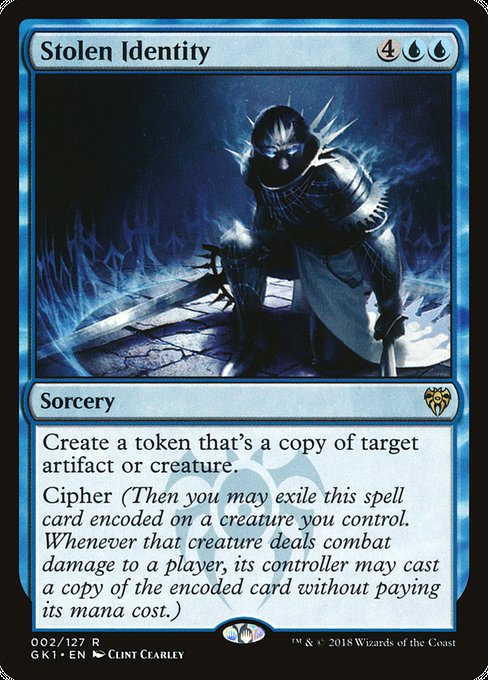

 0
0
 0.21€
0.21€
